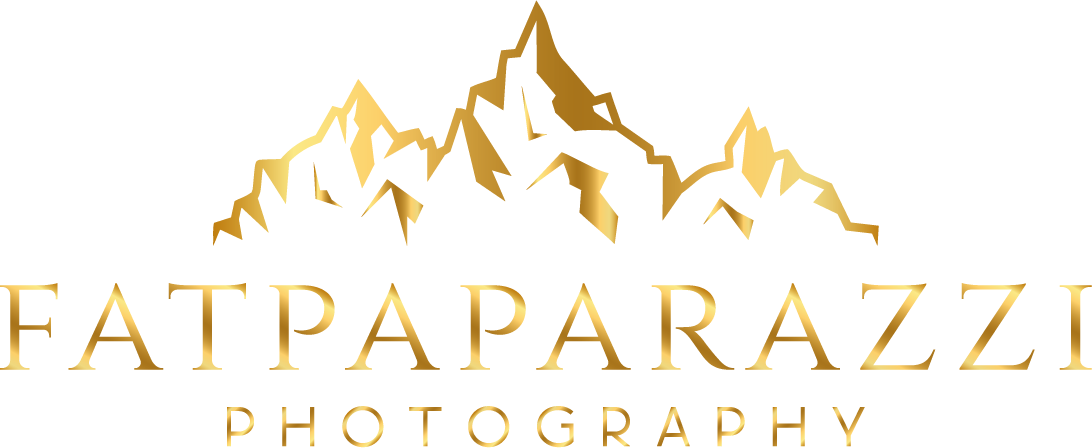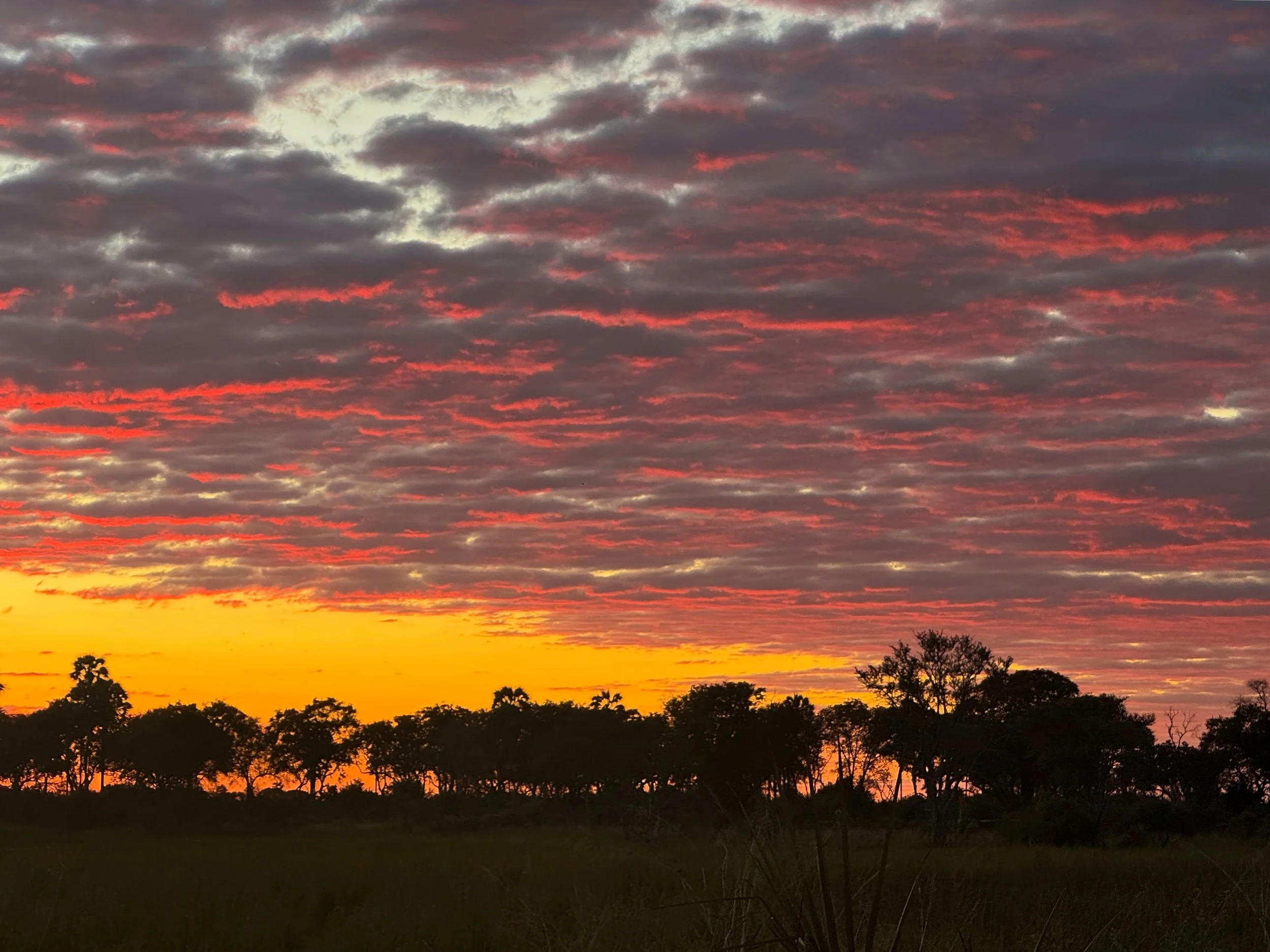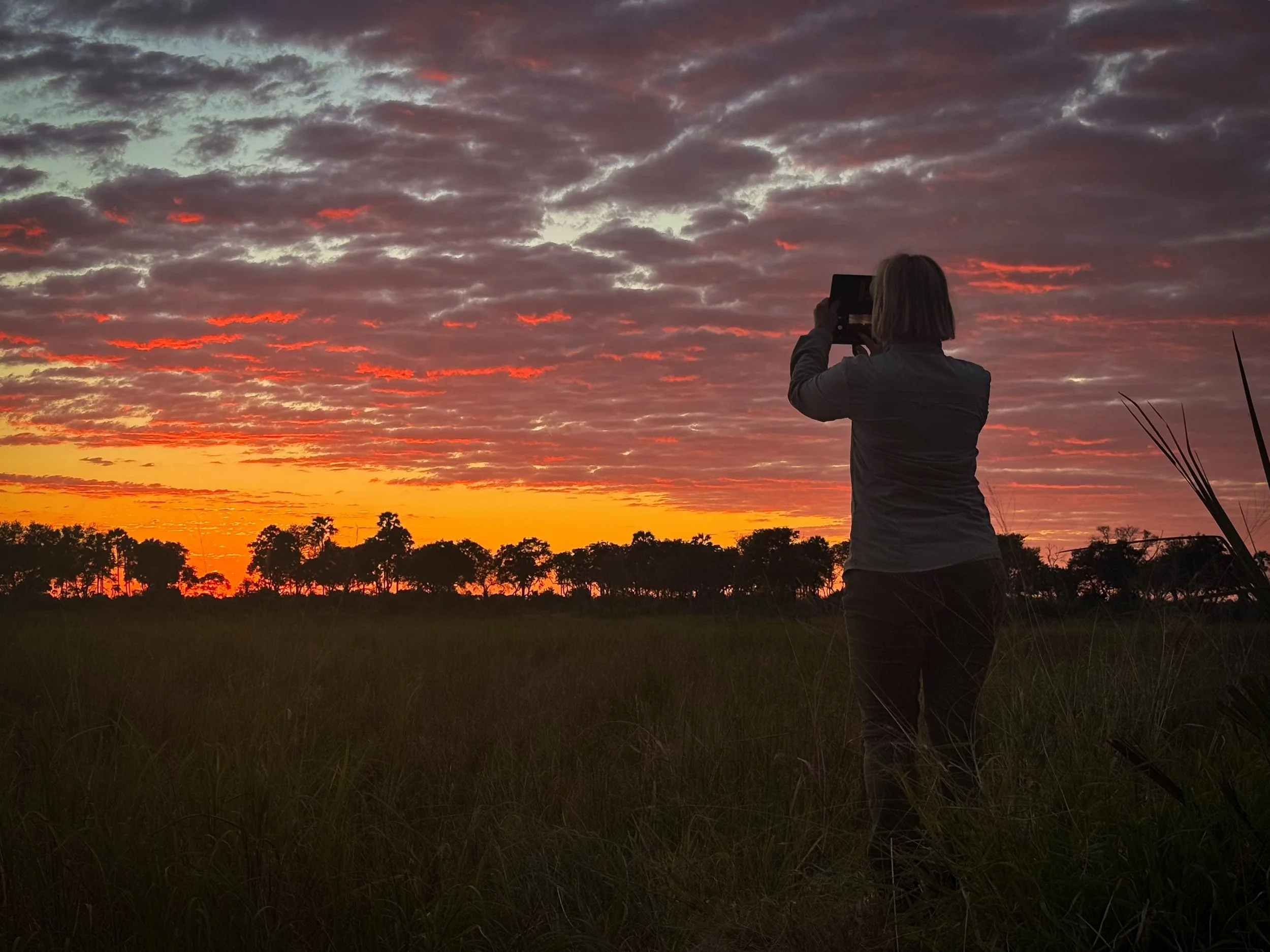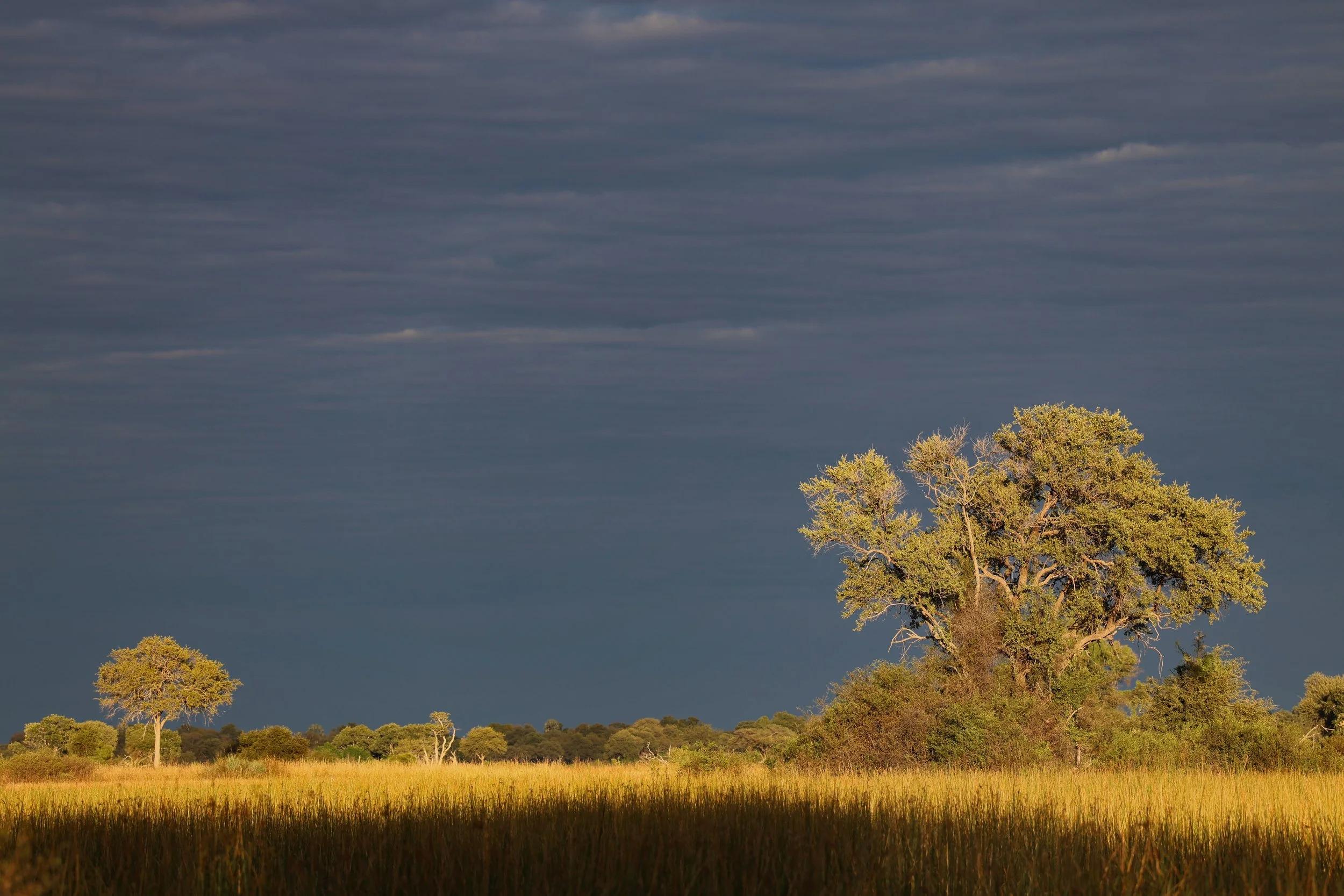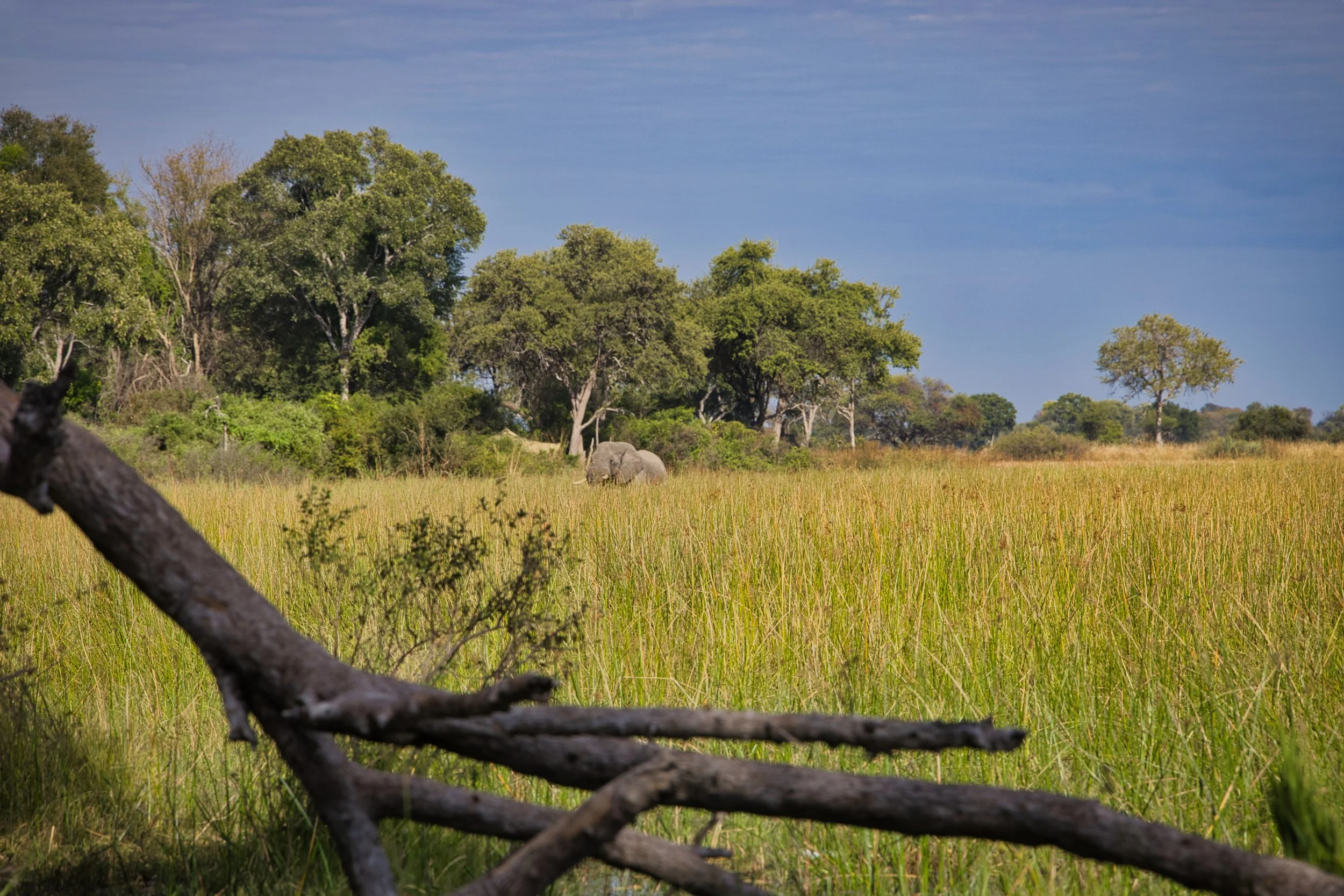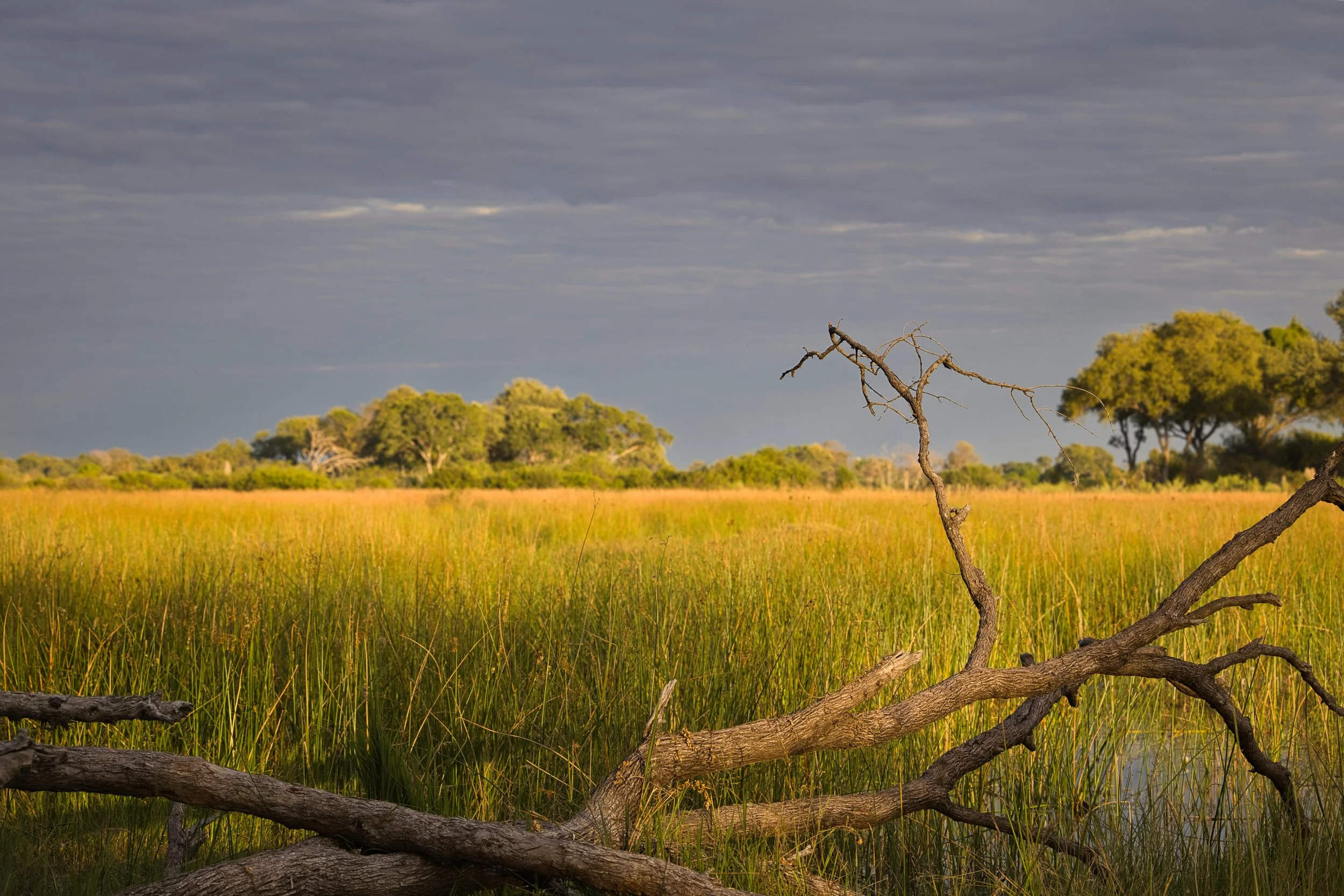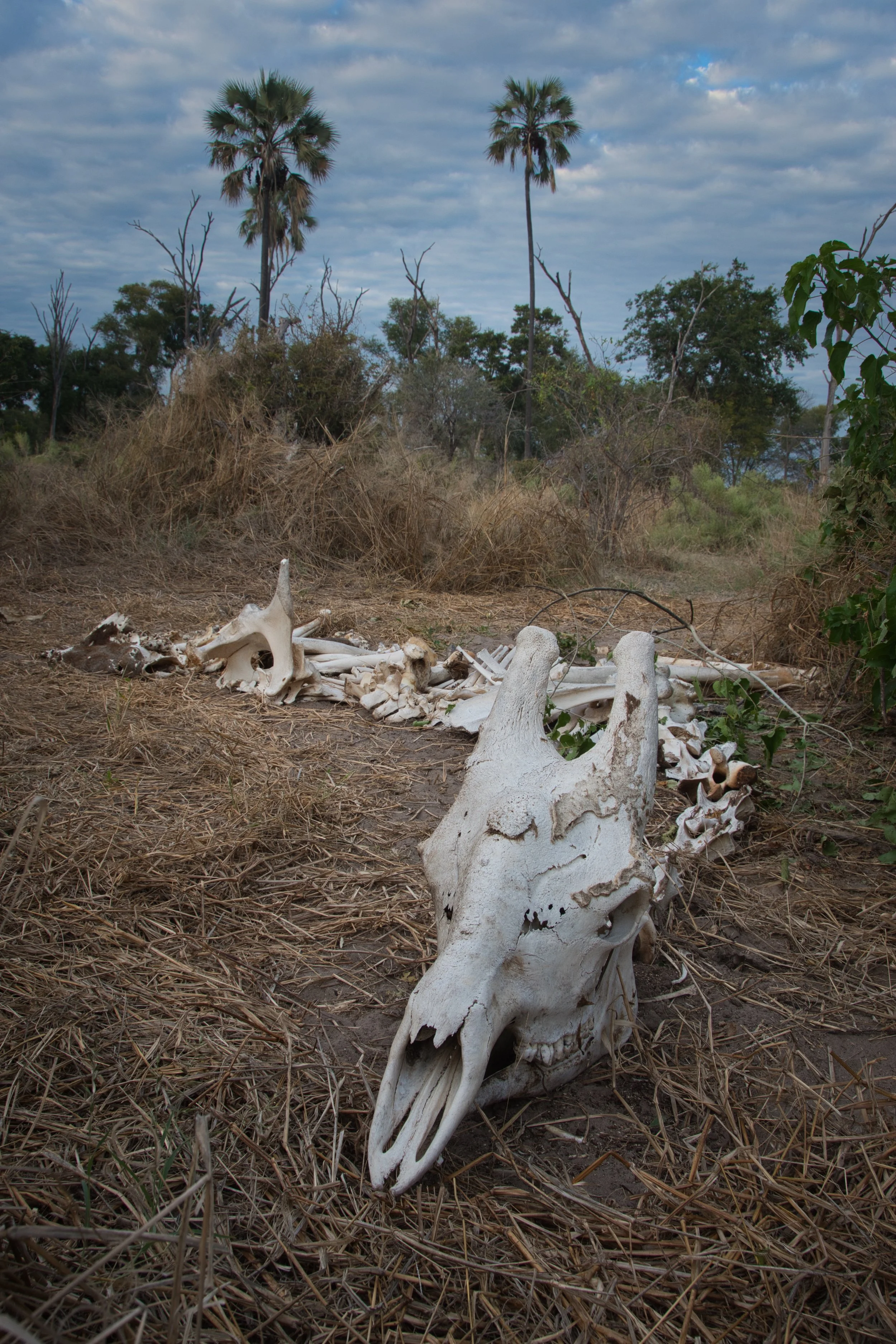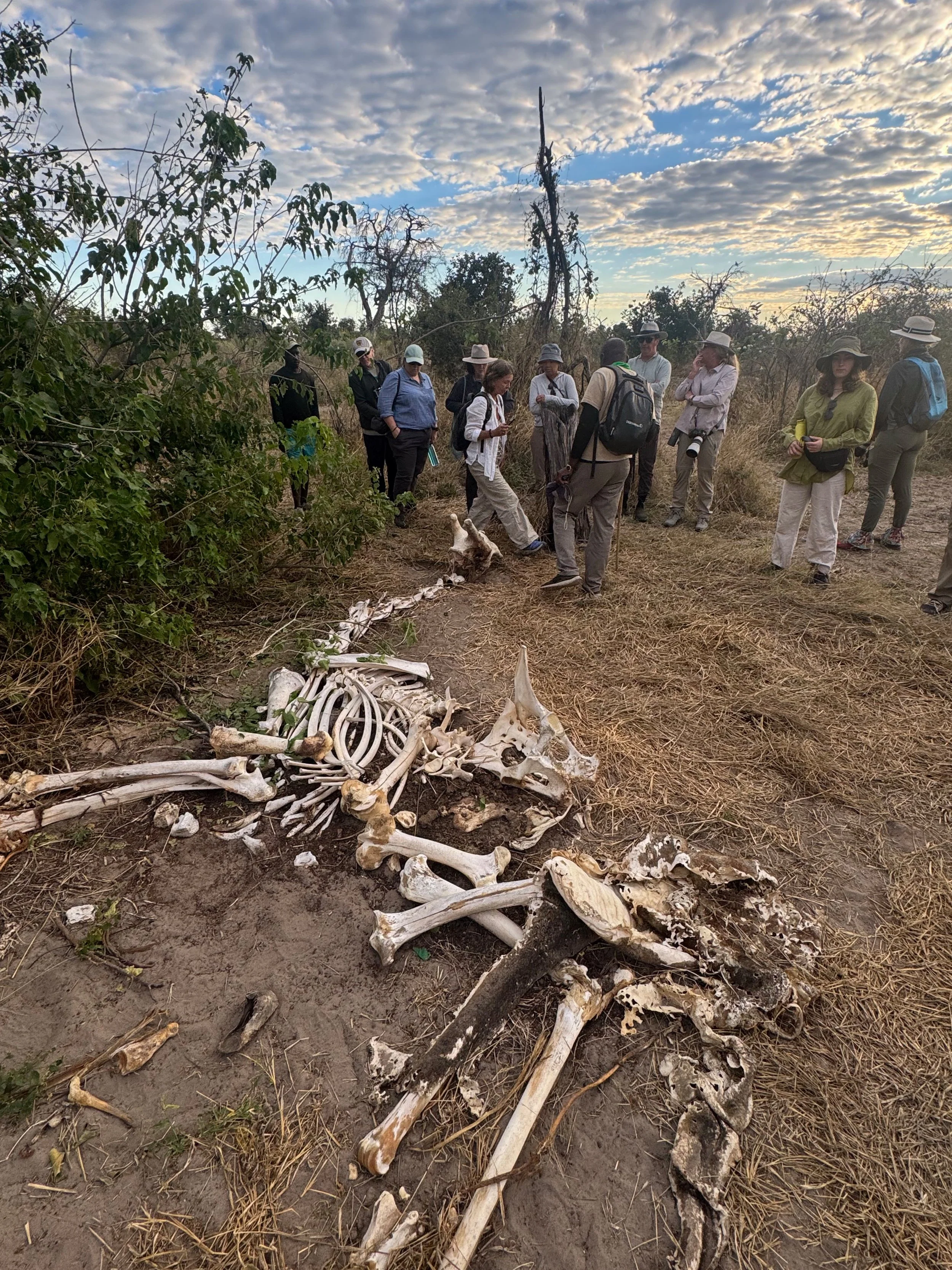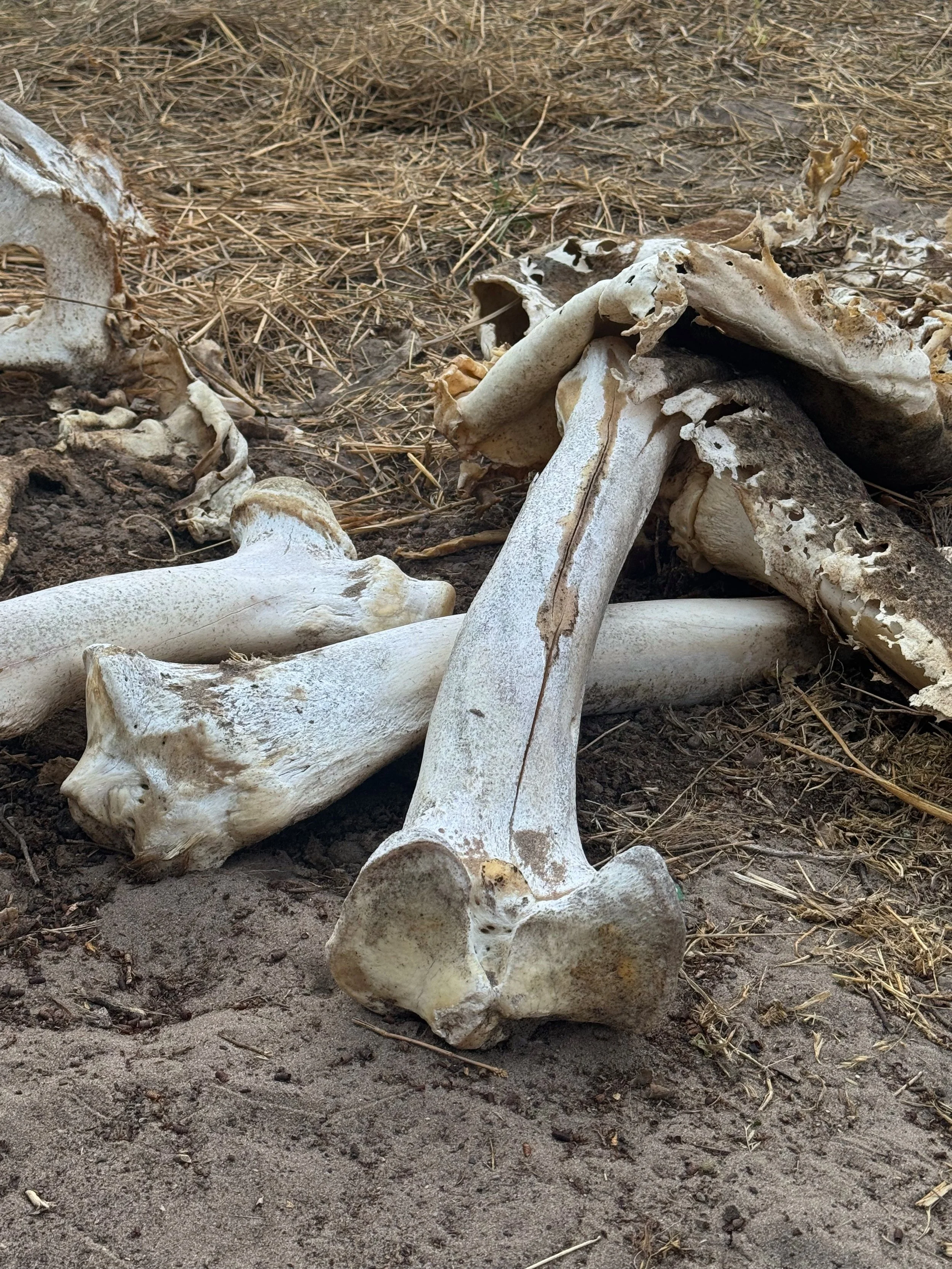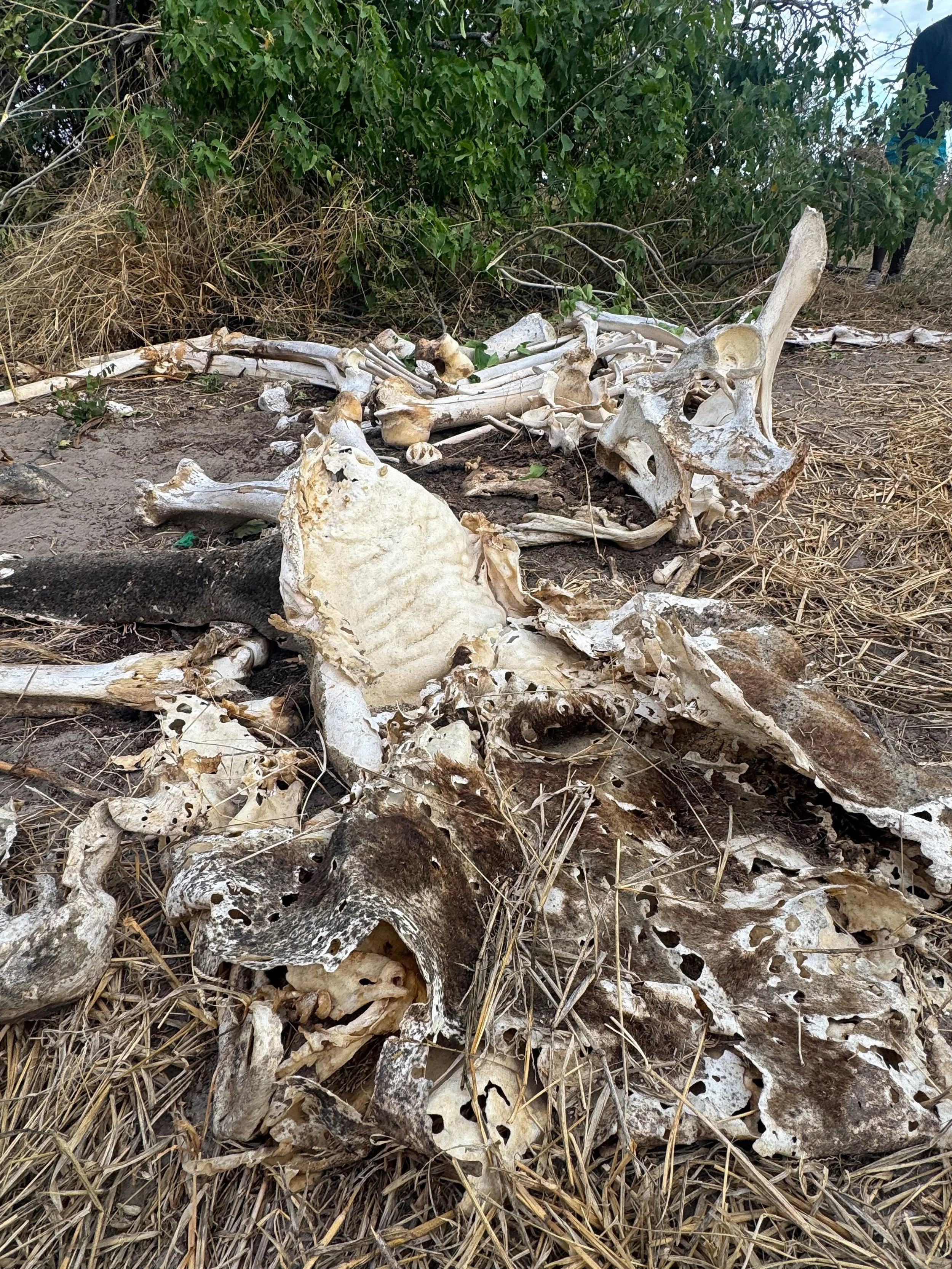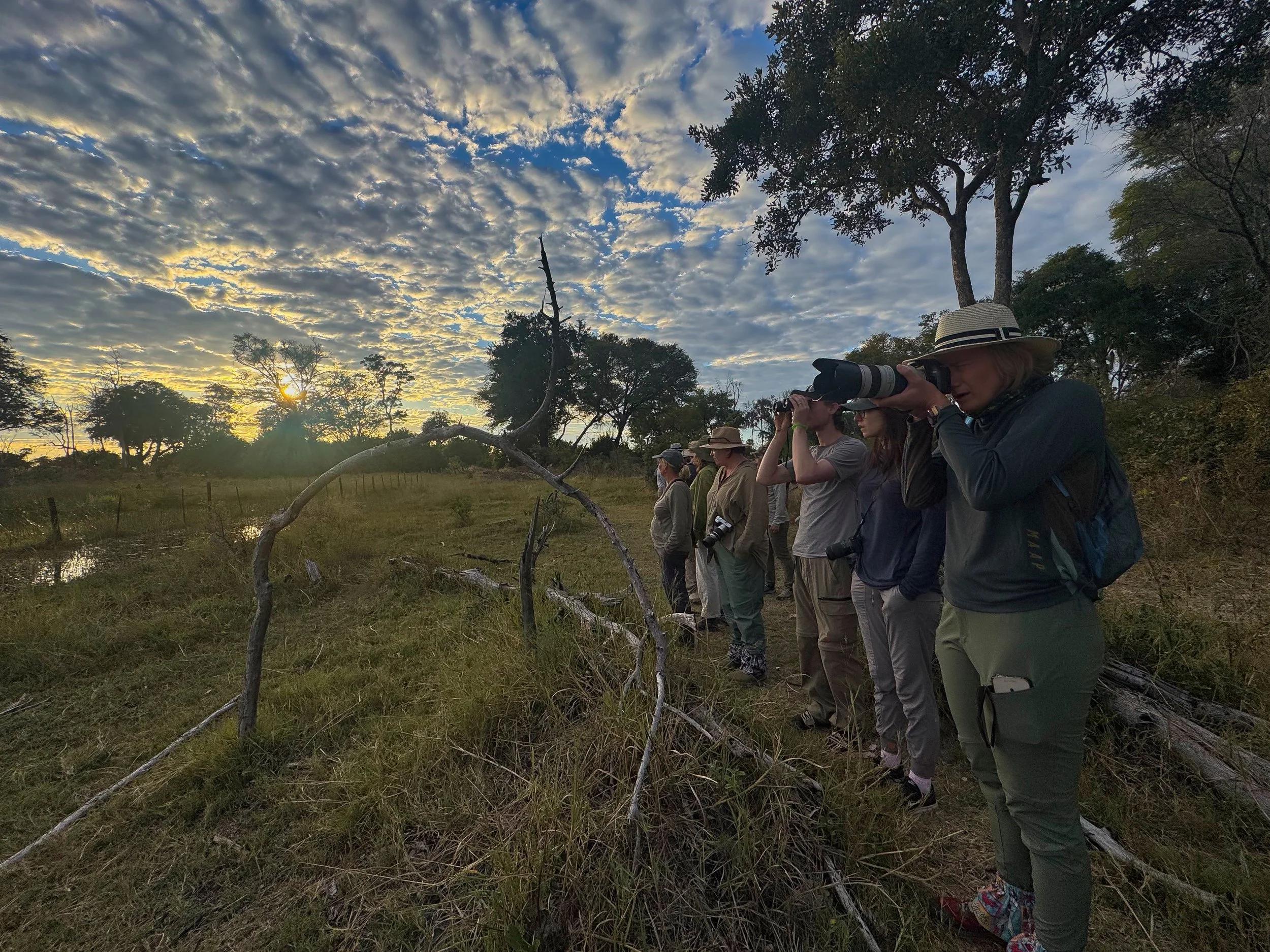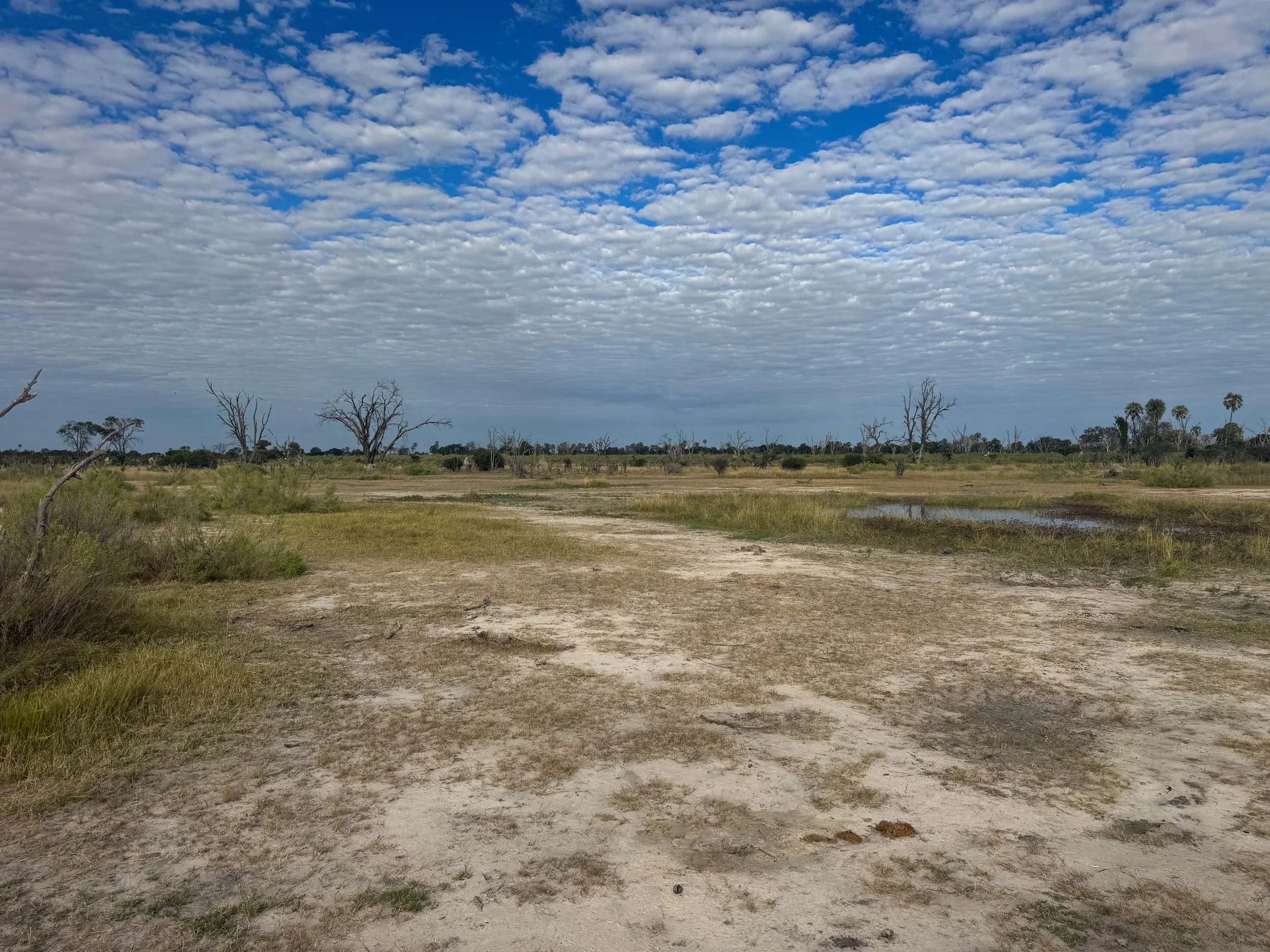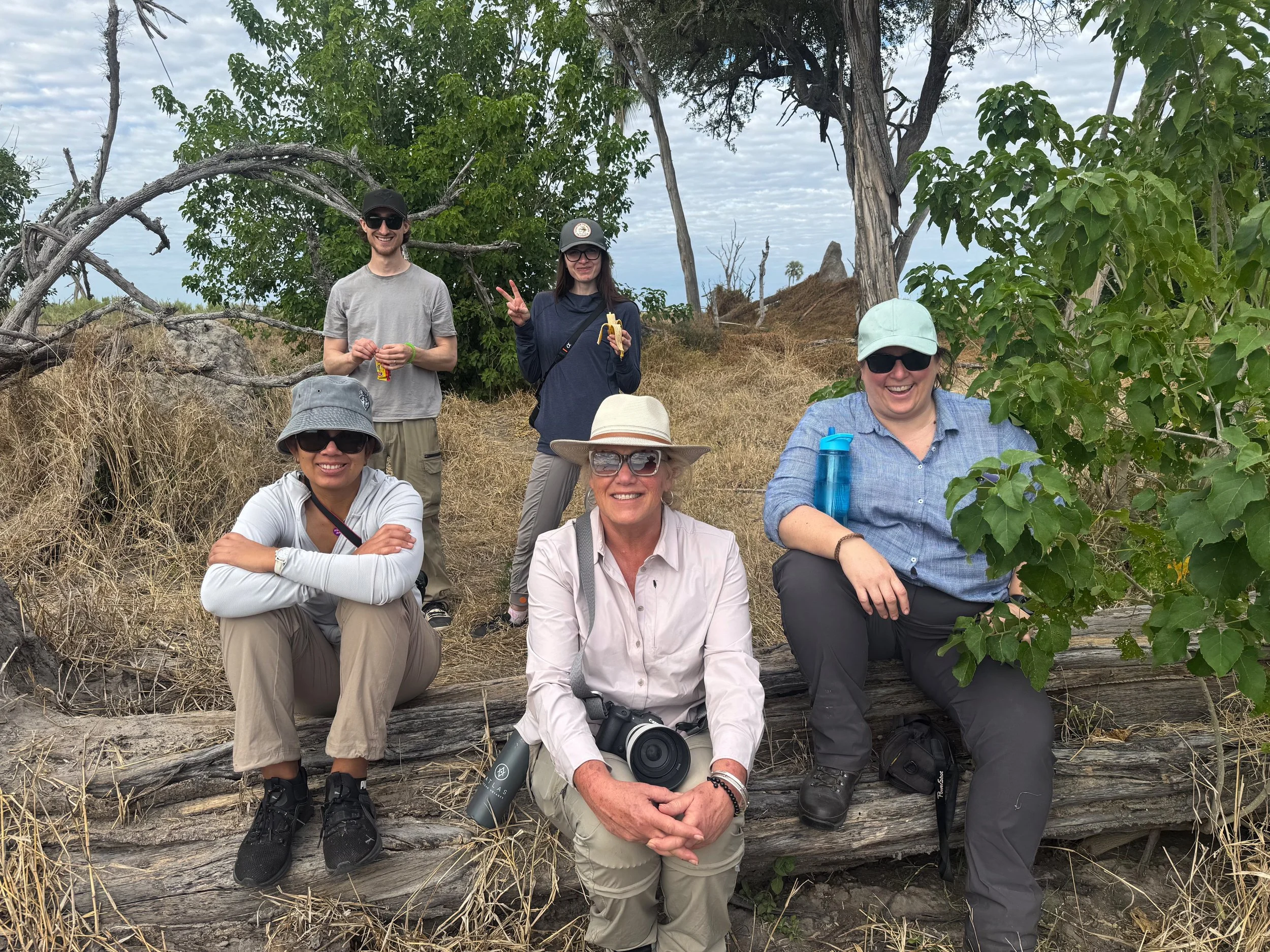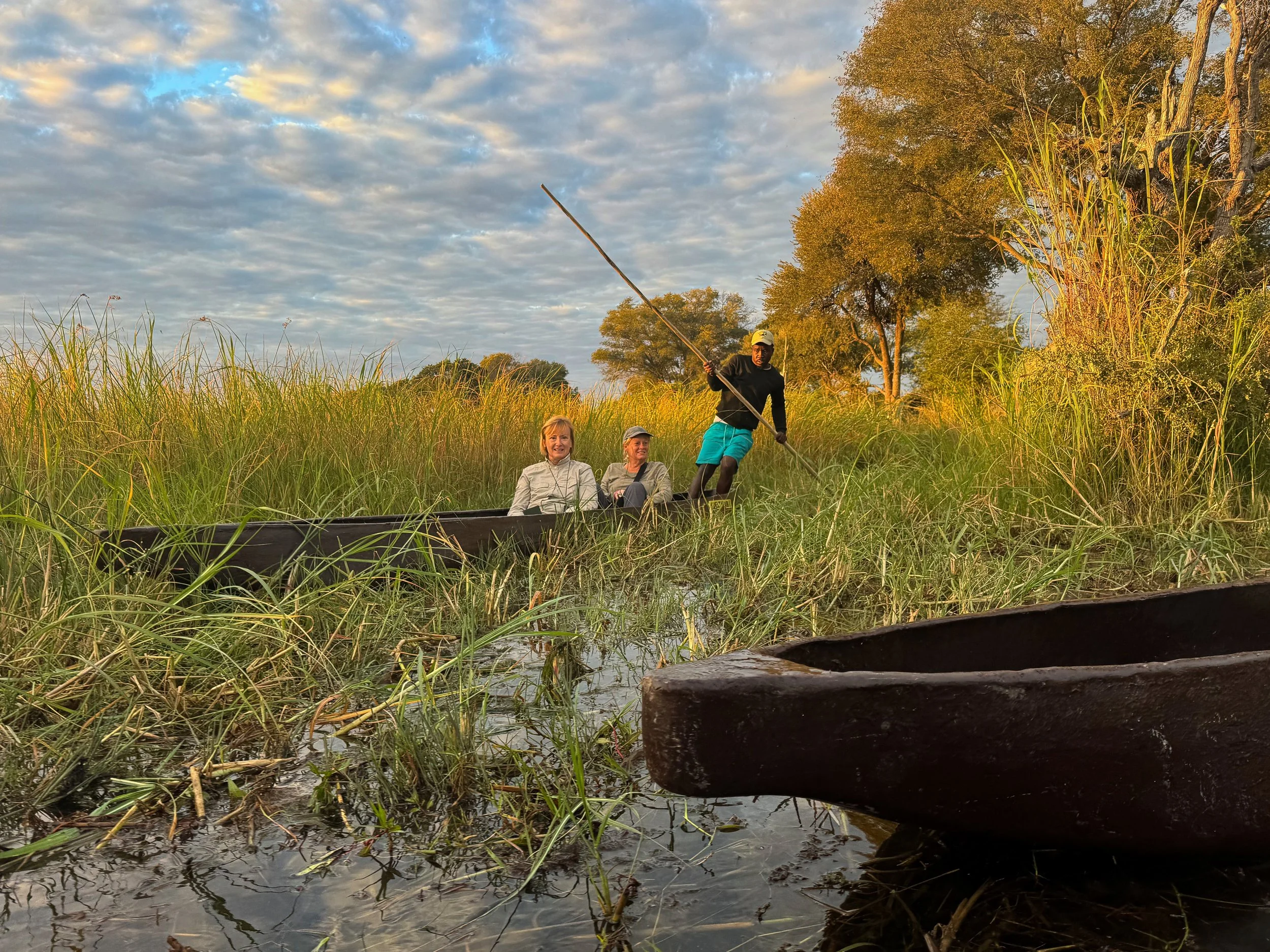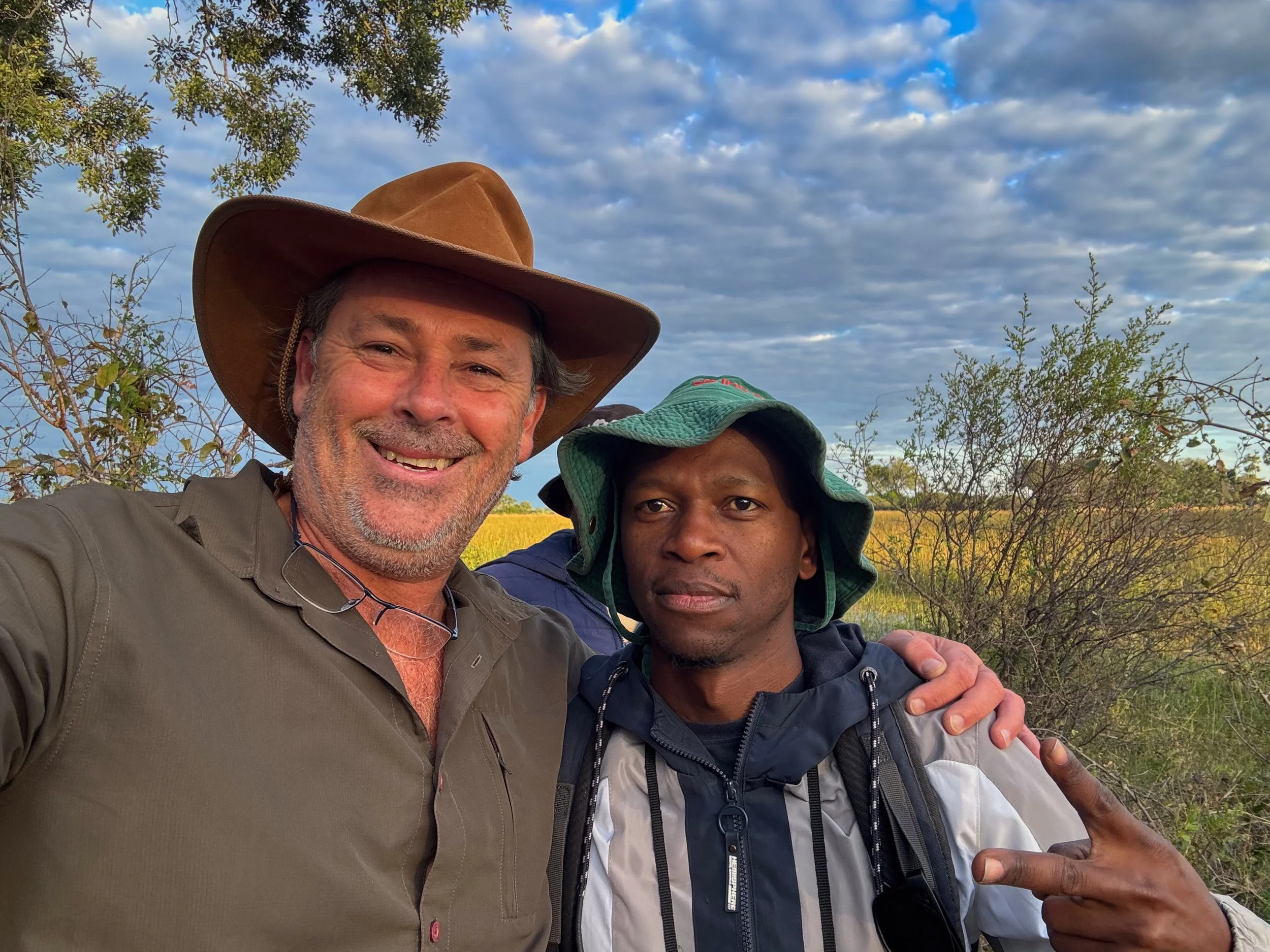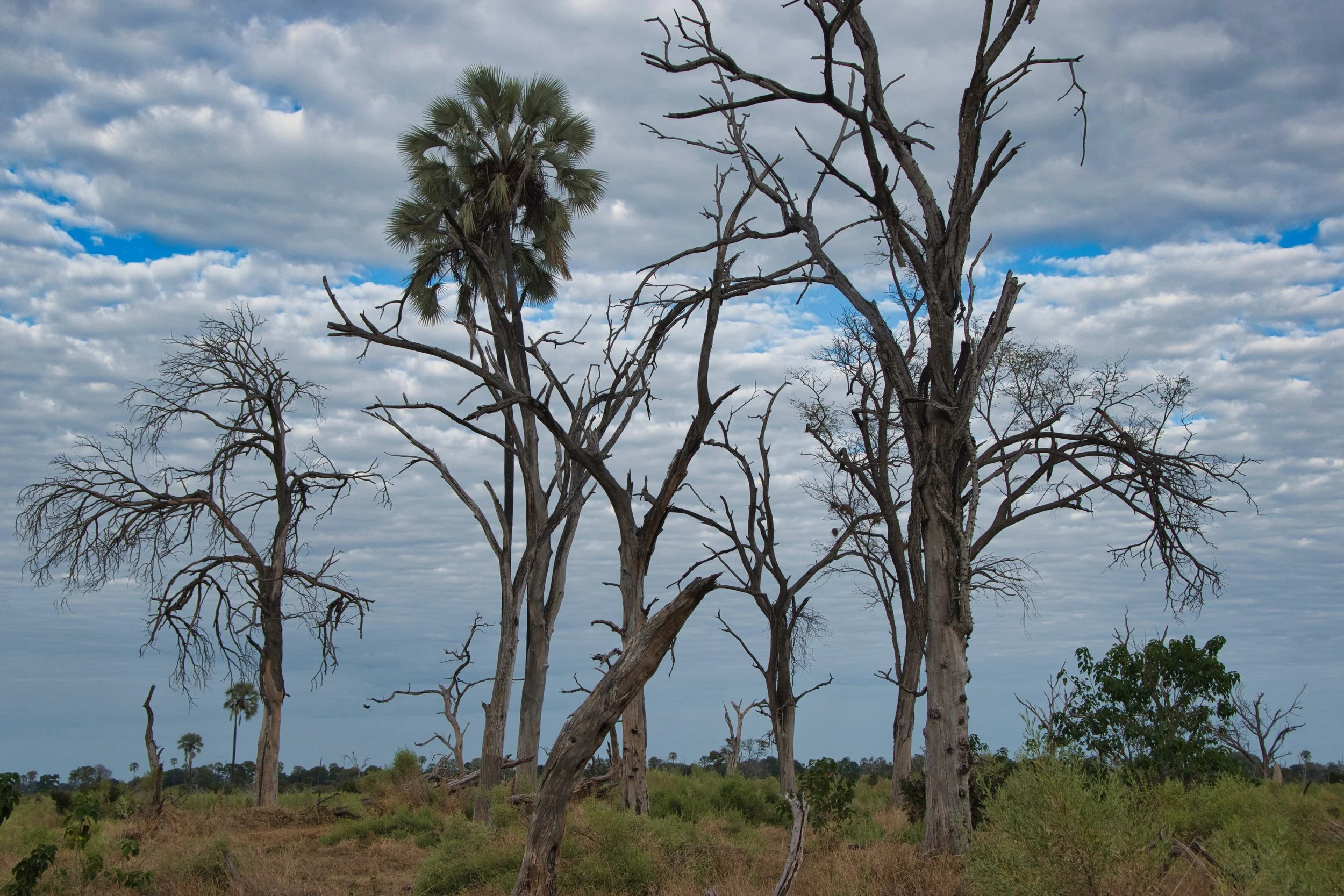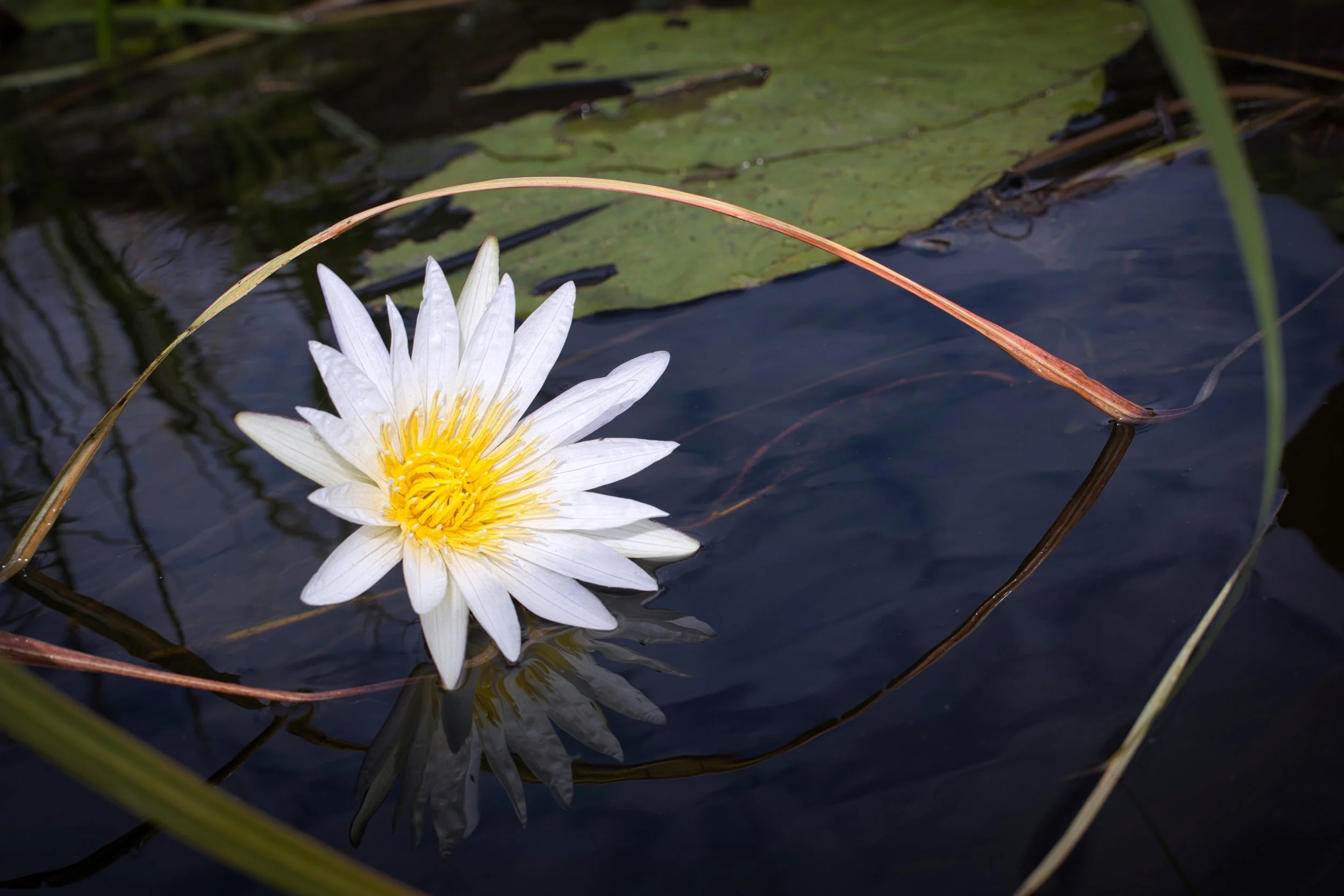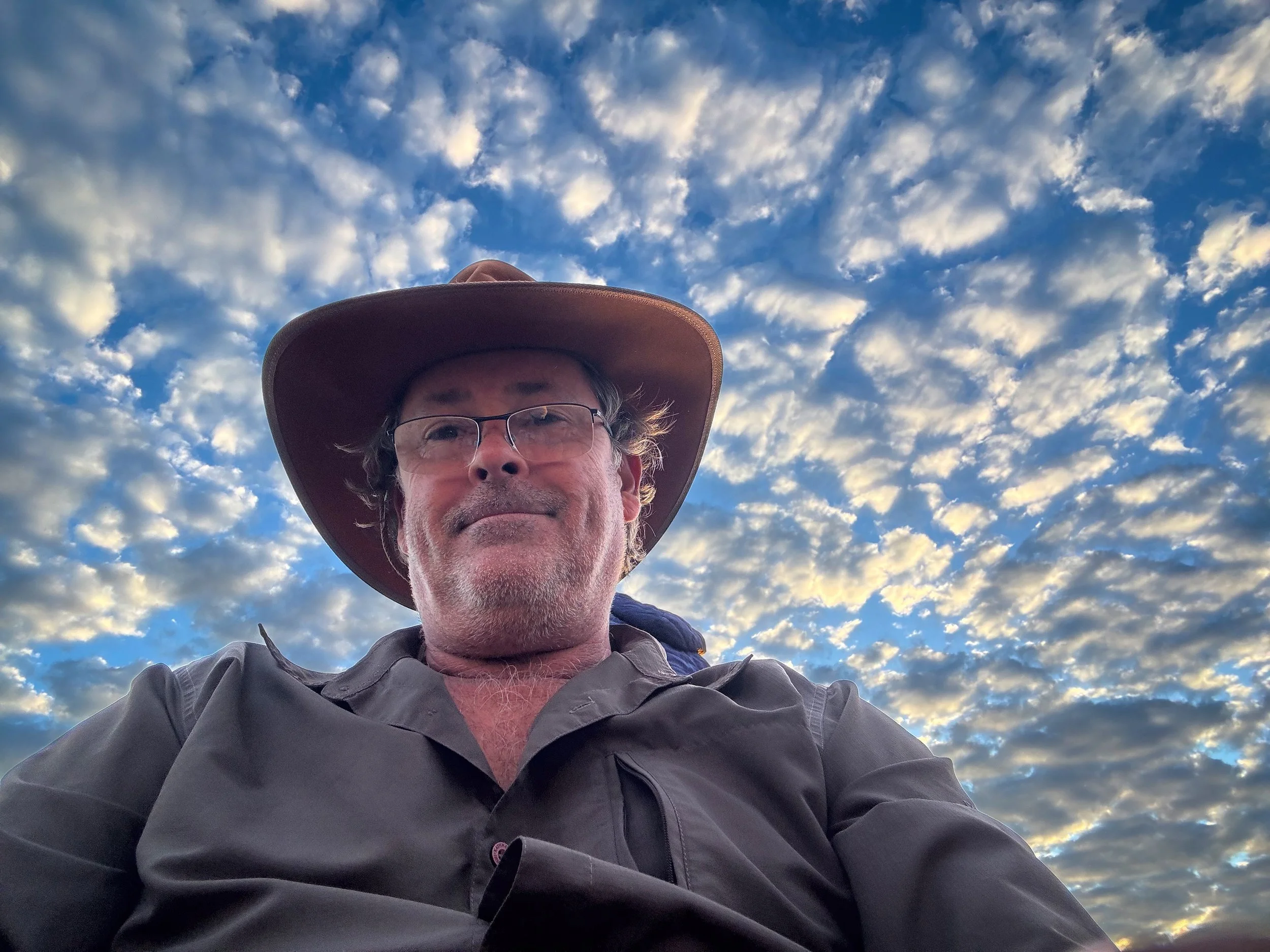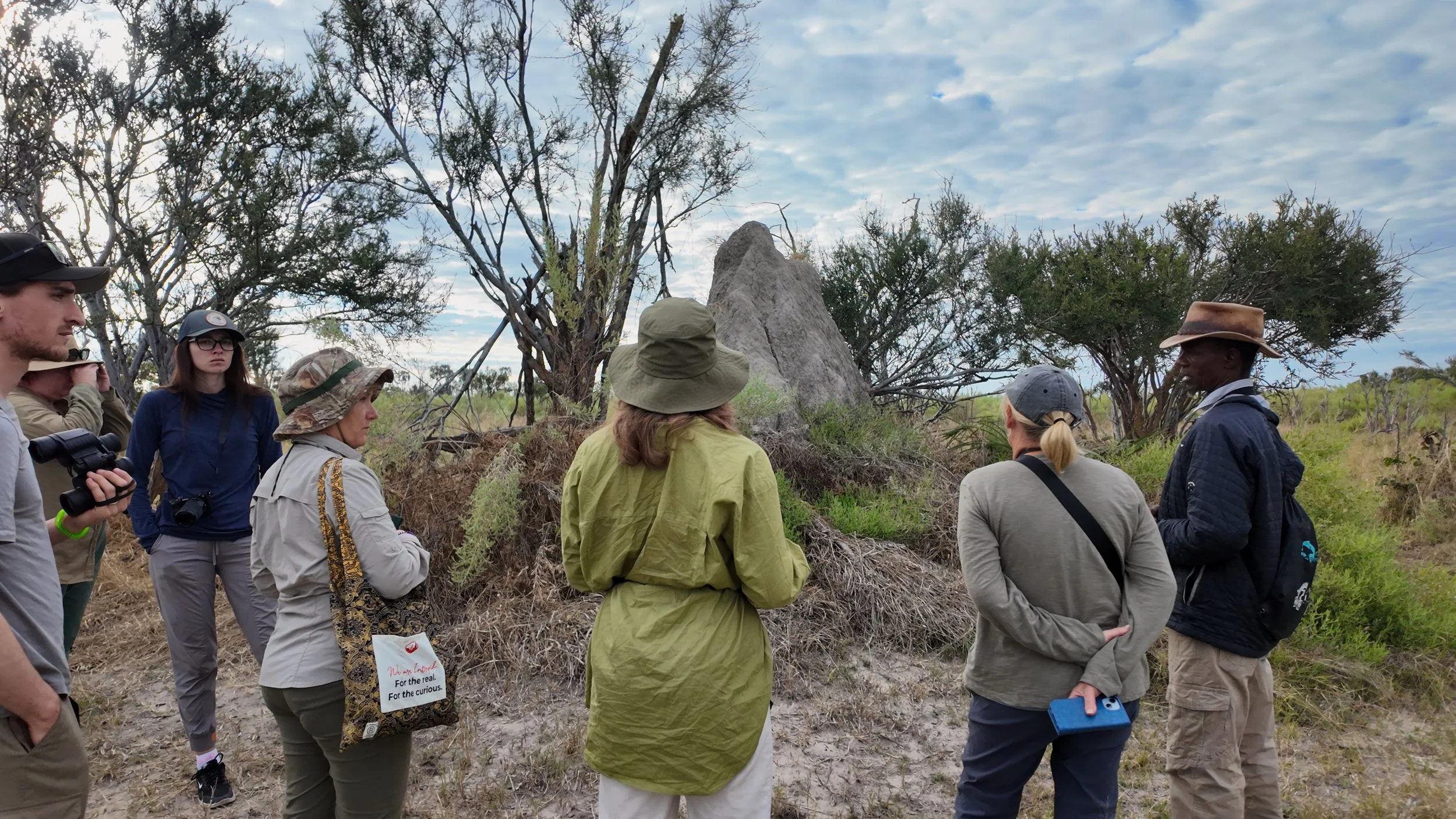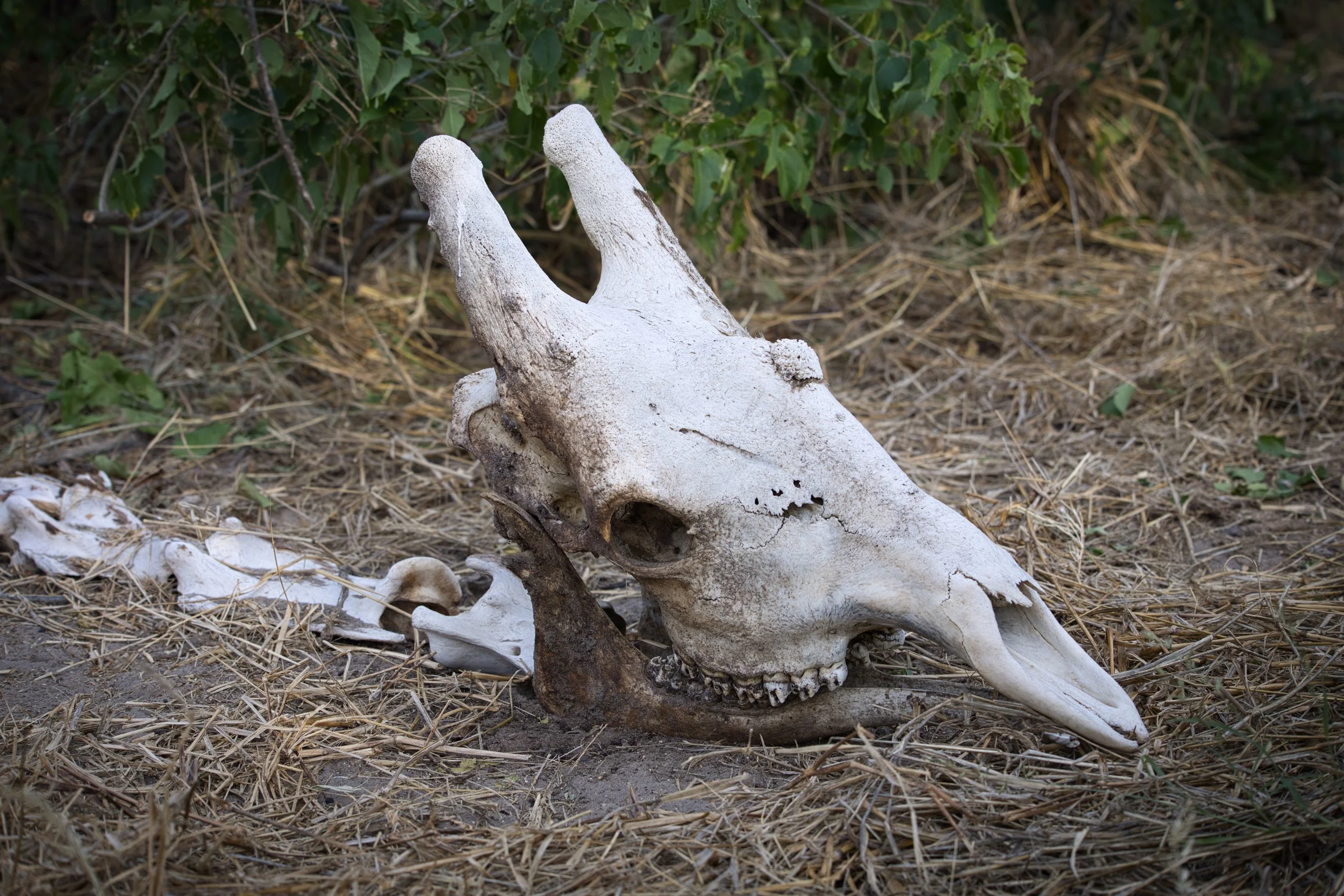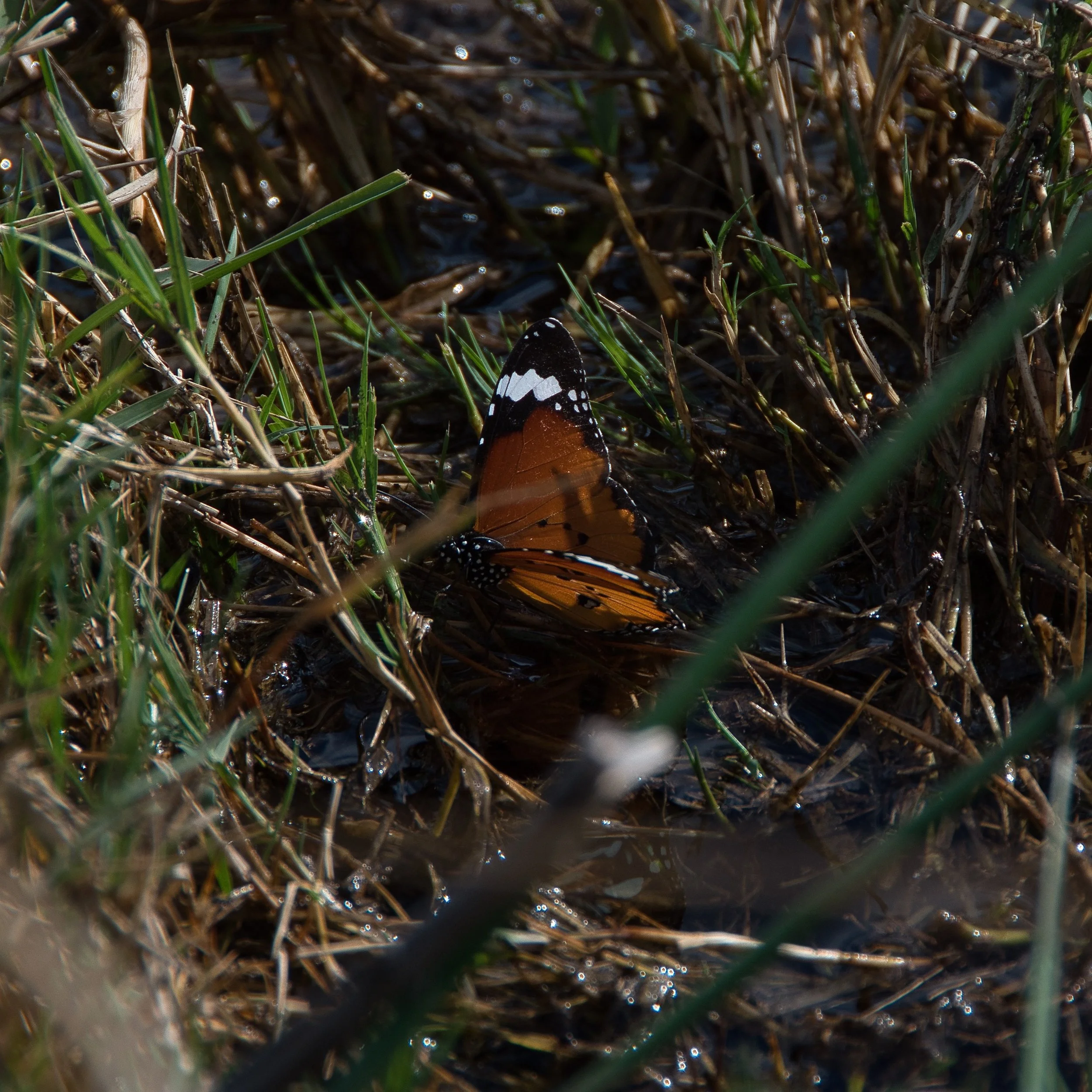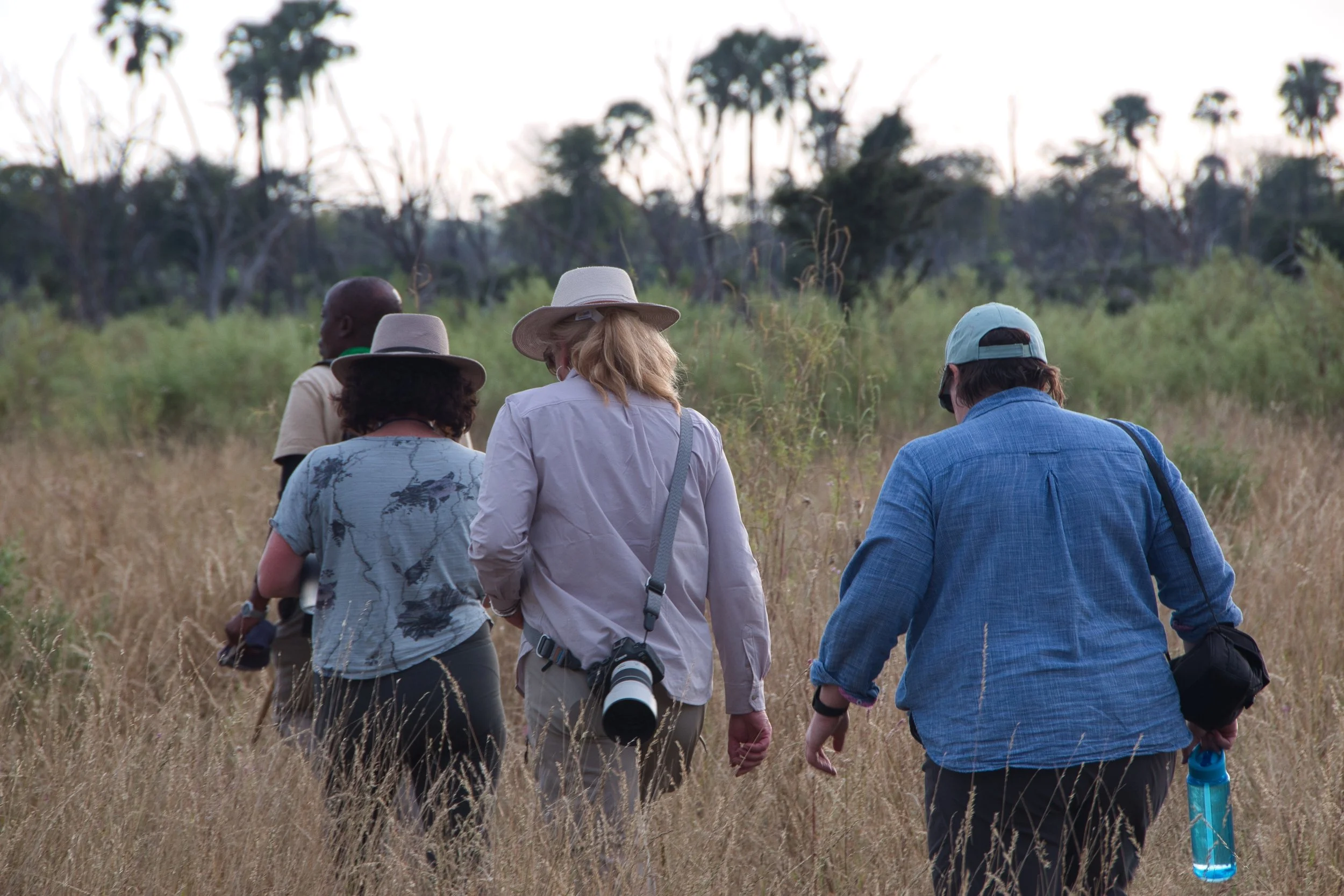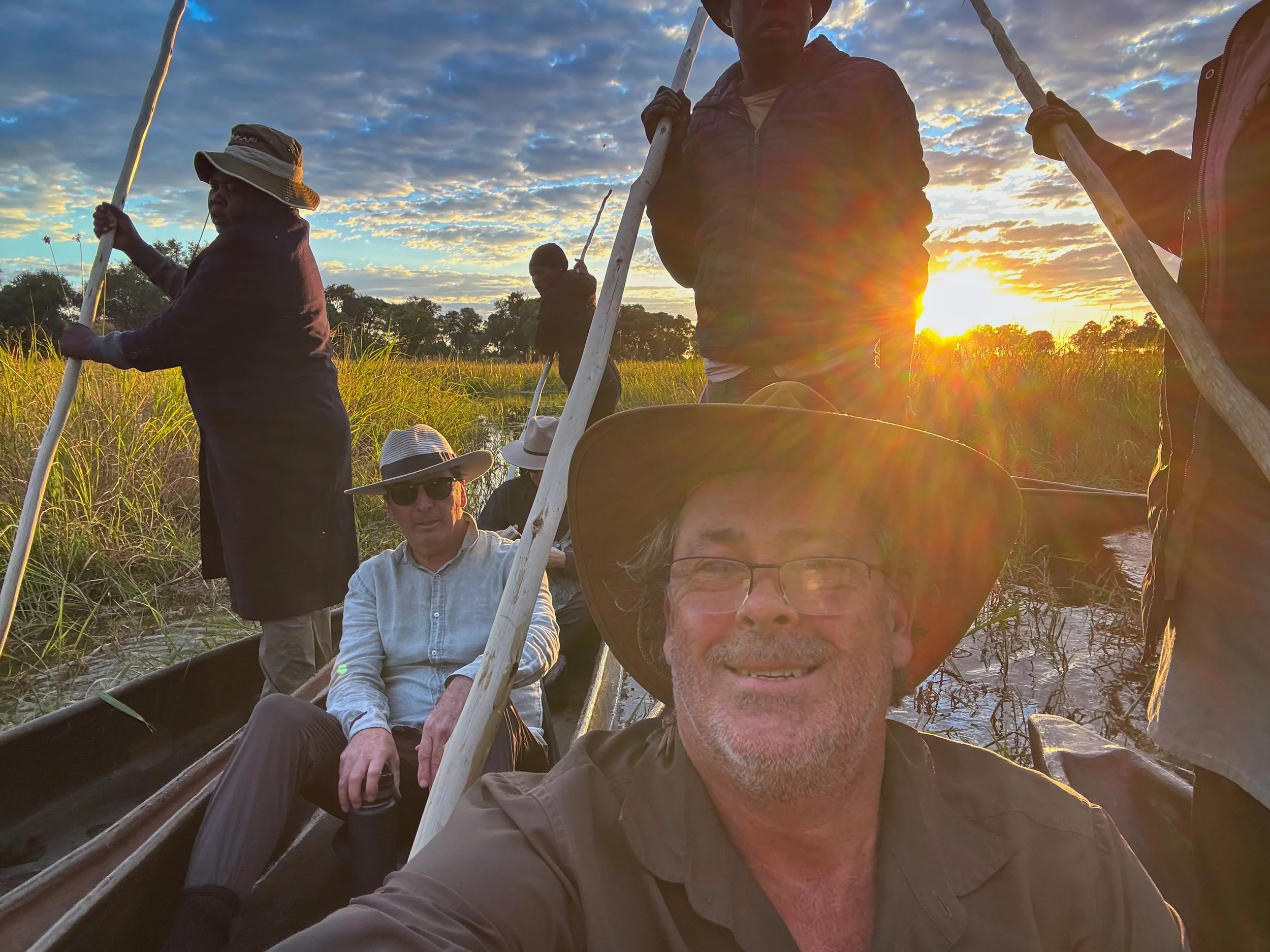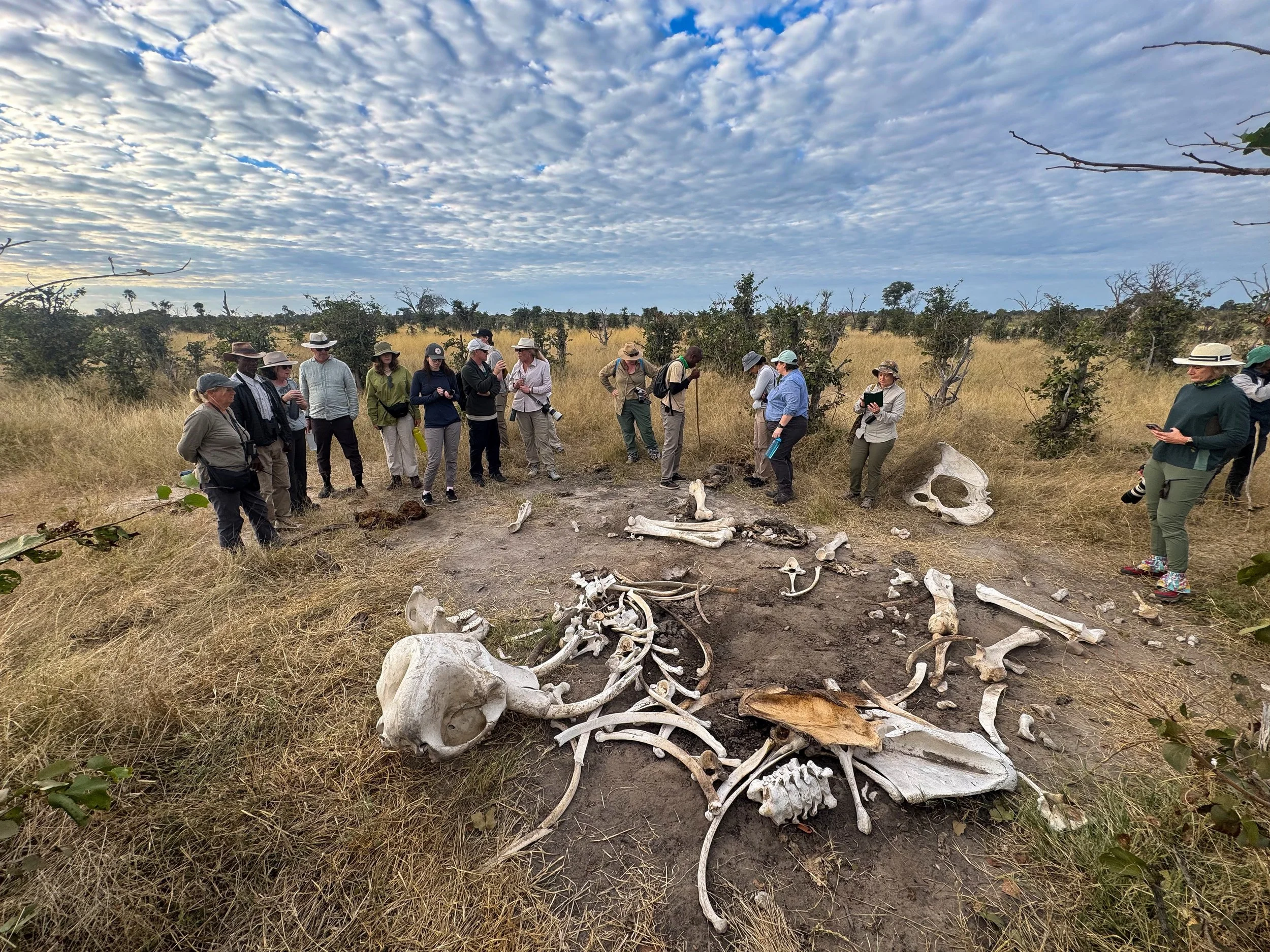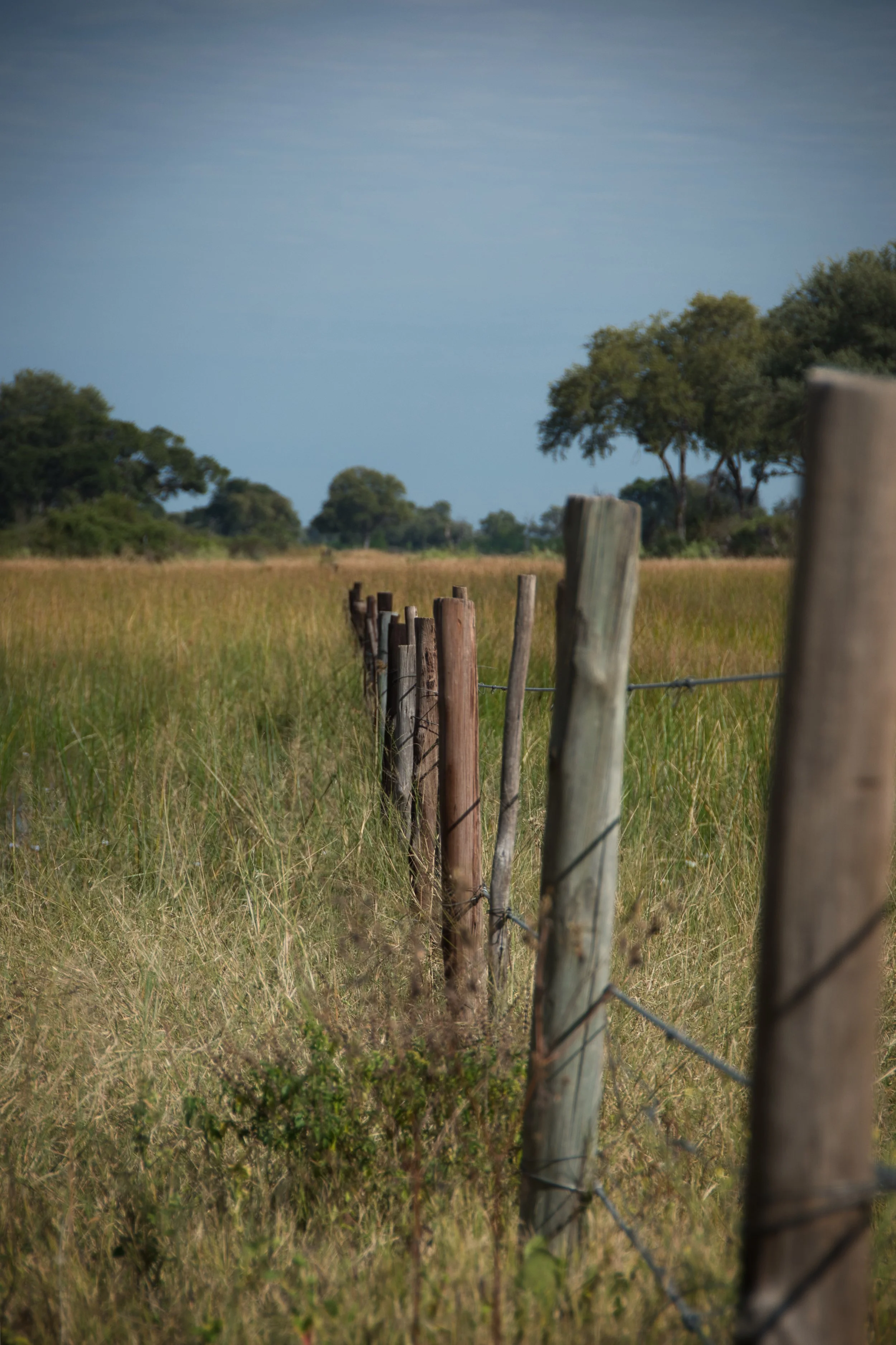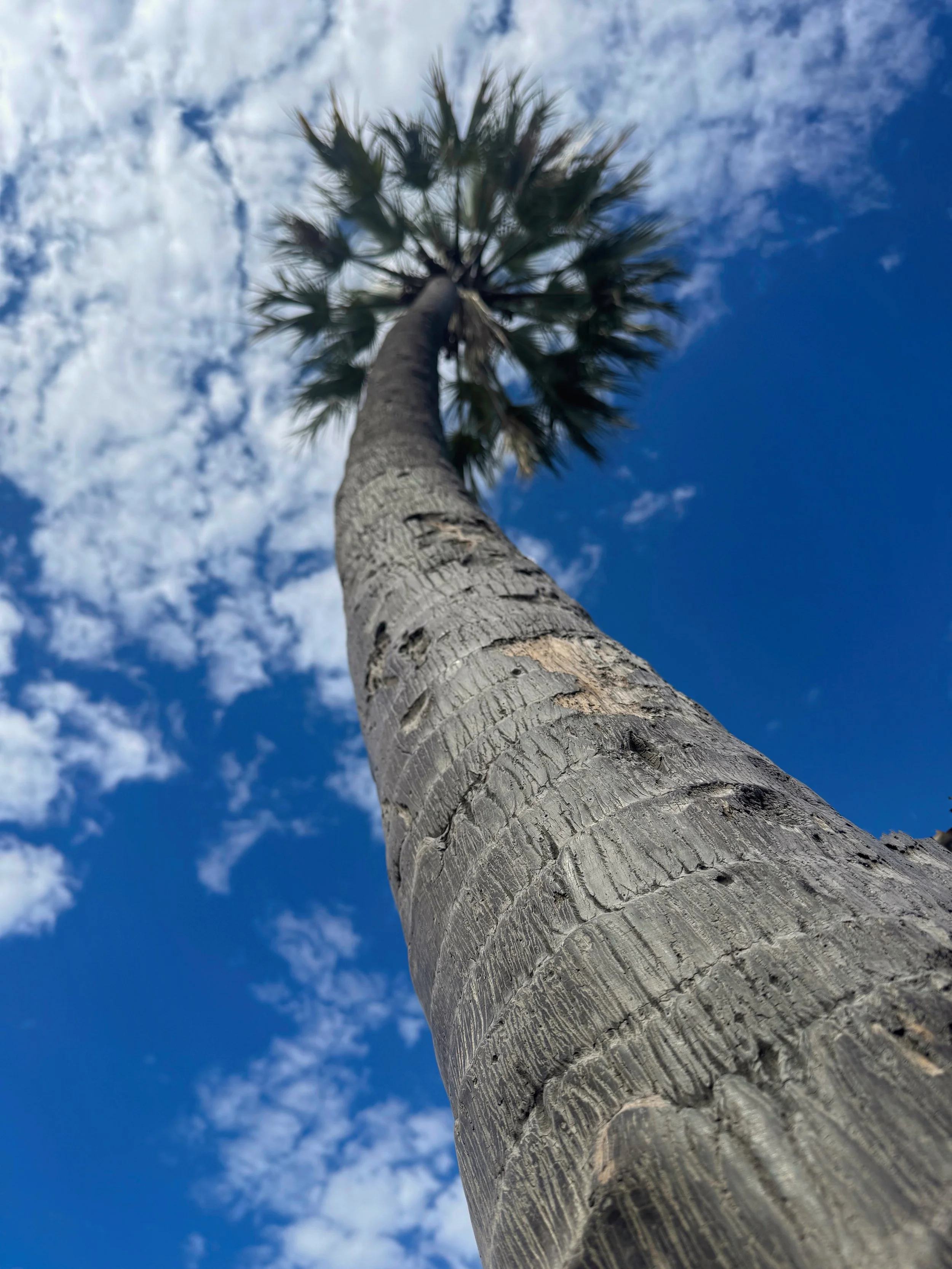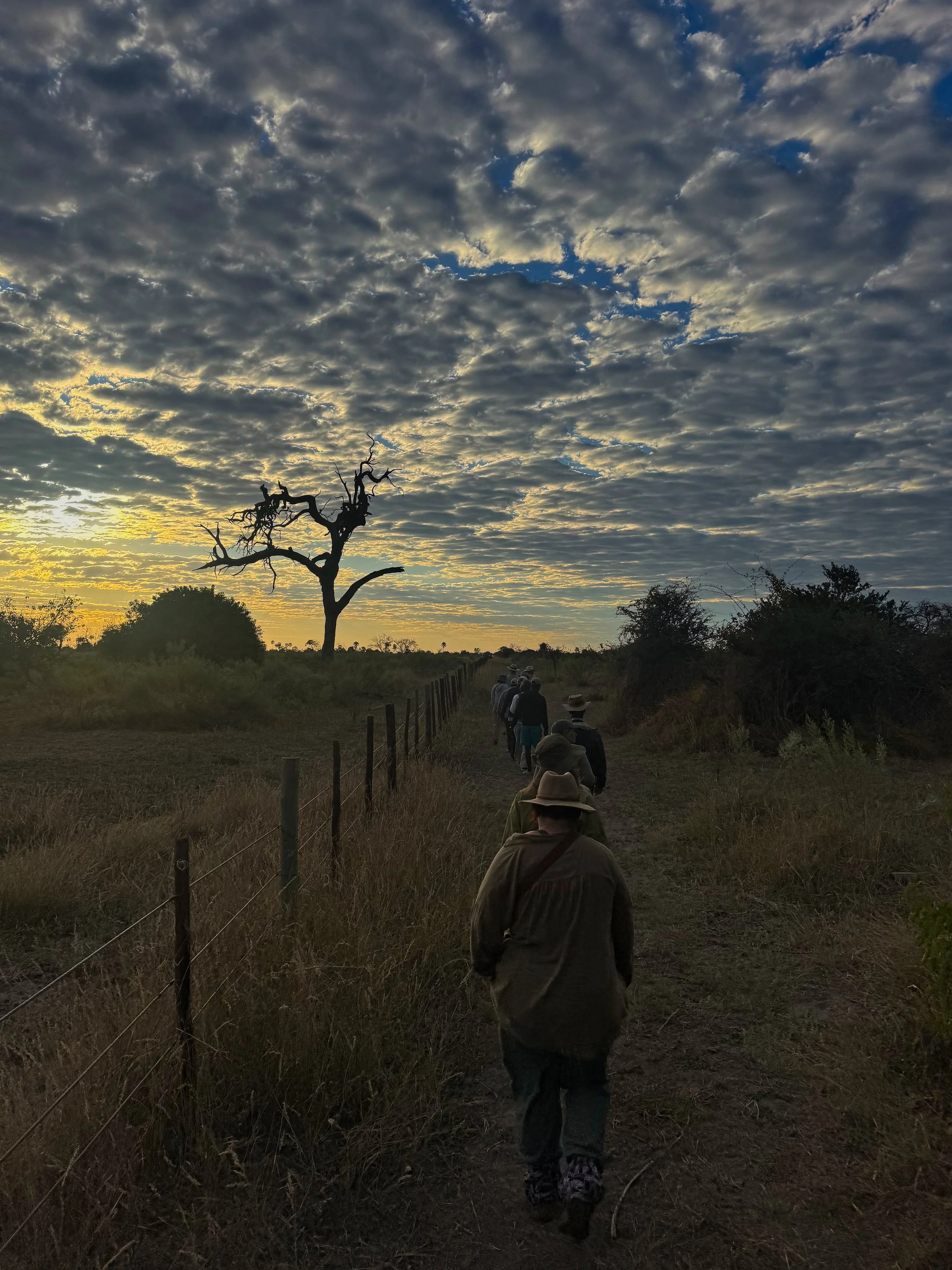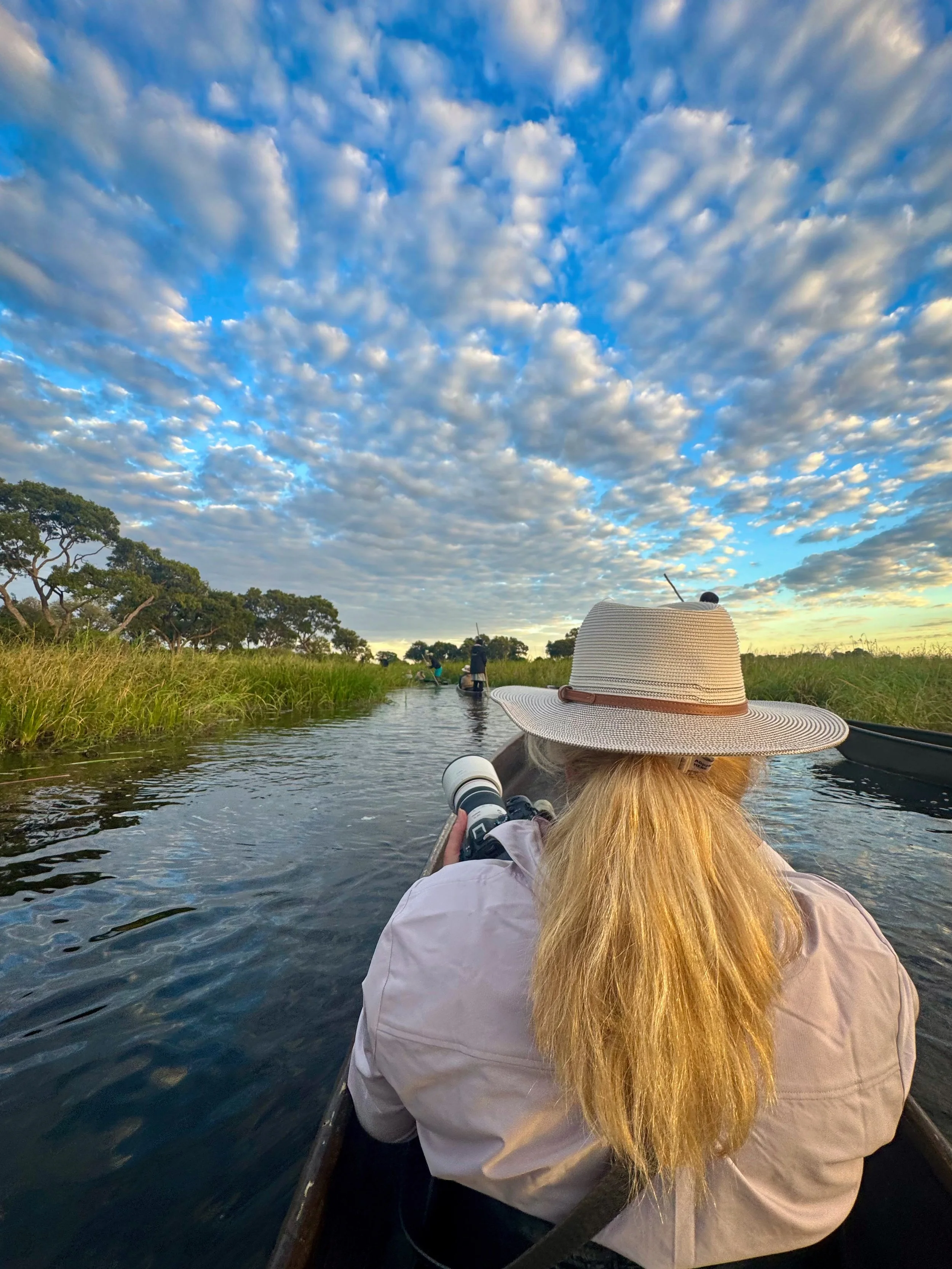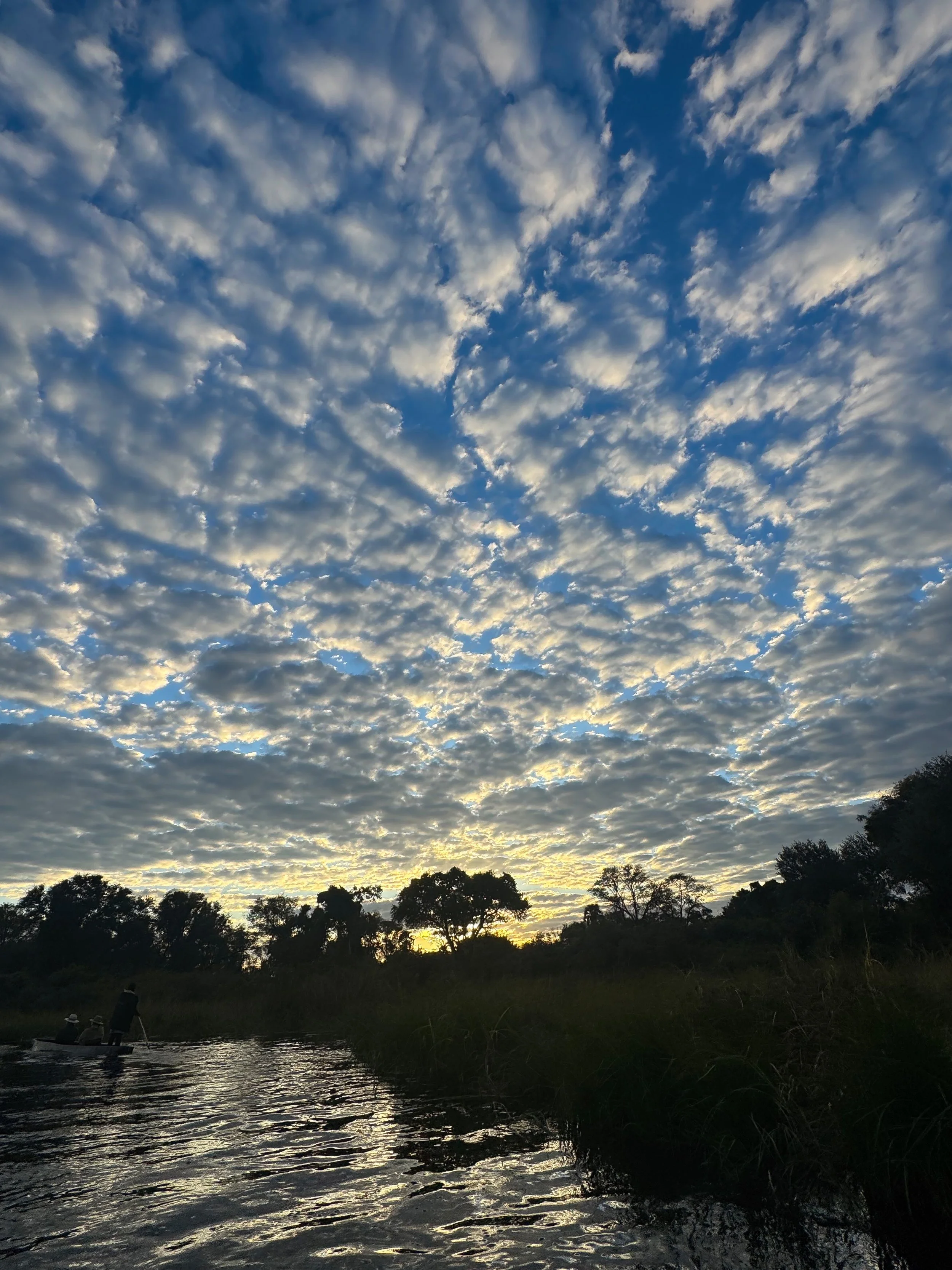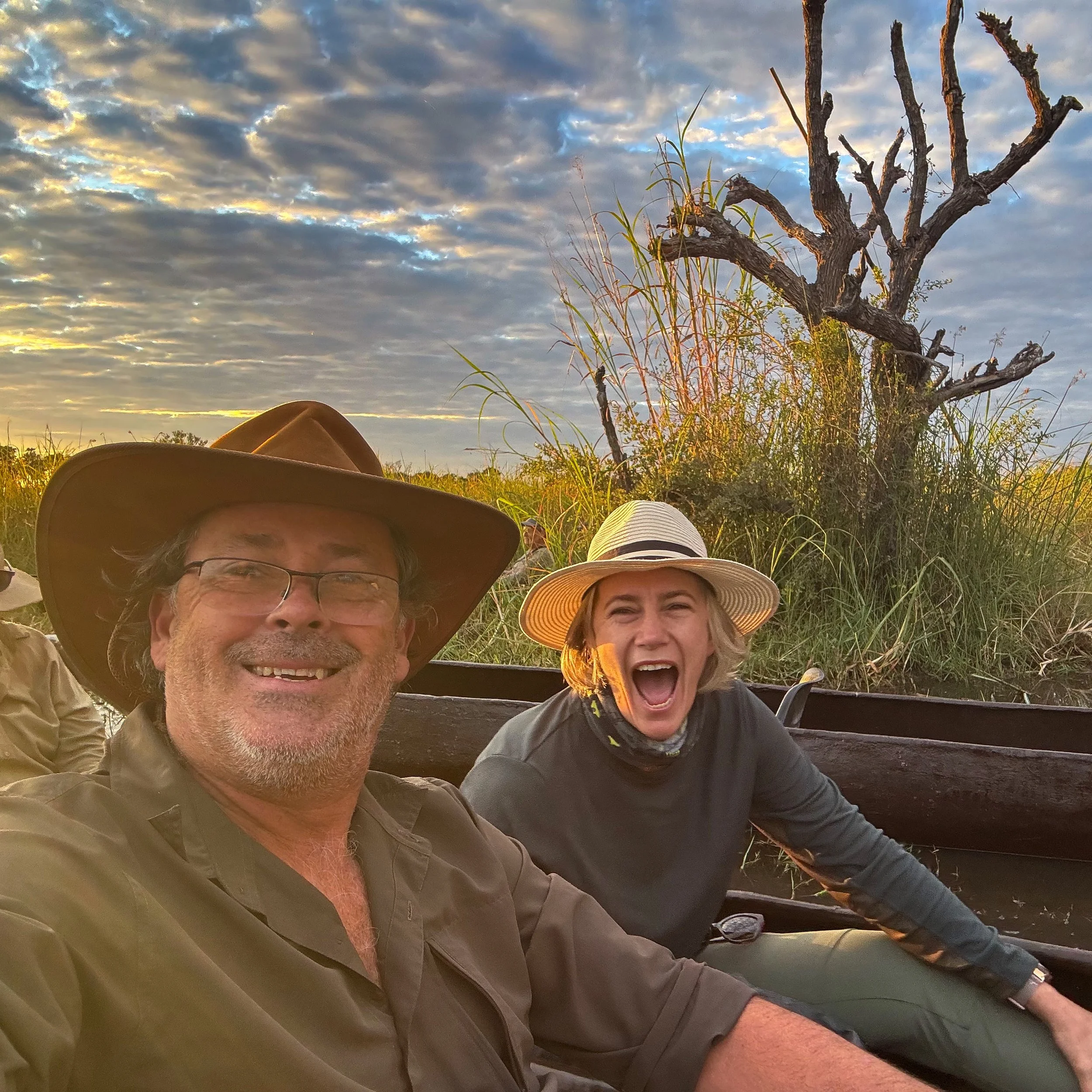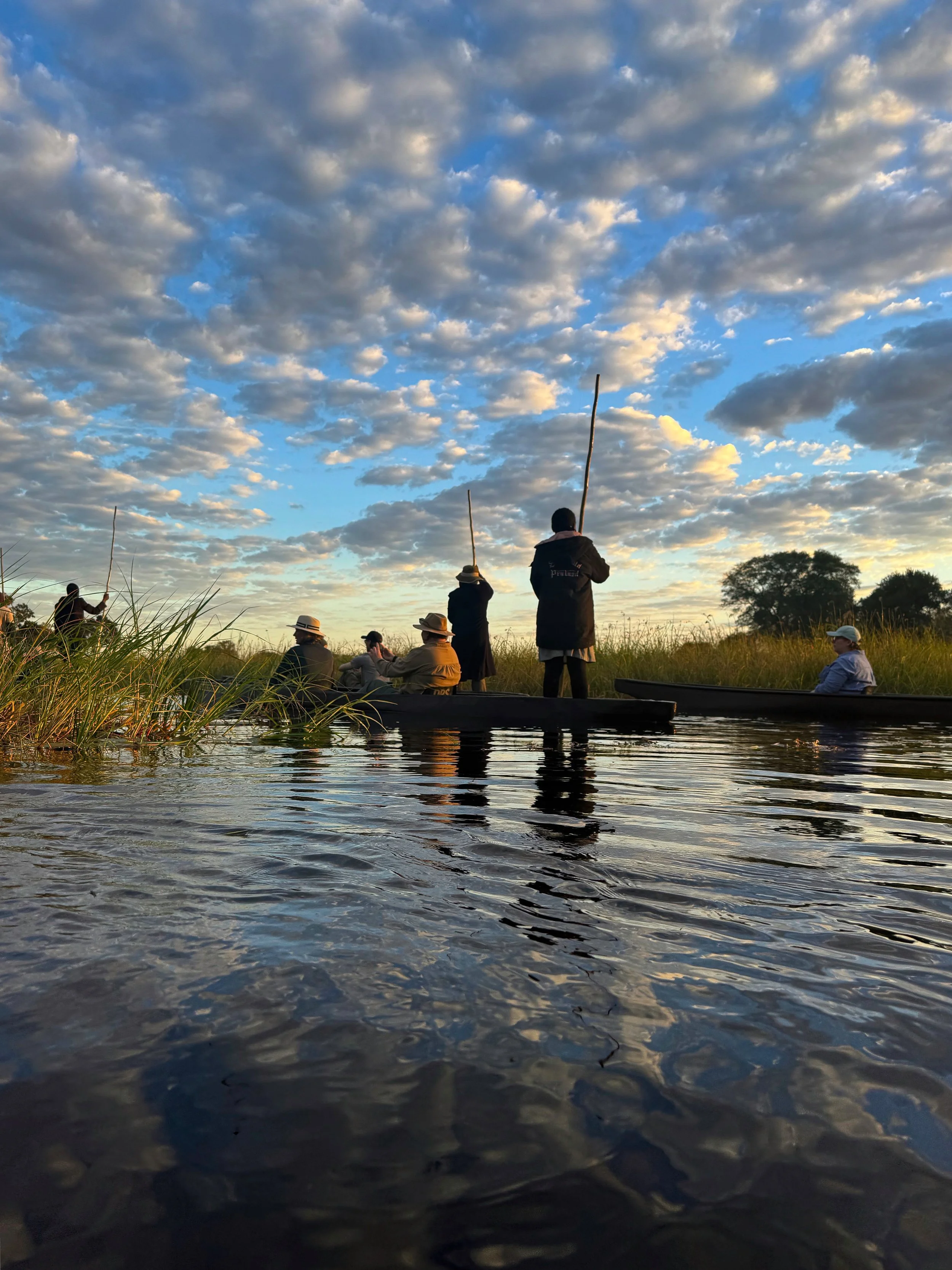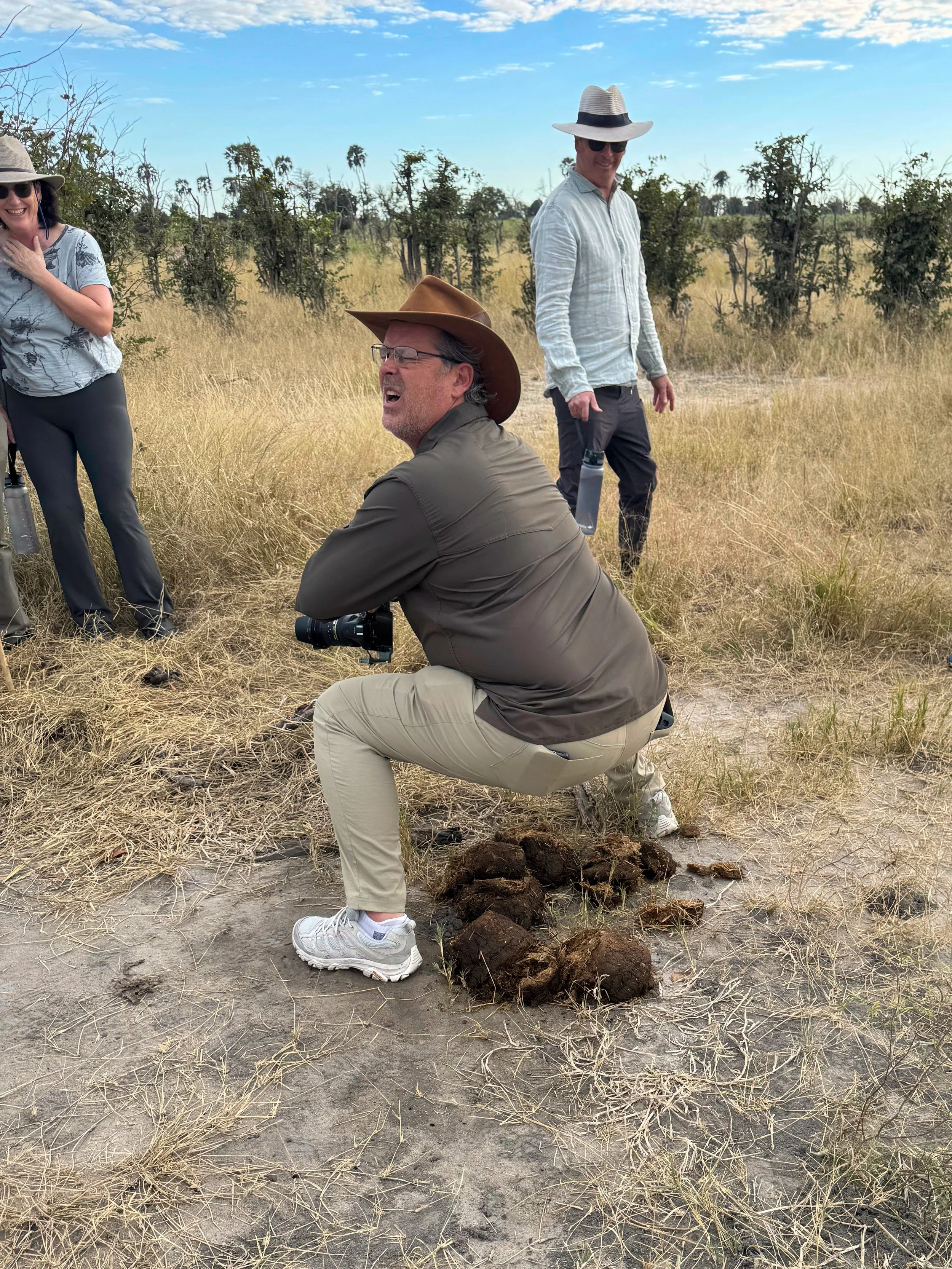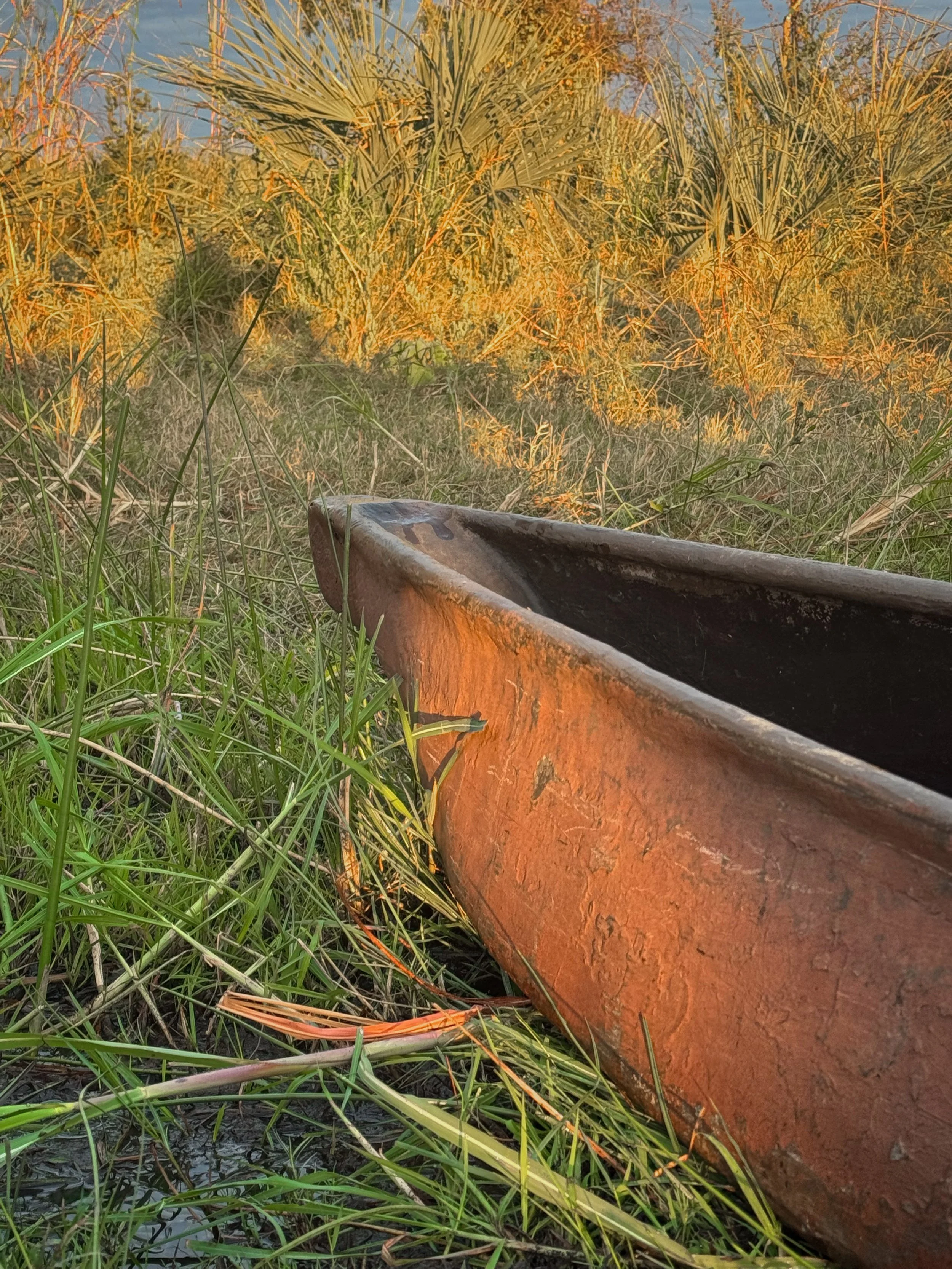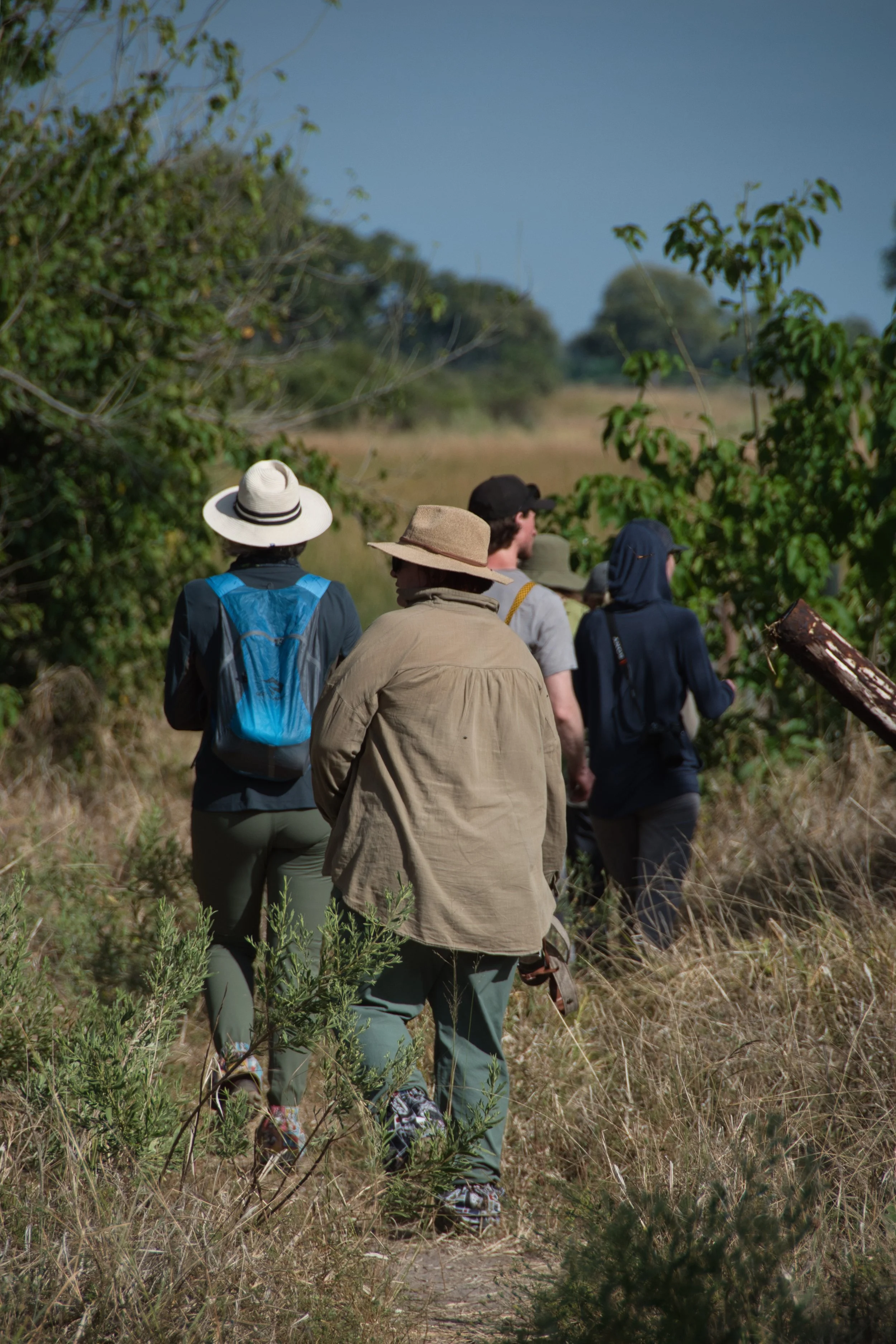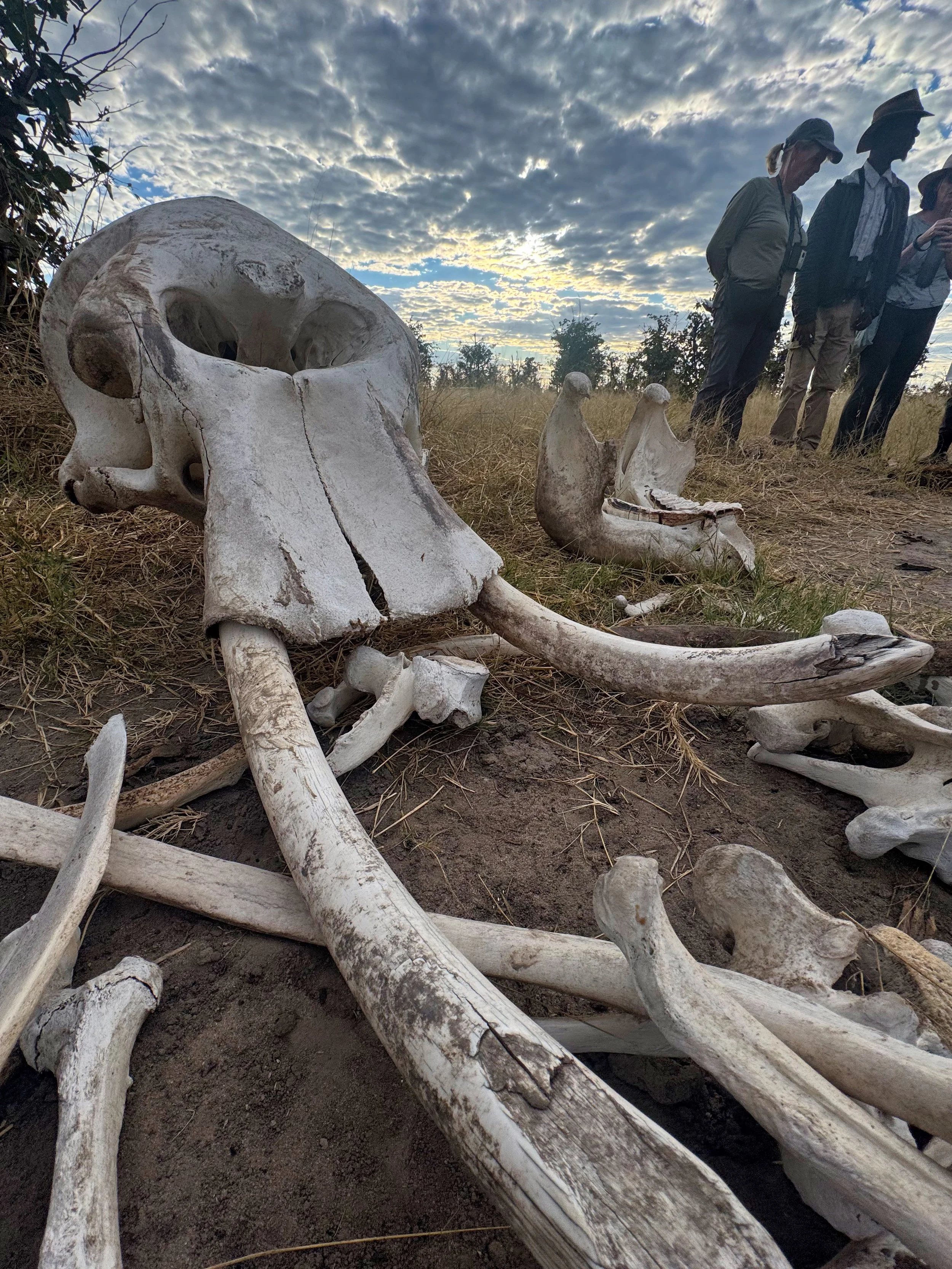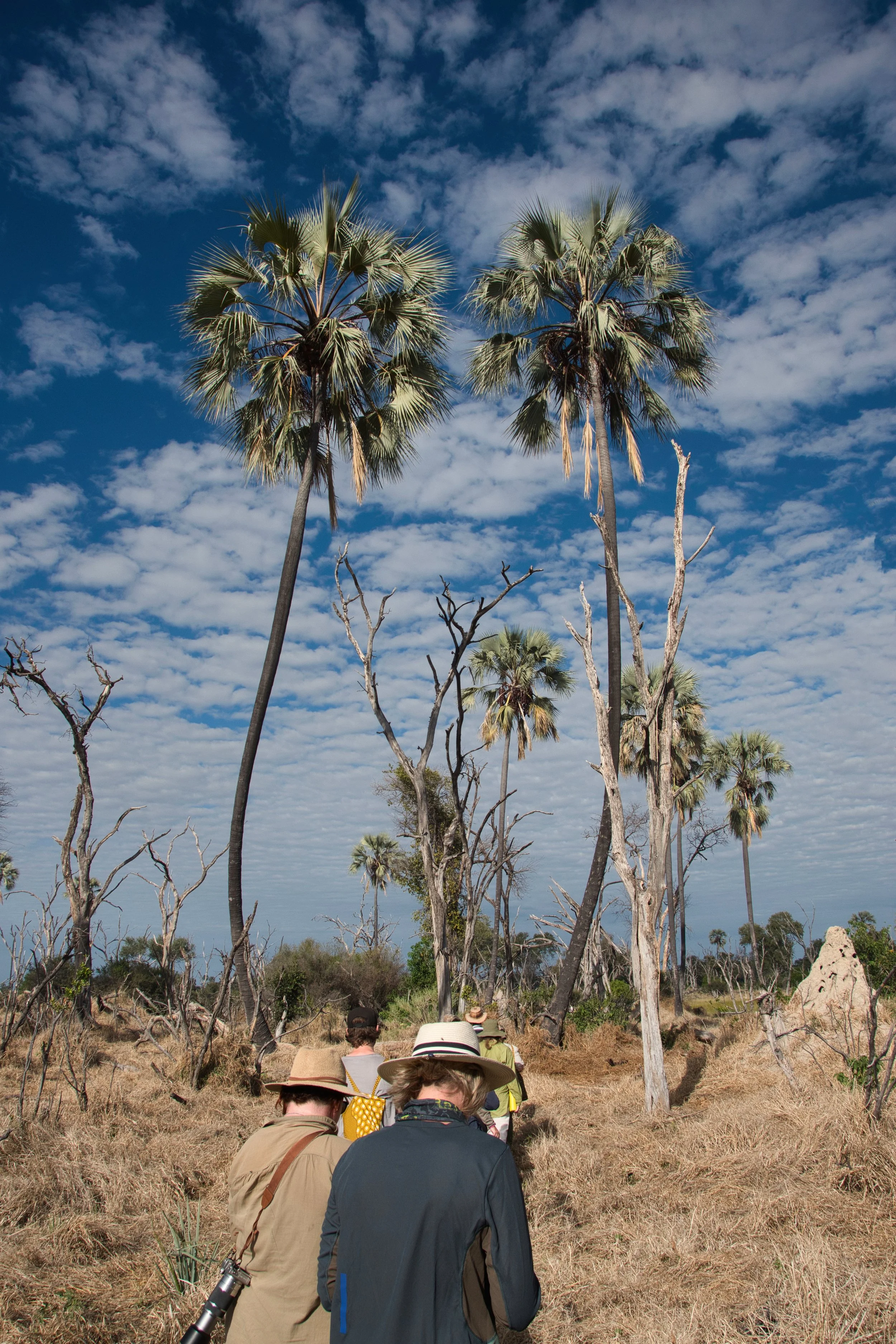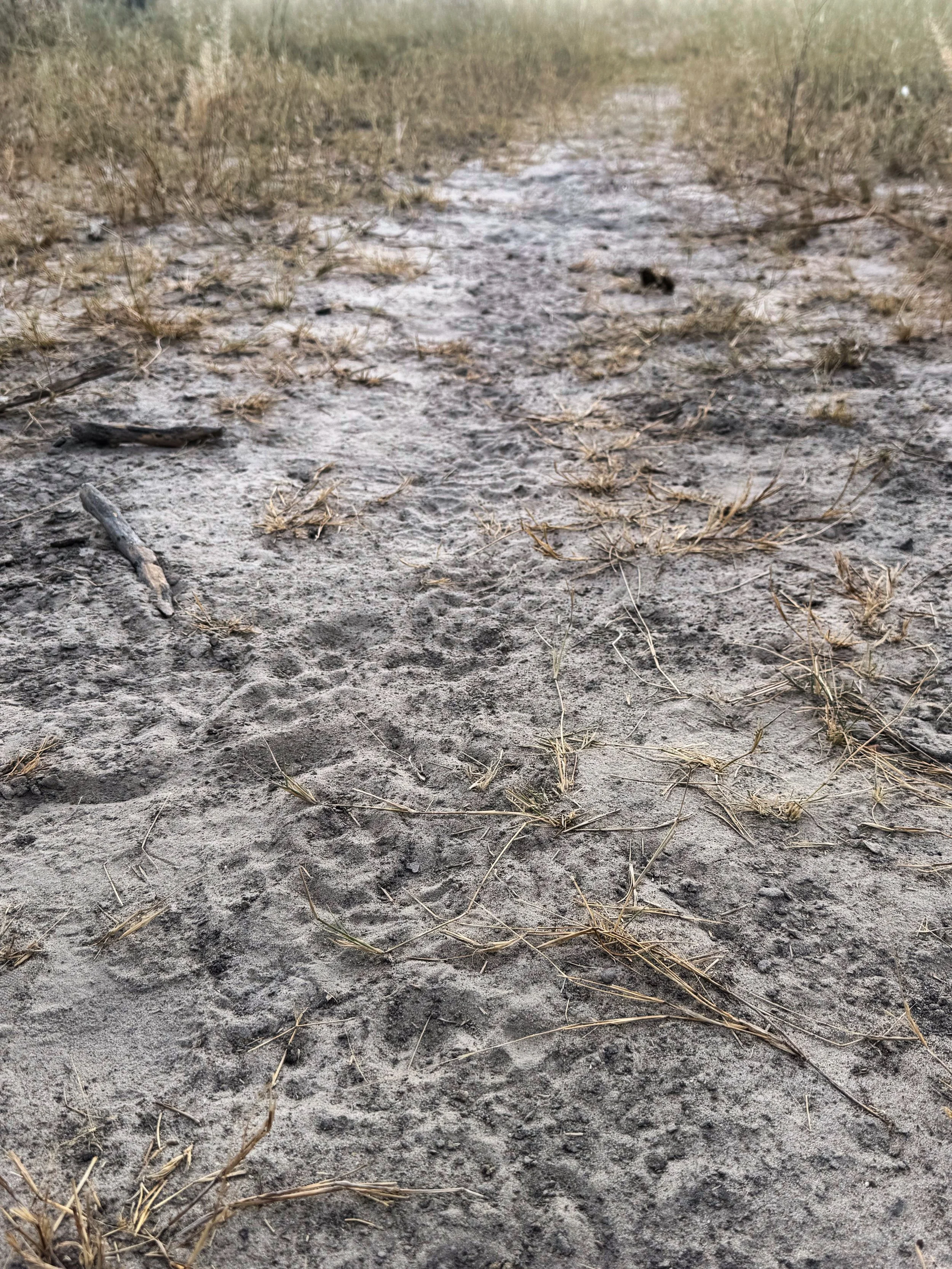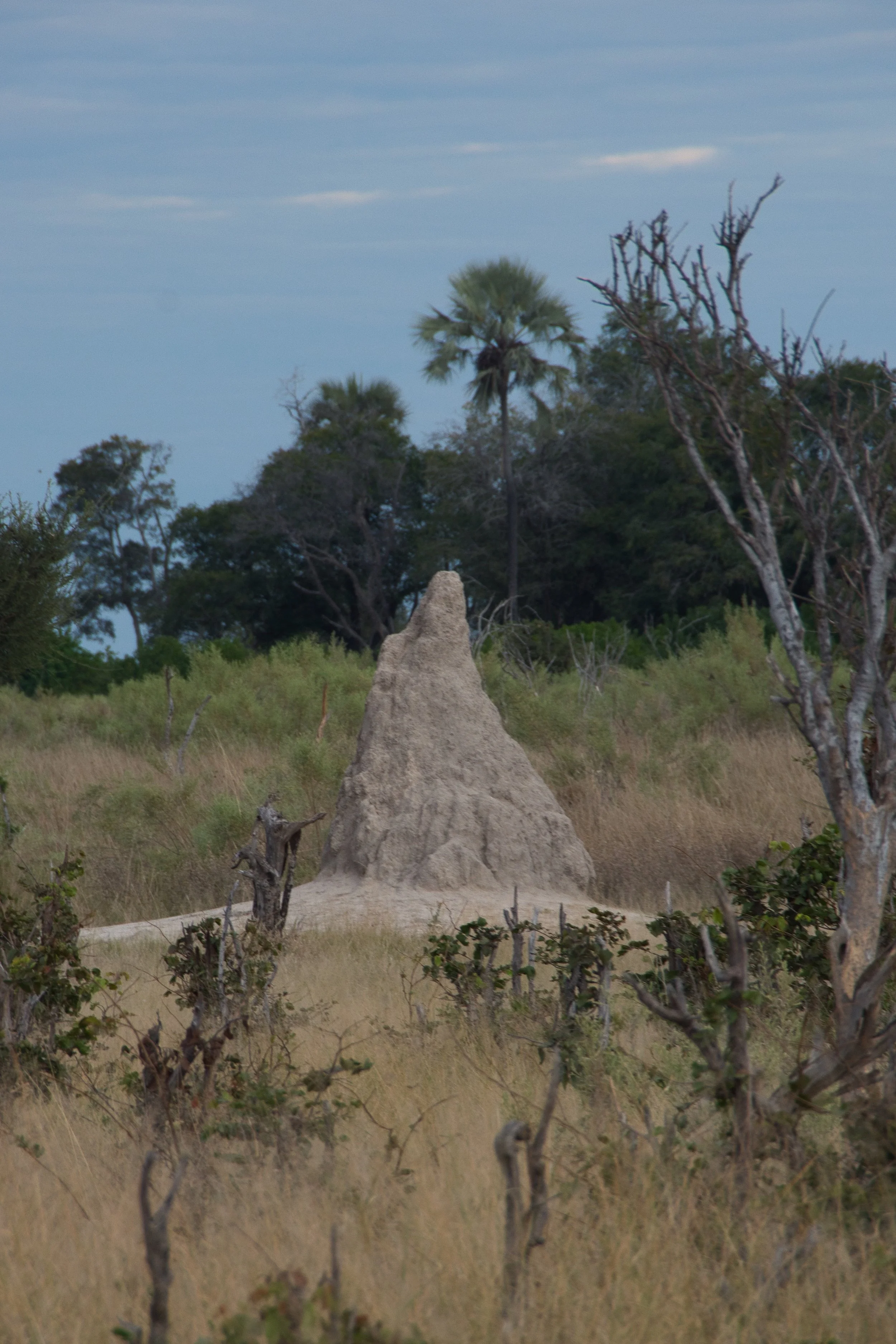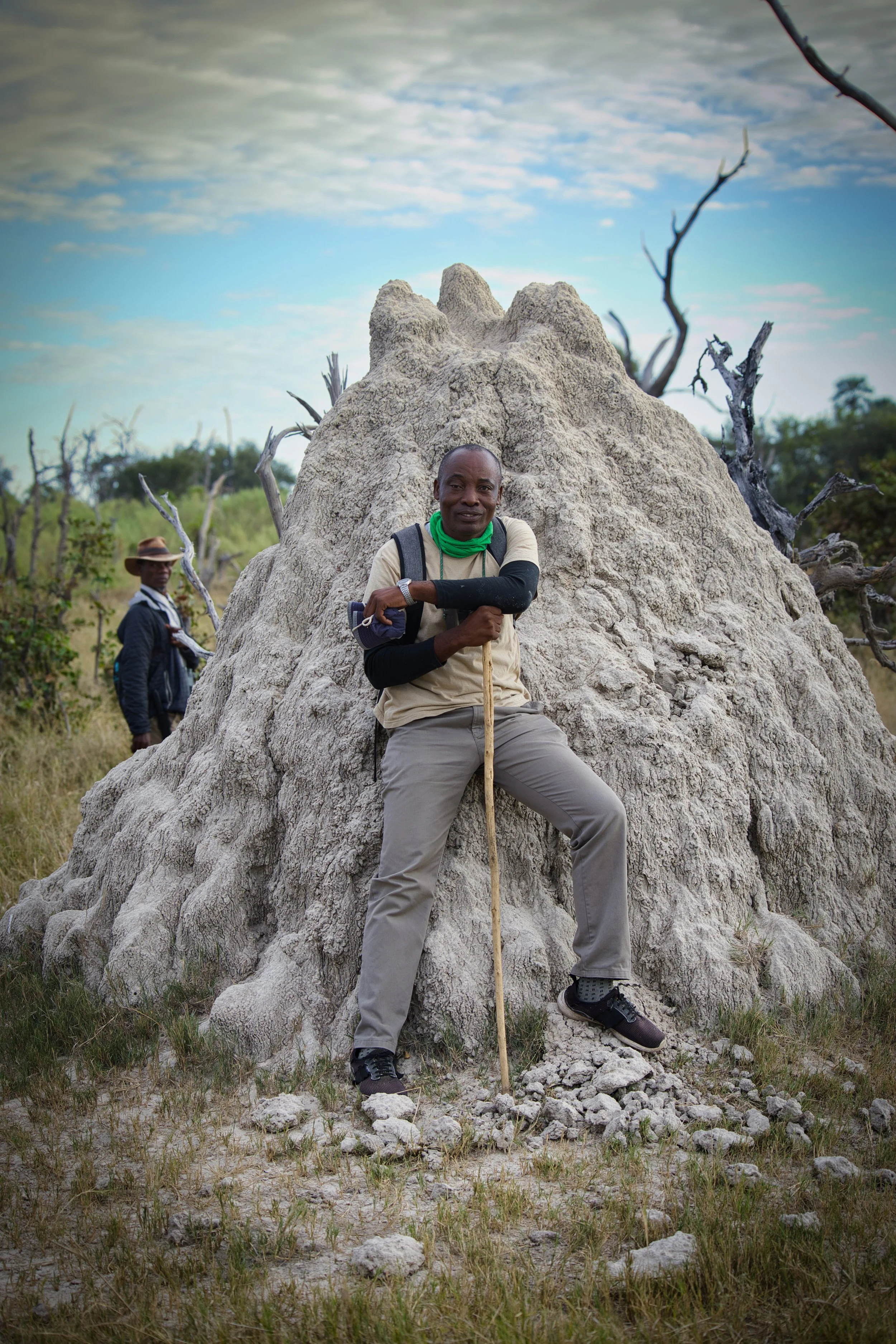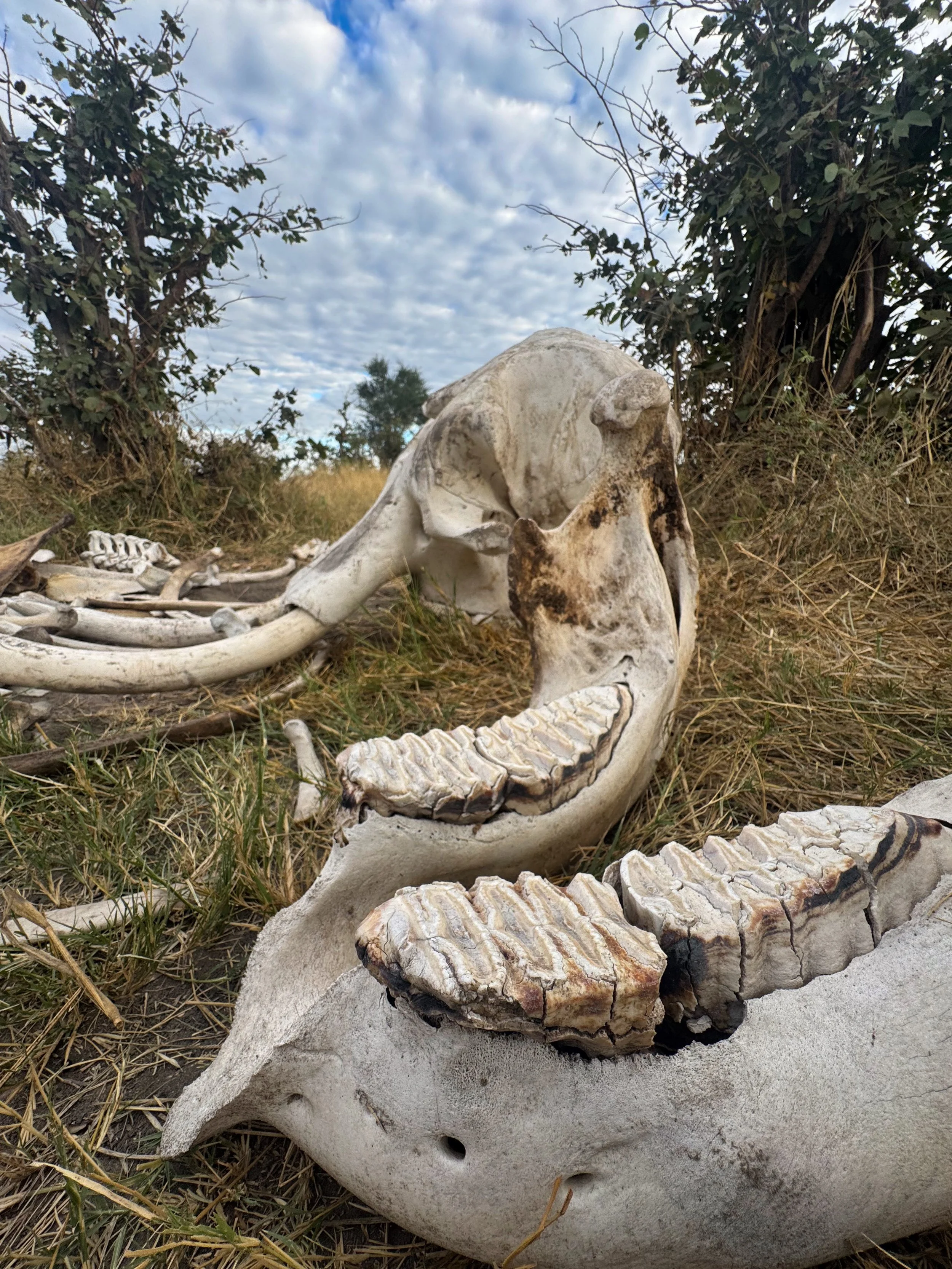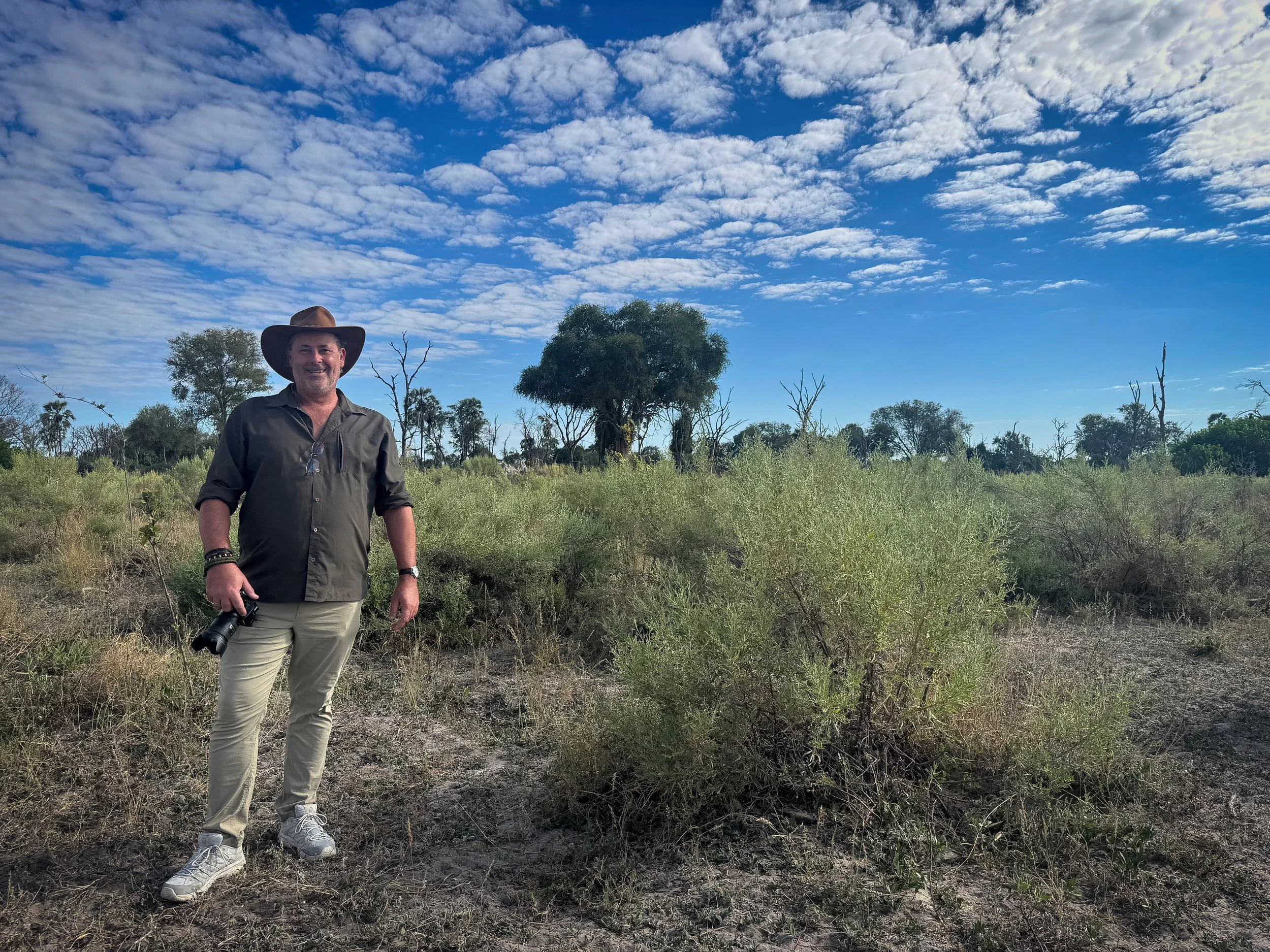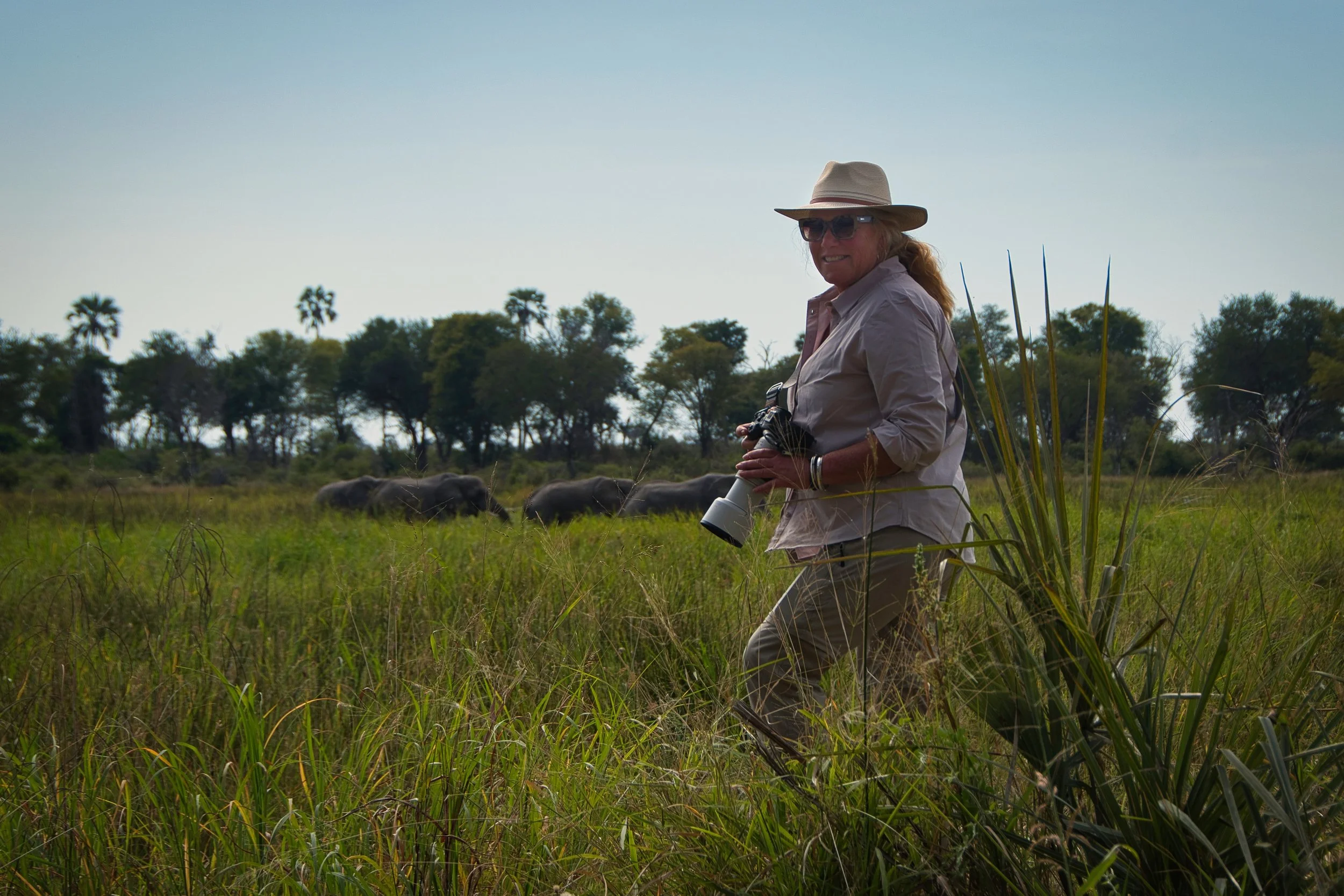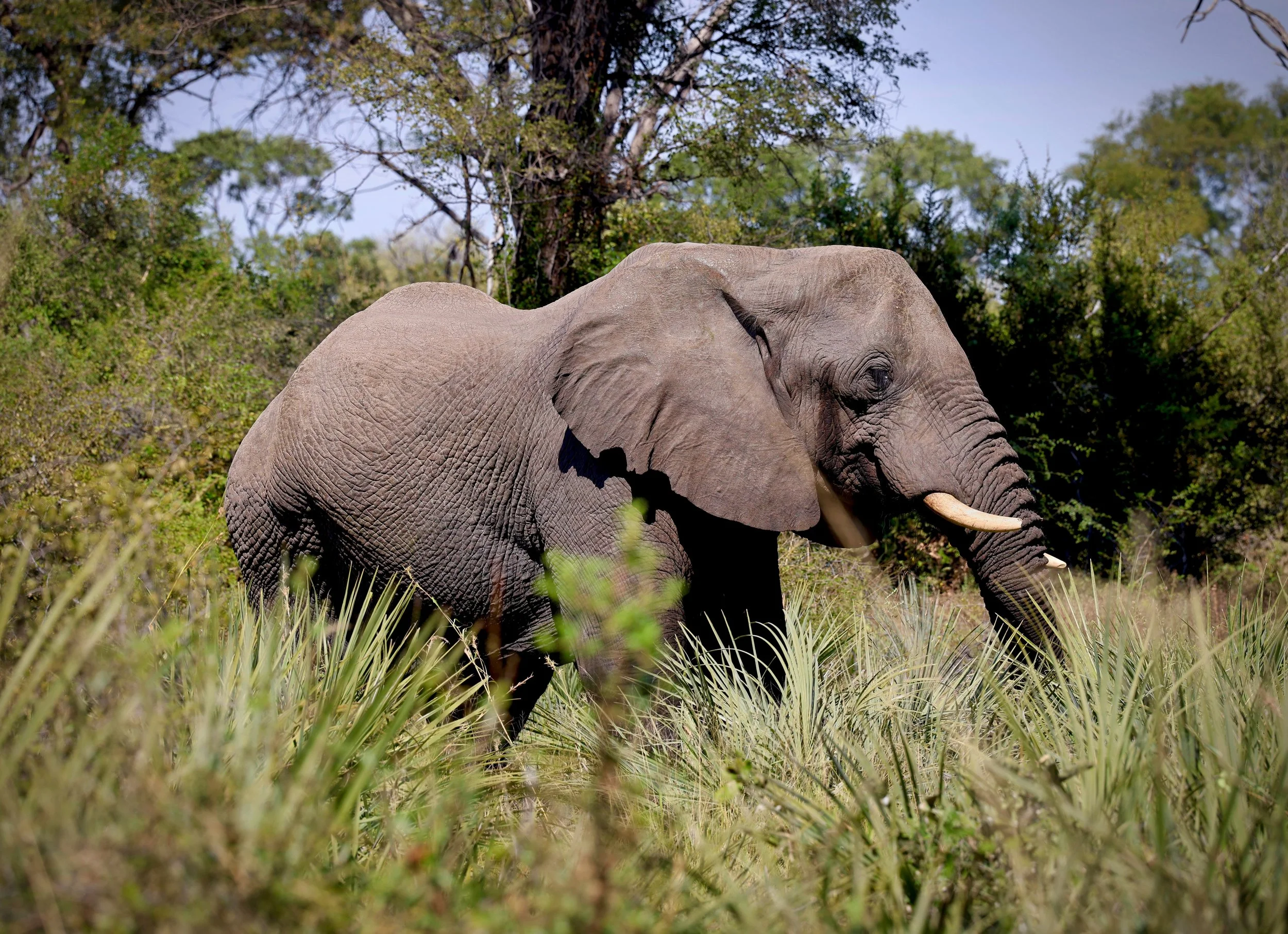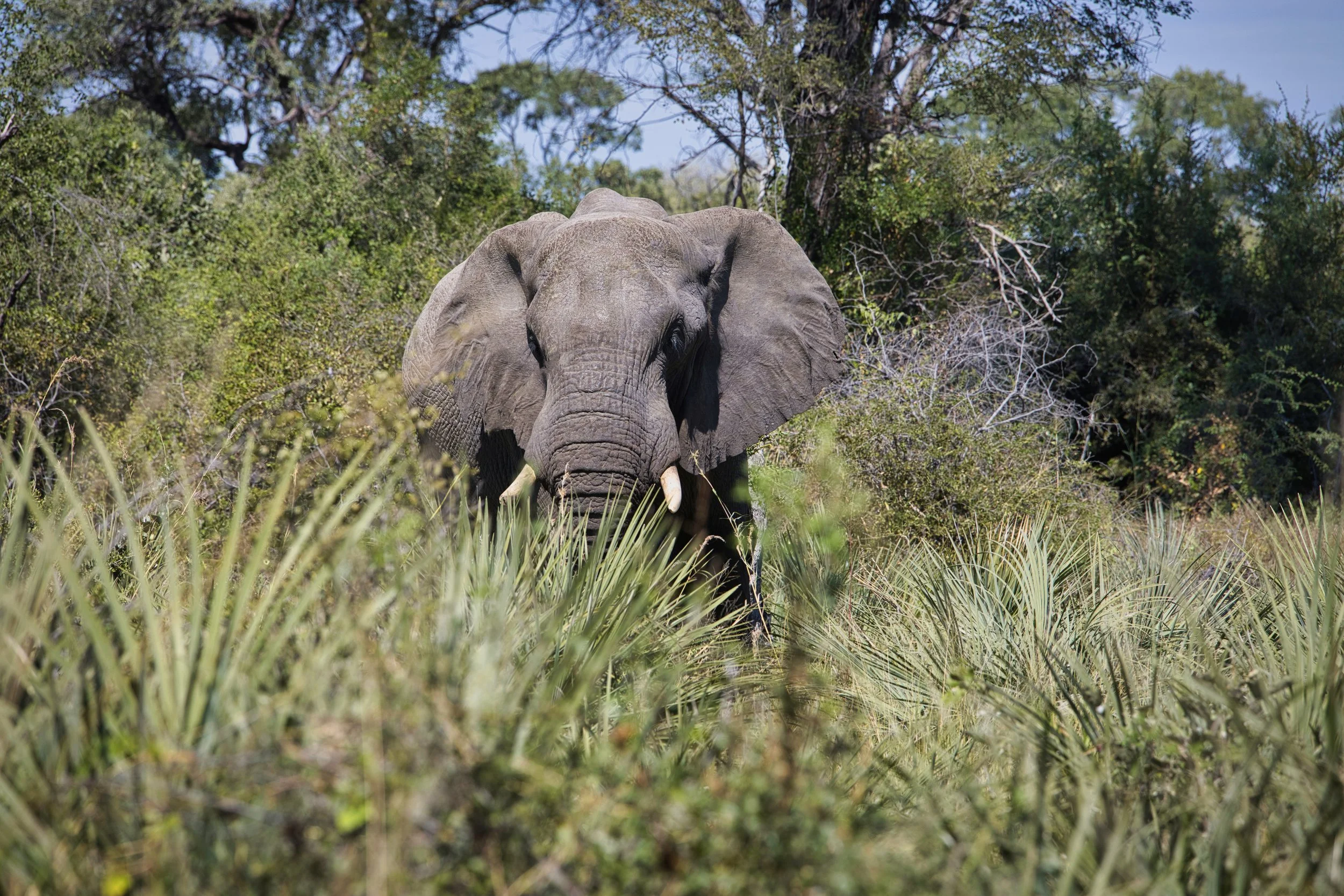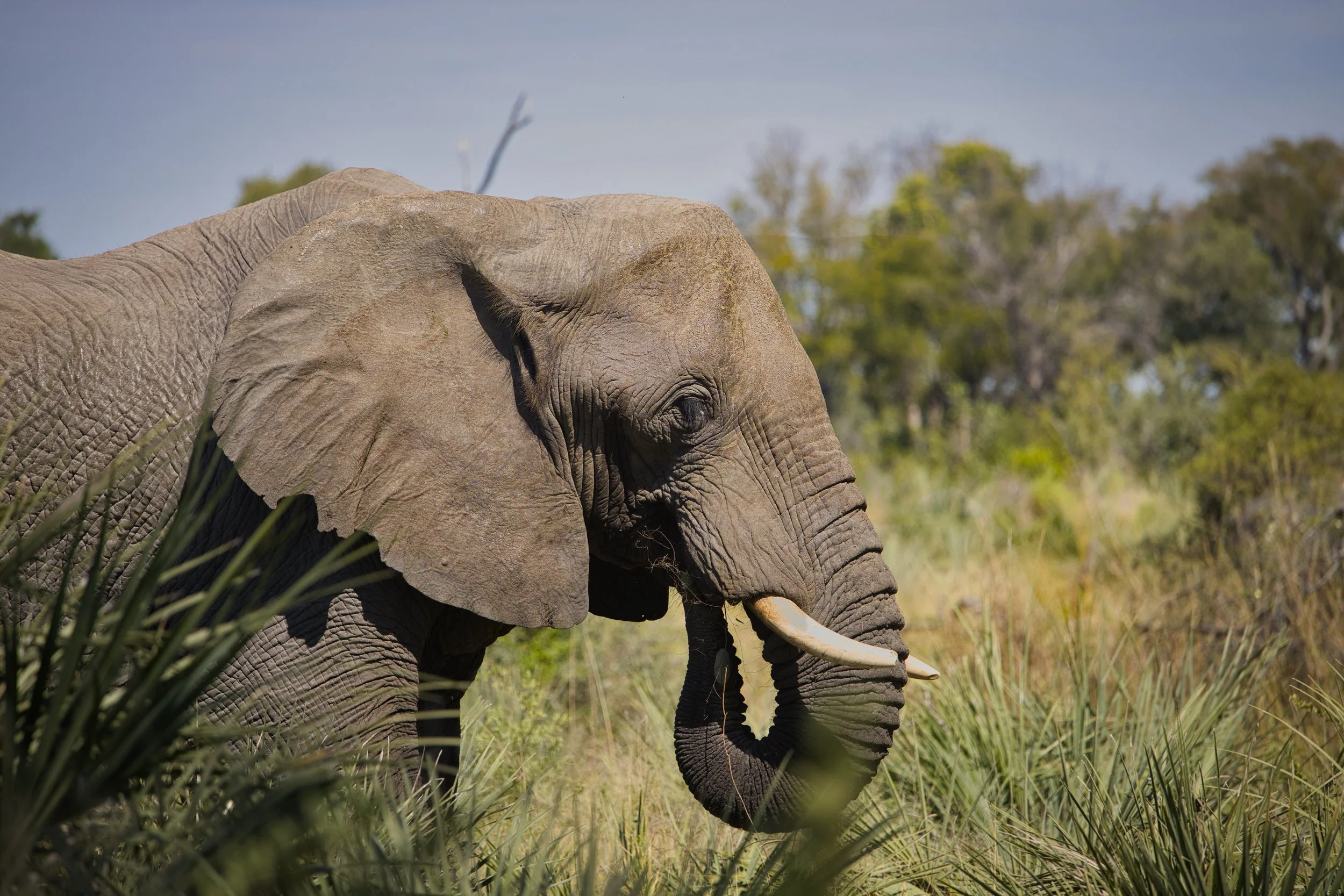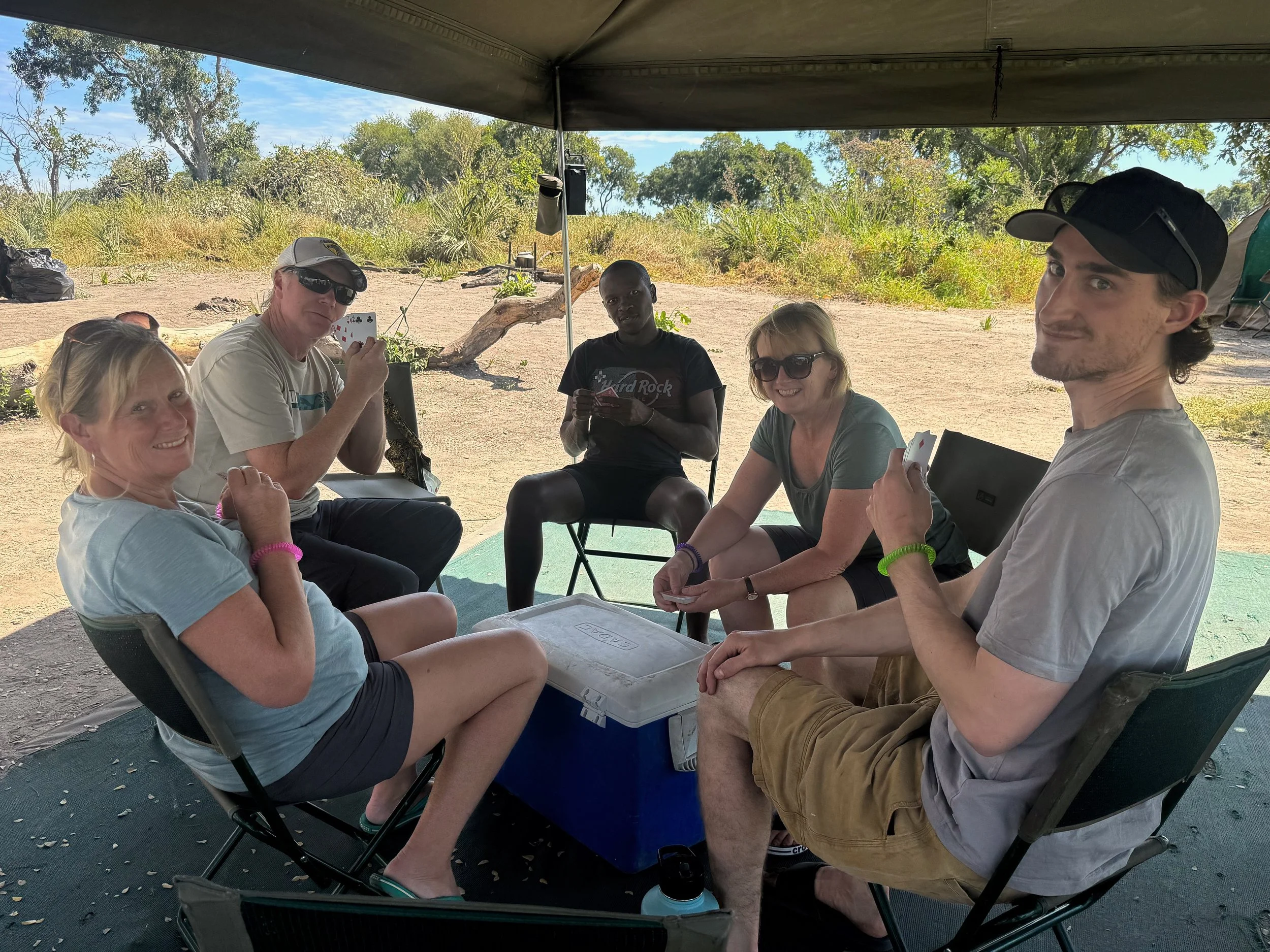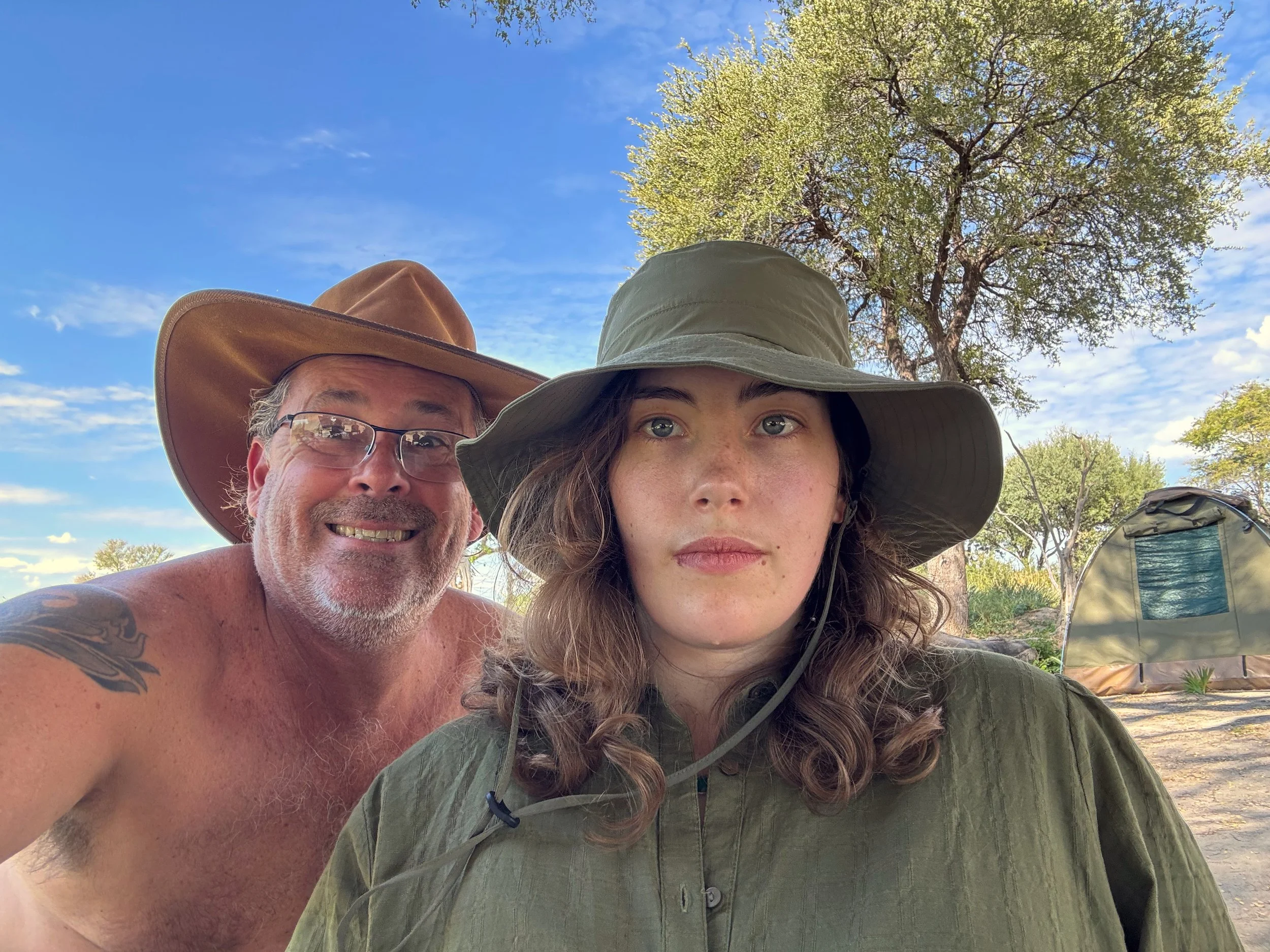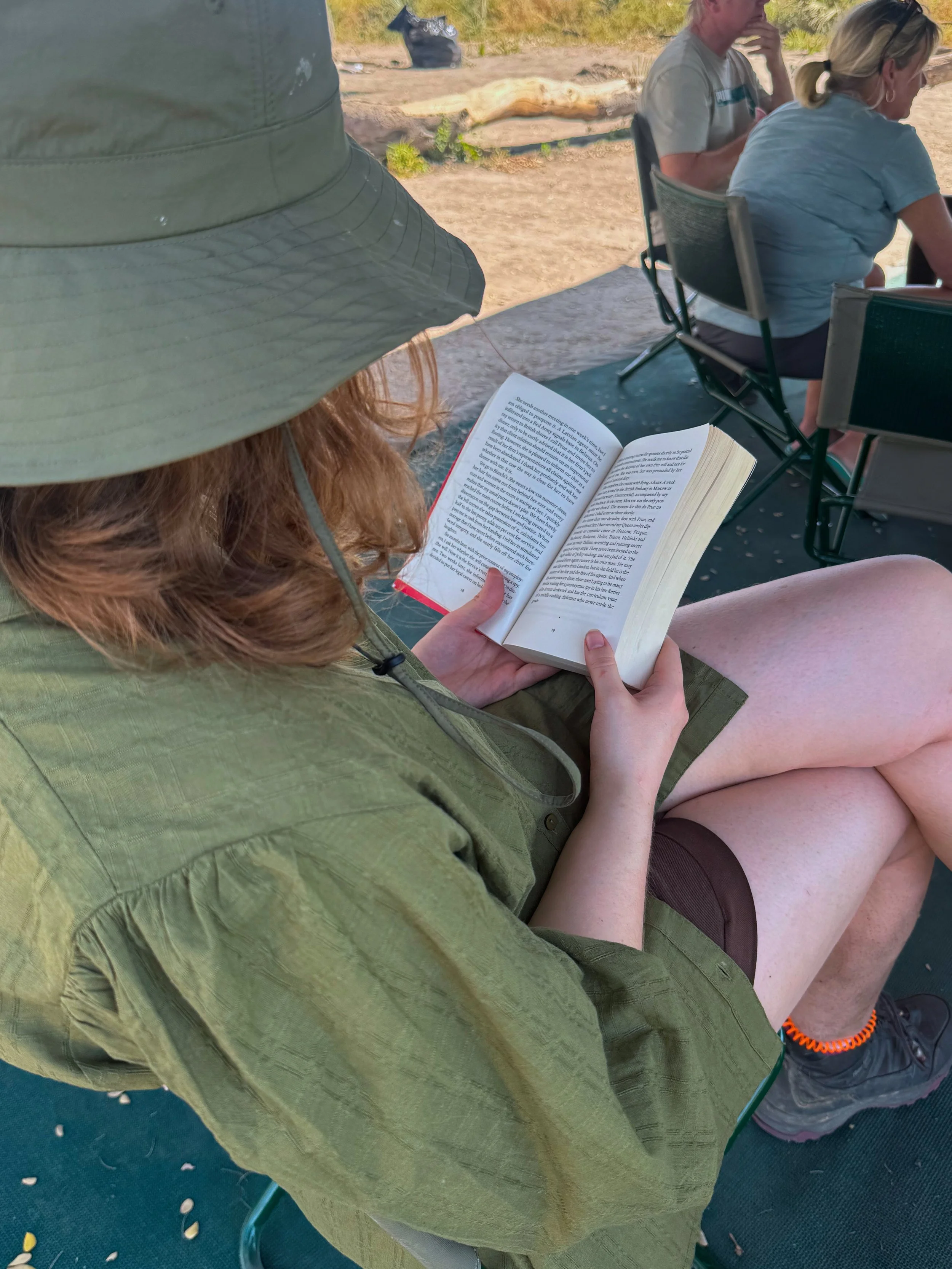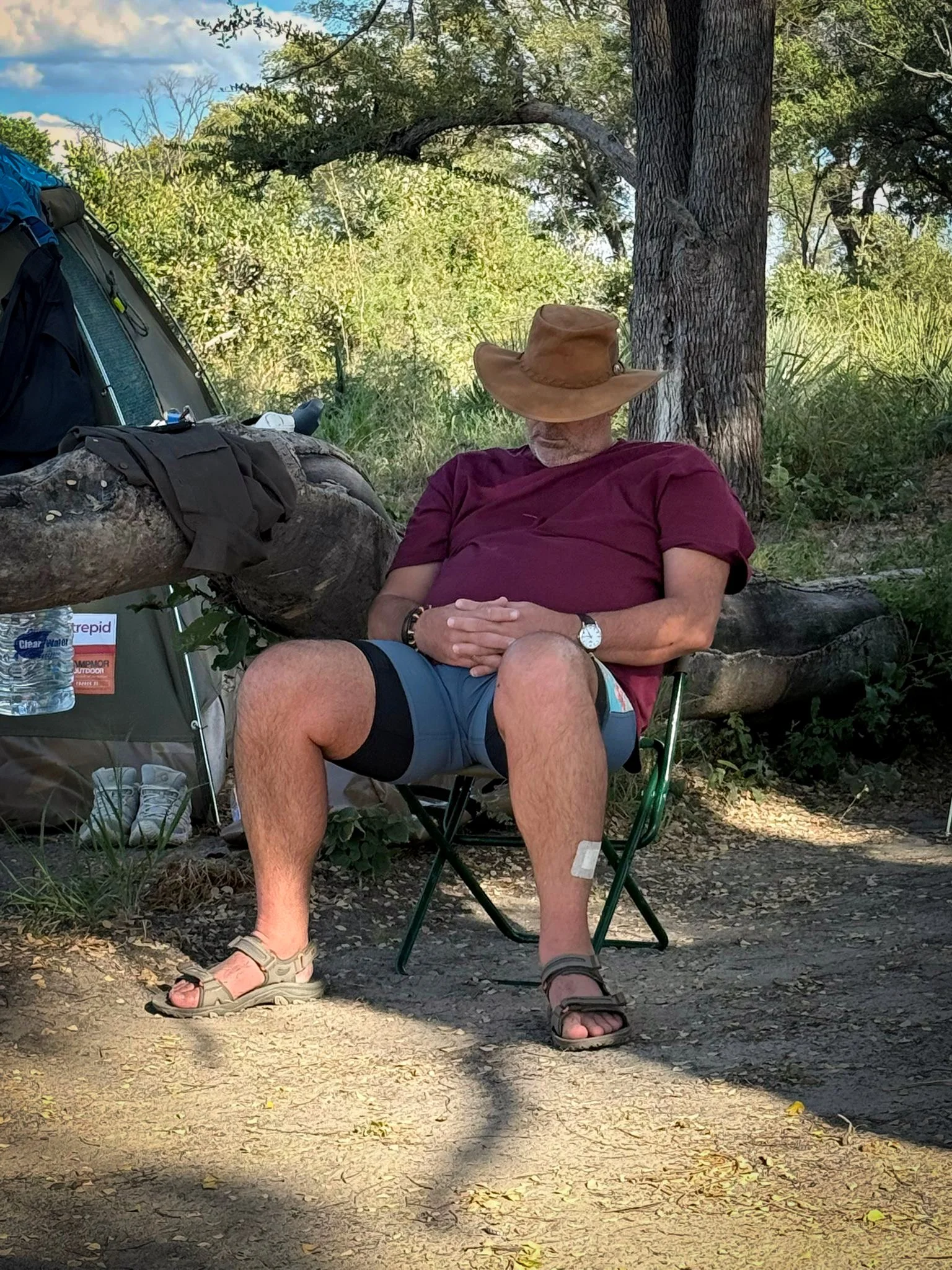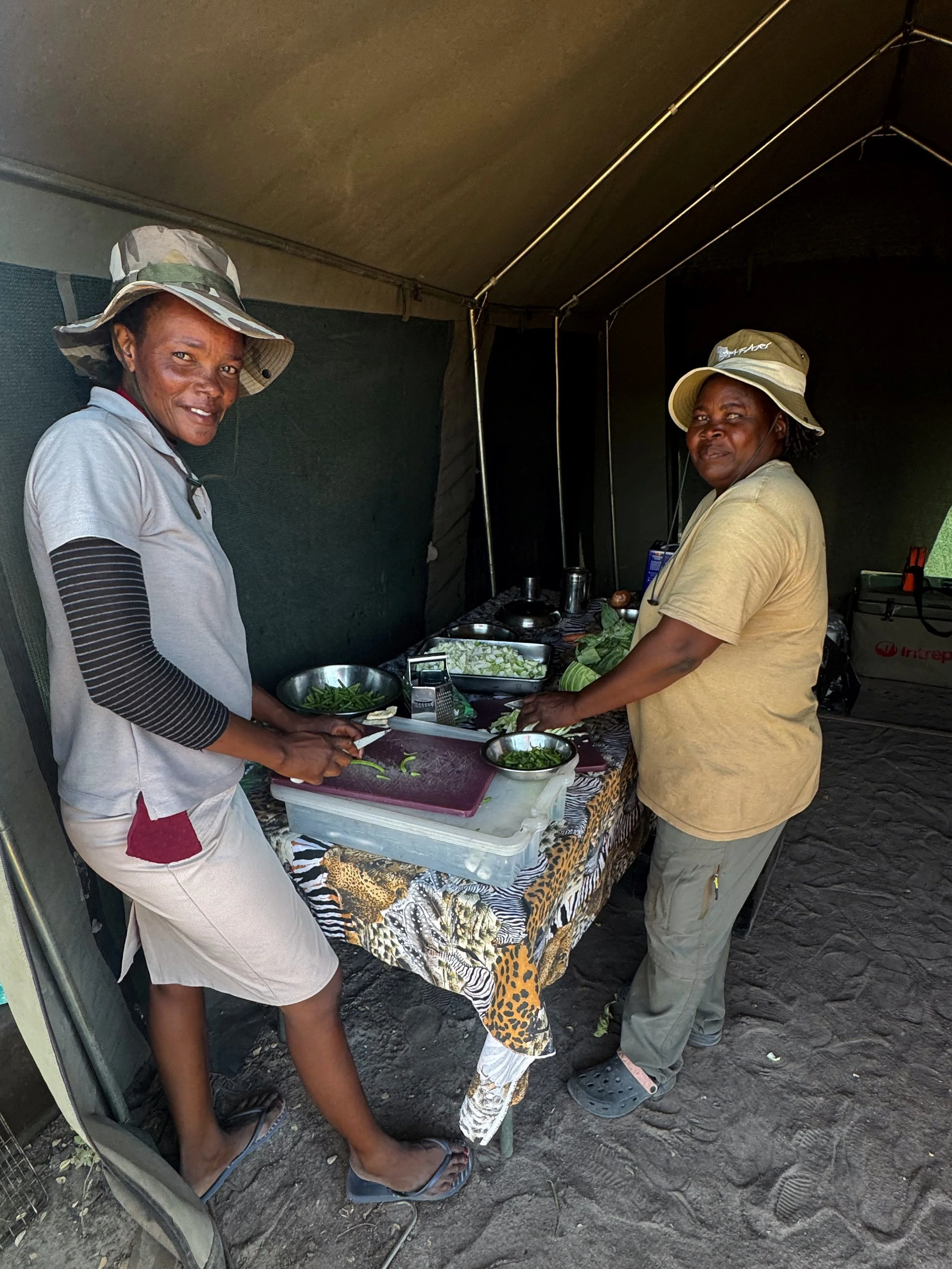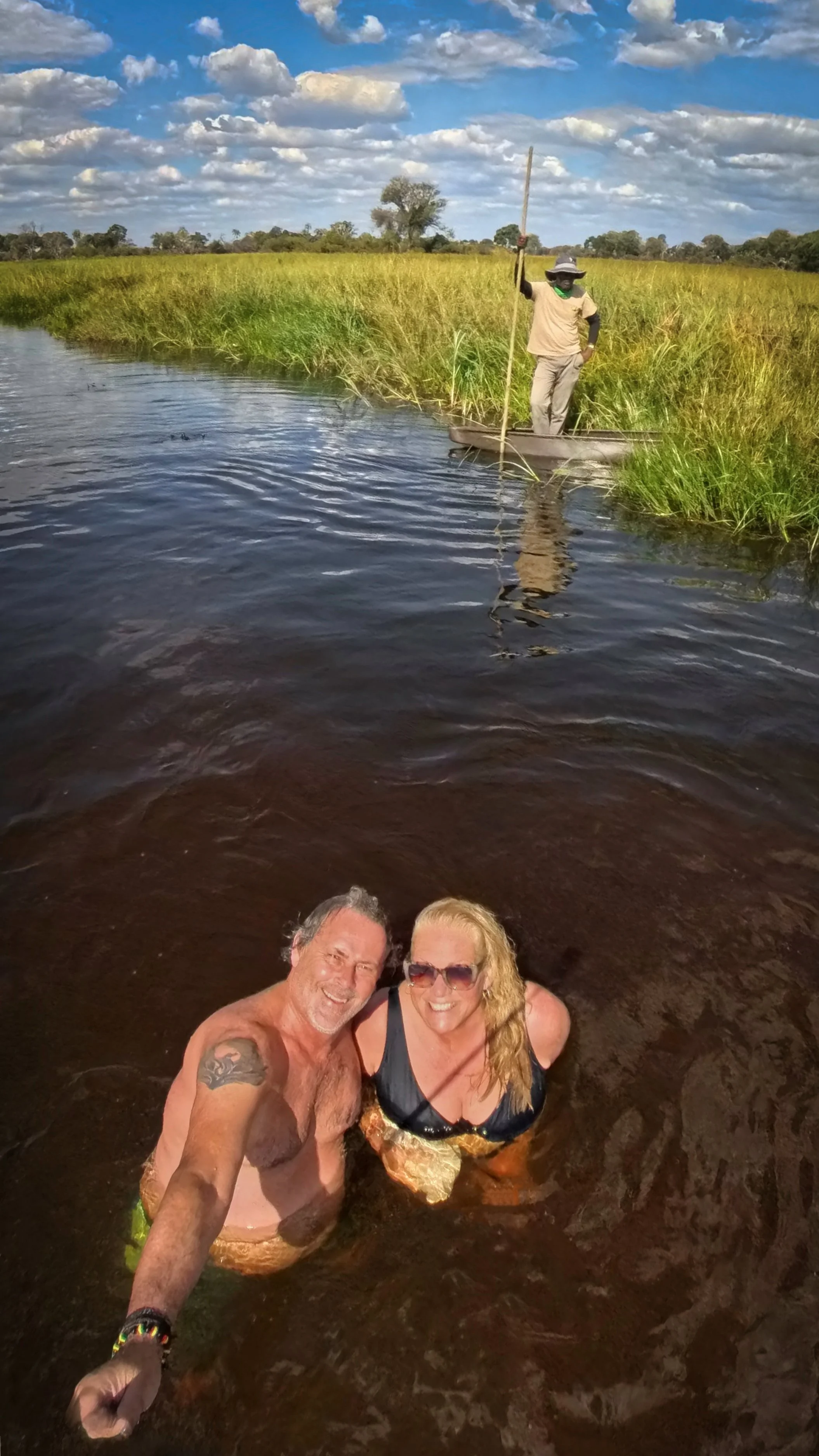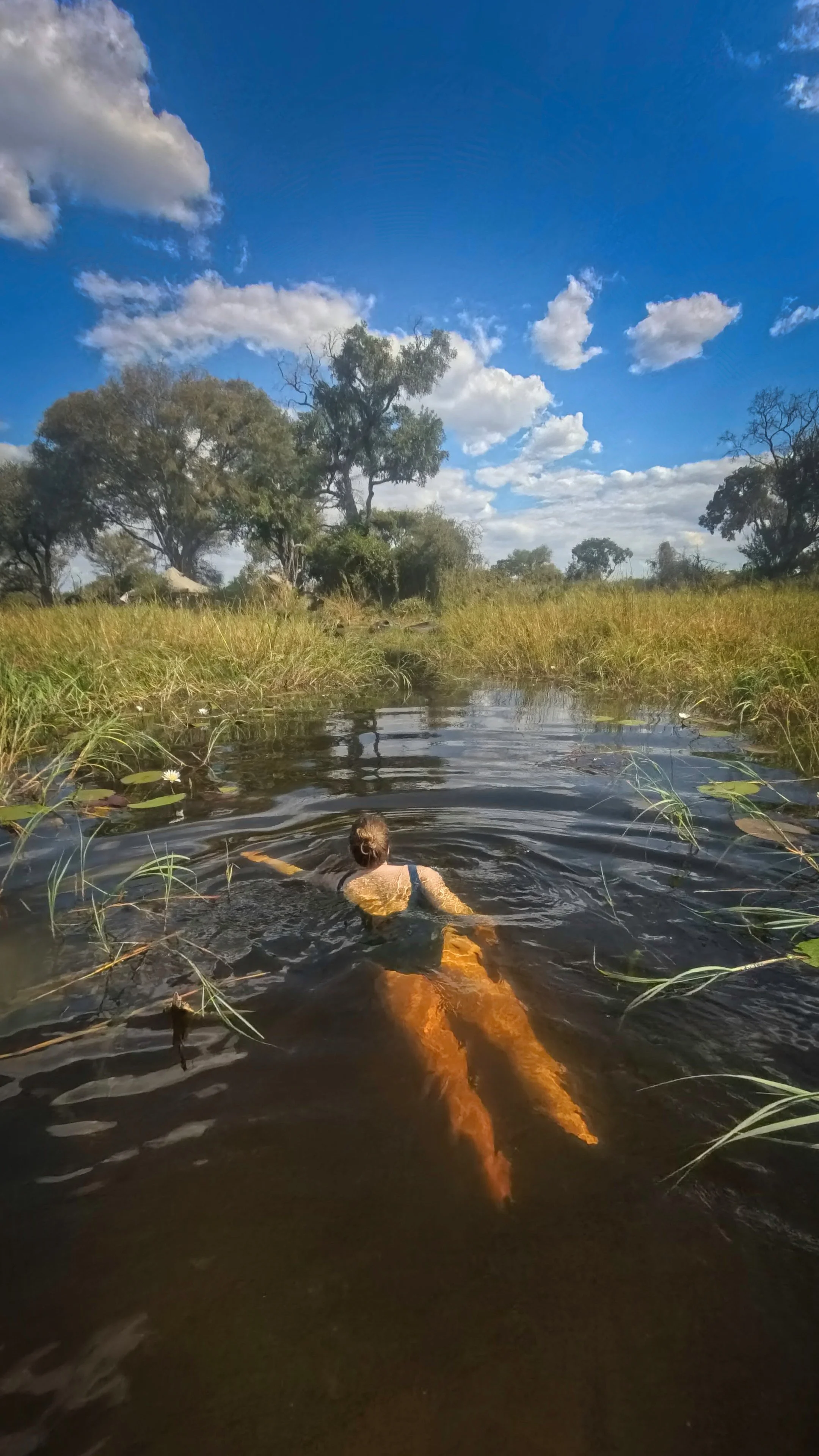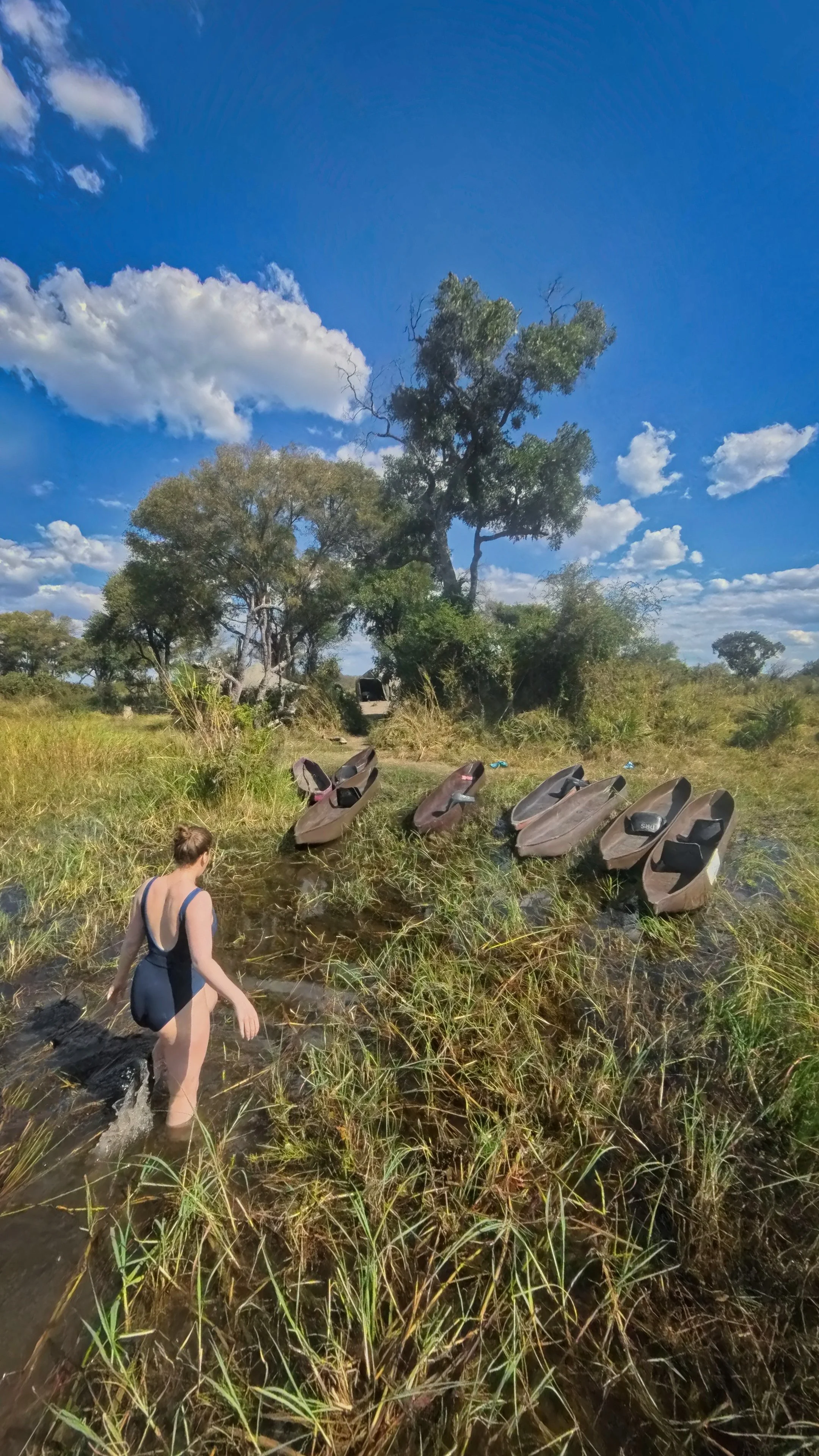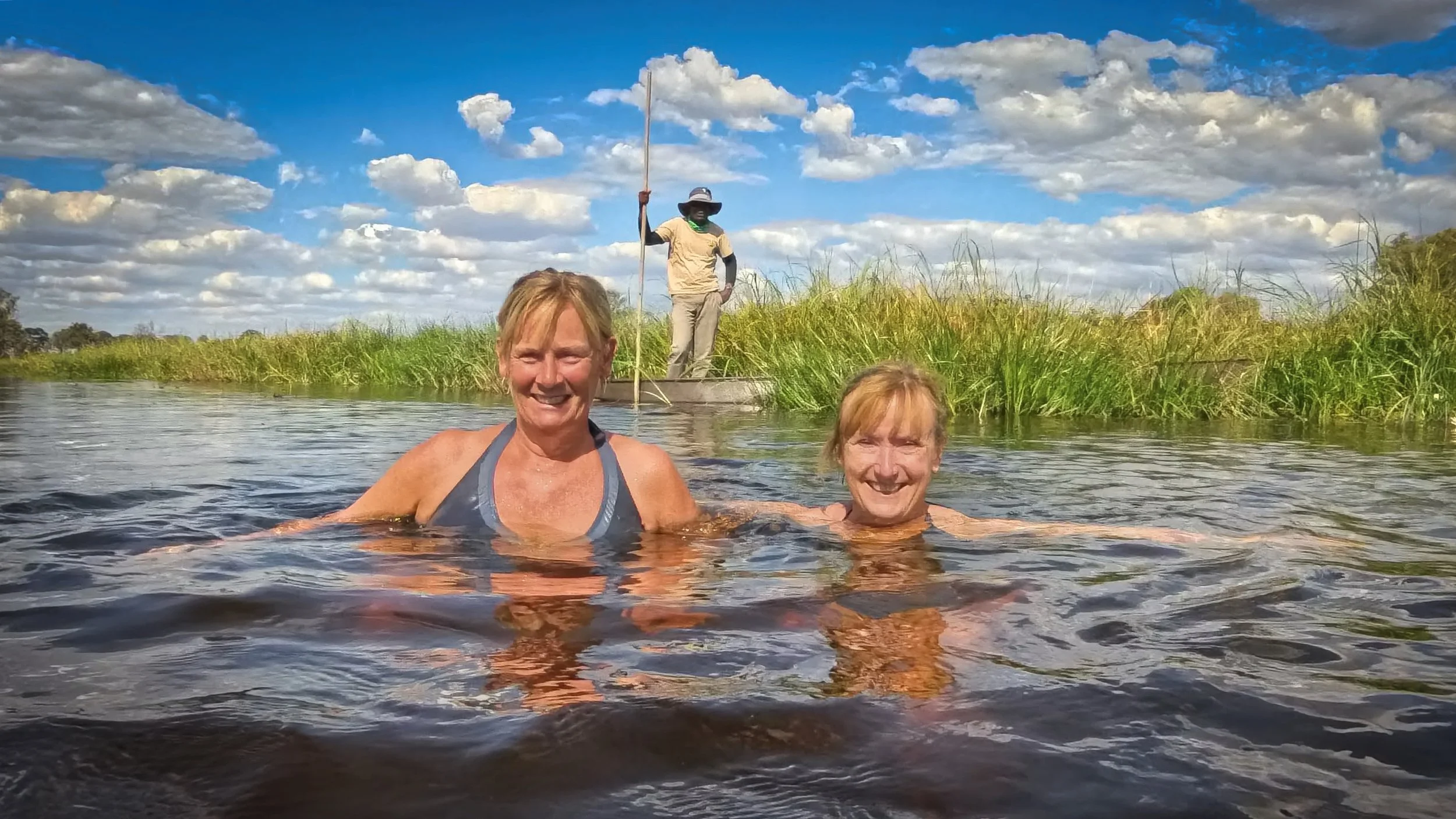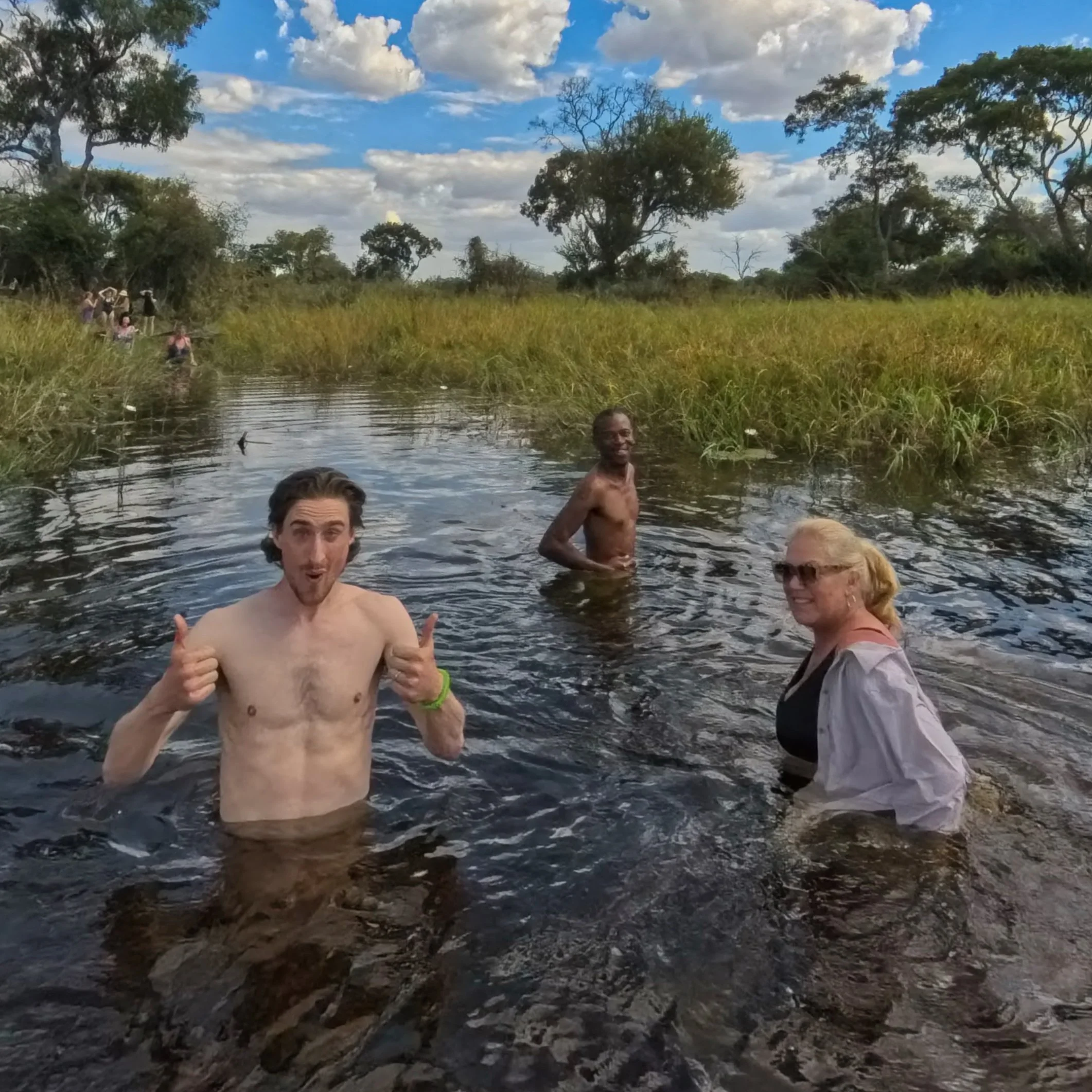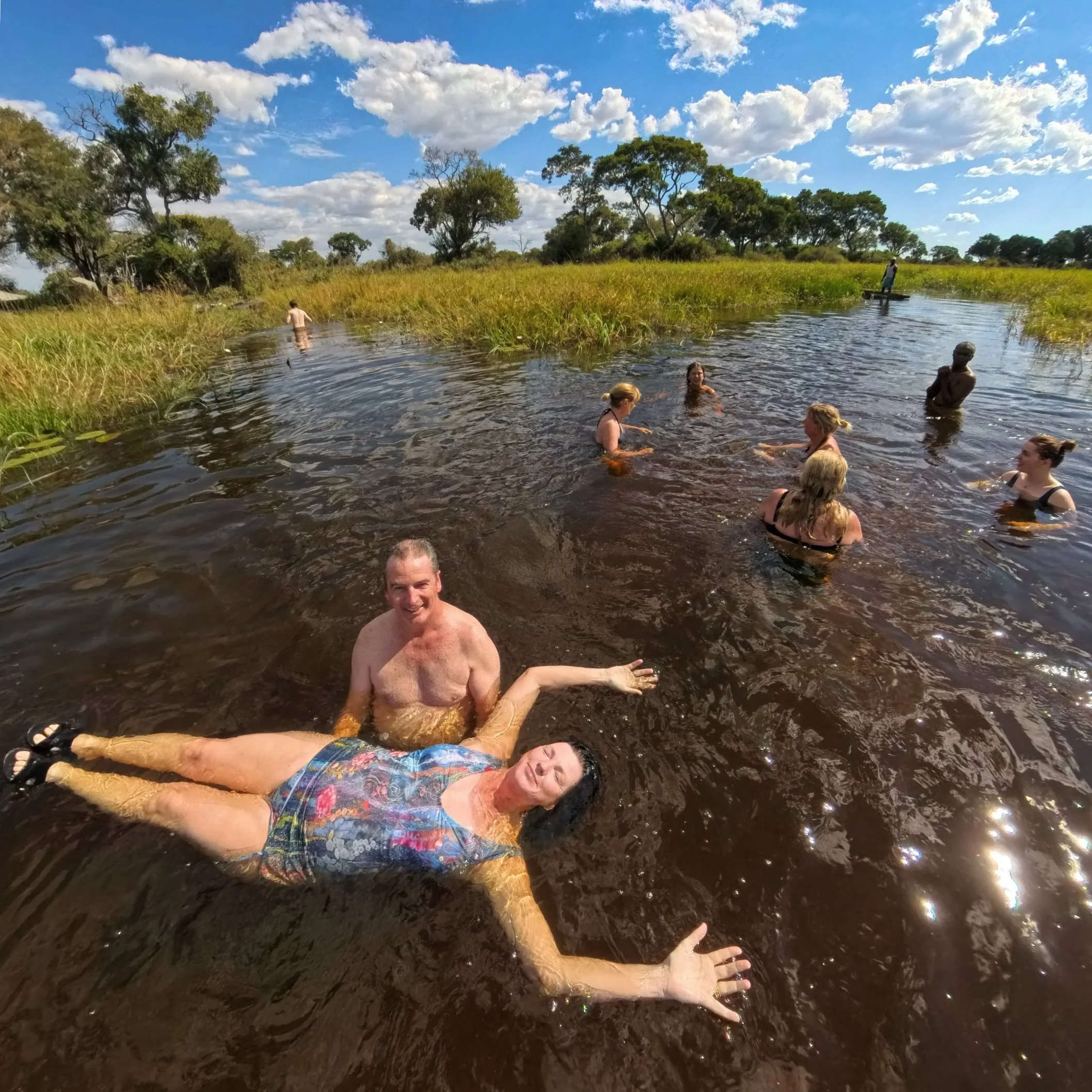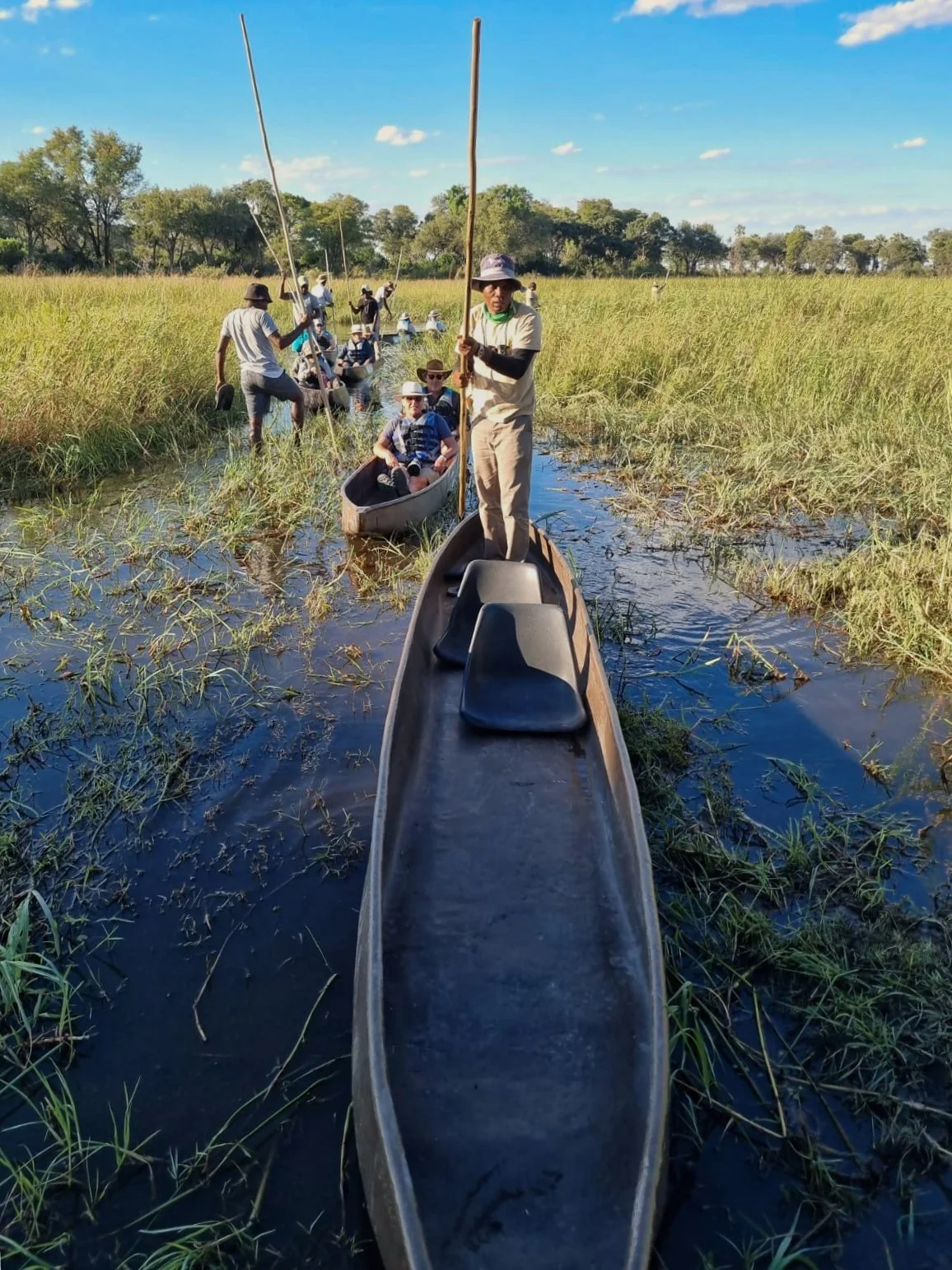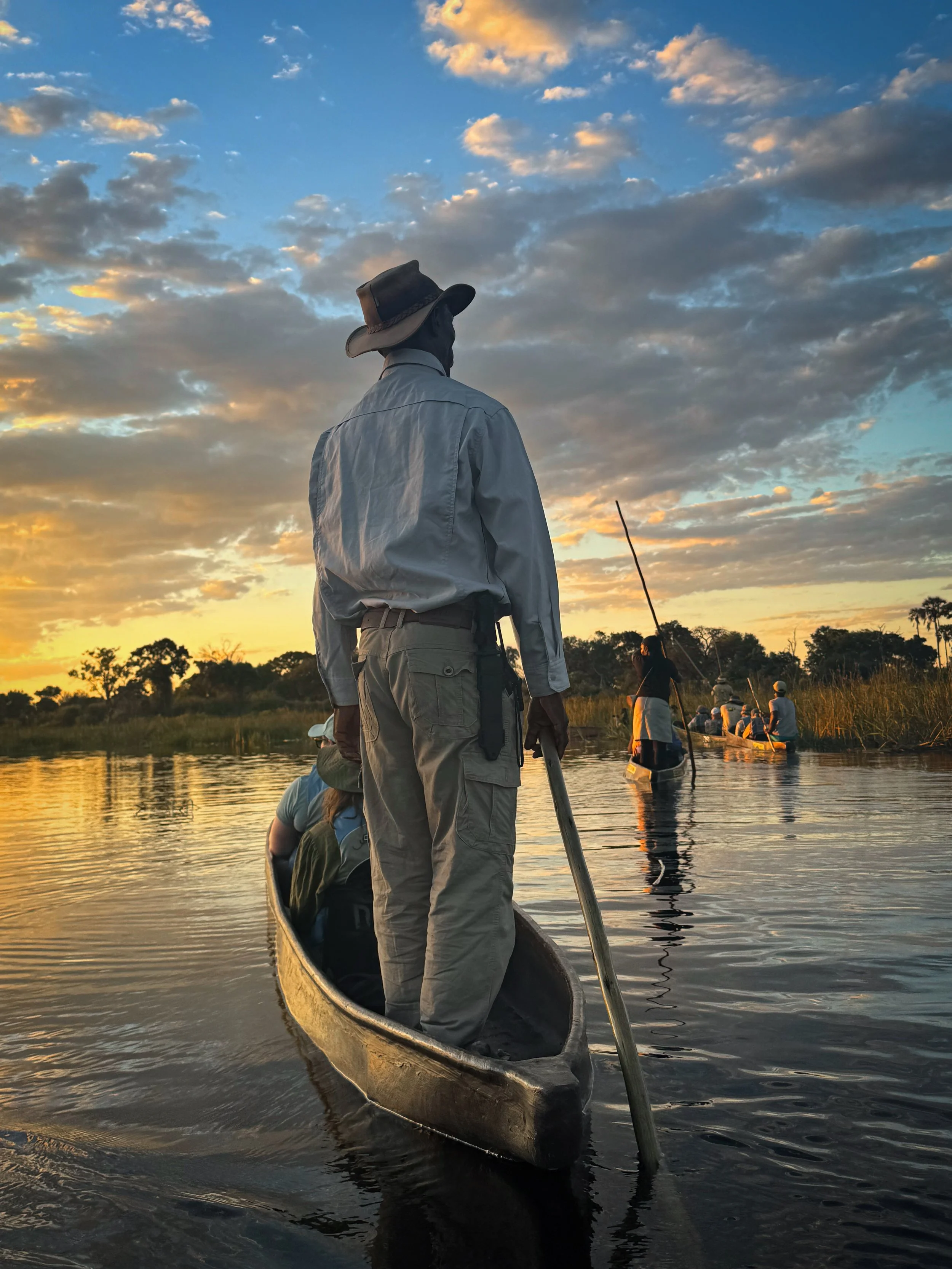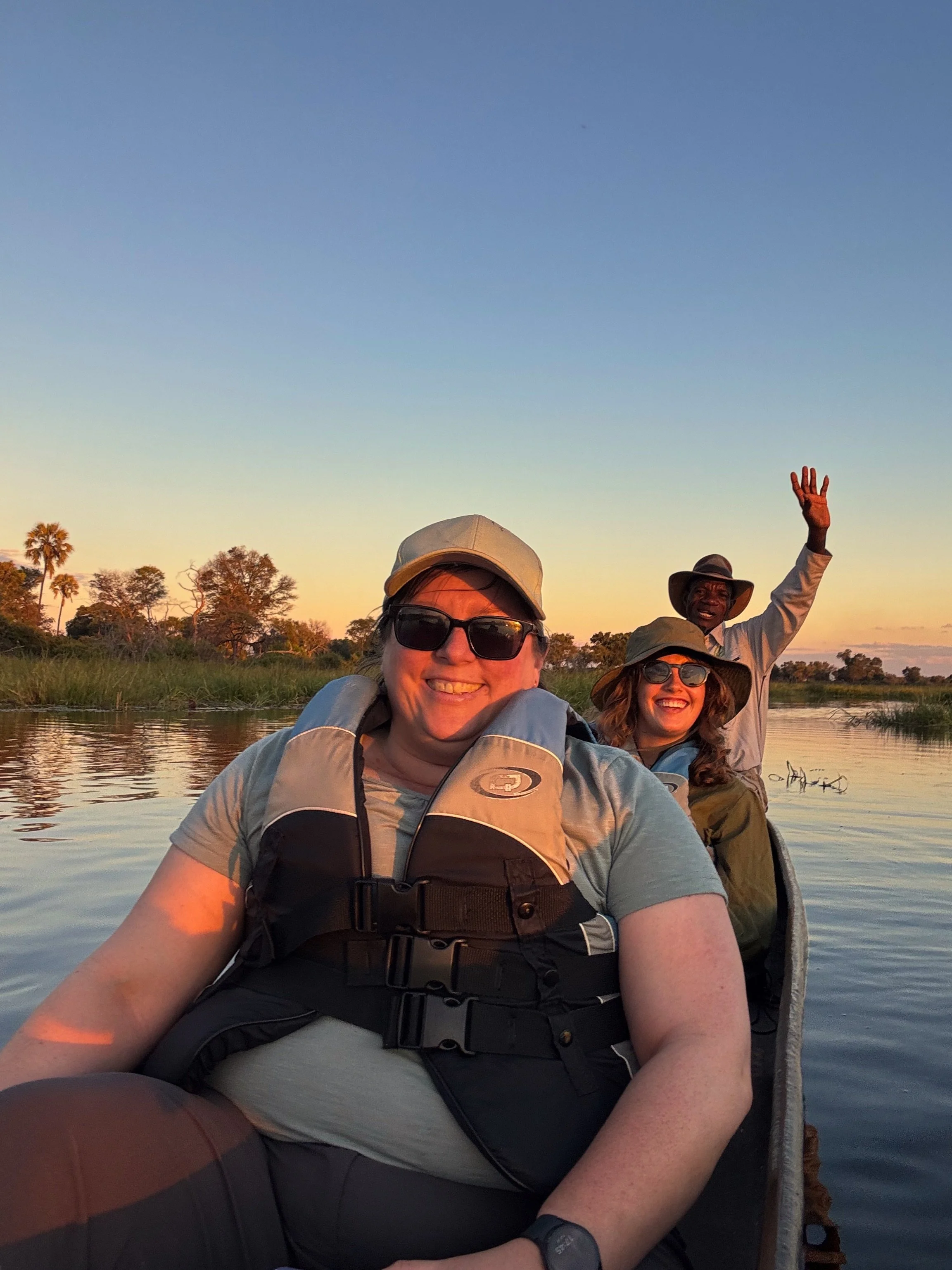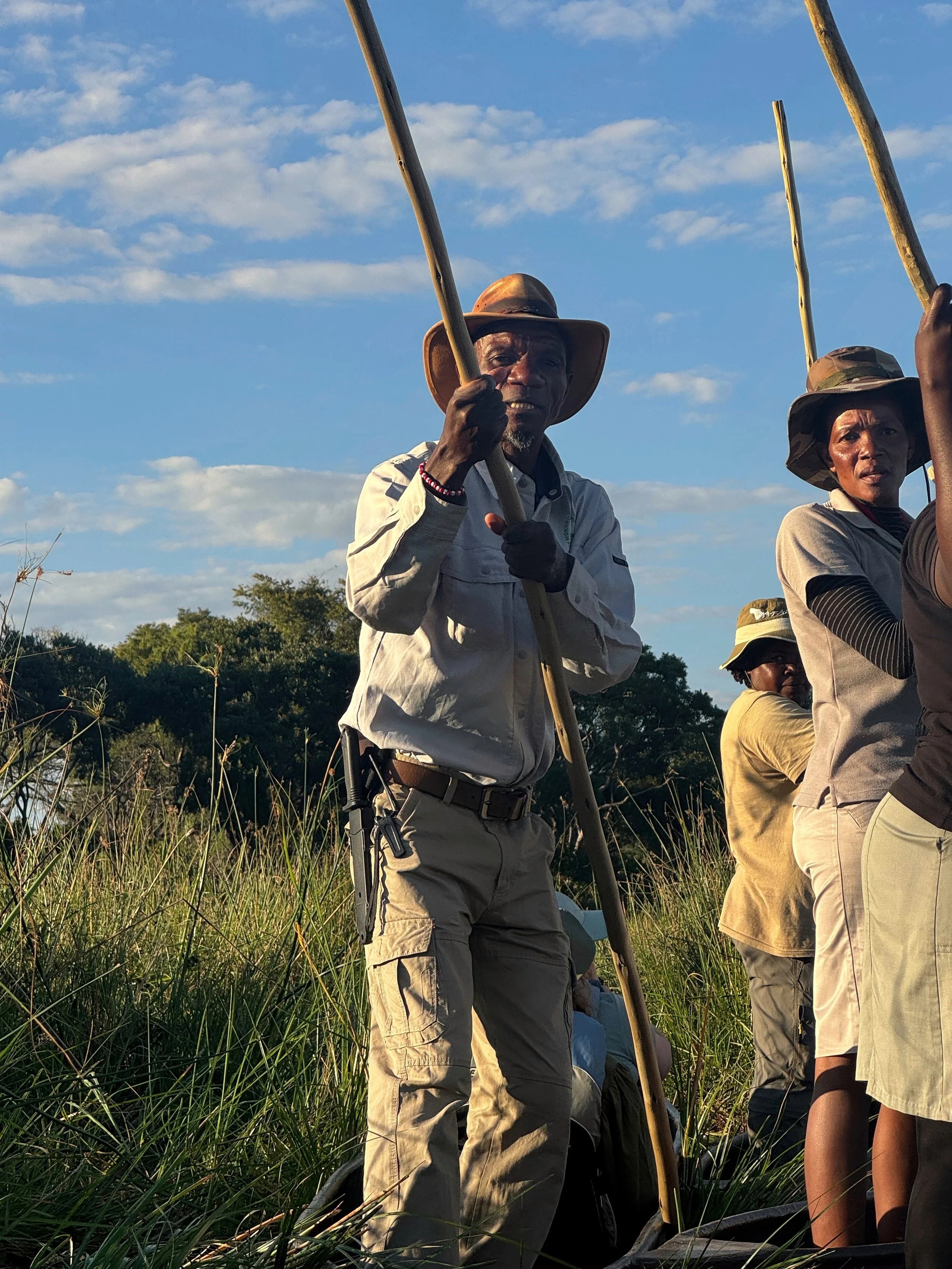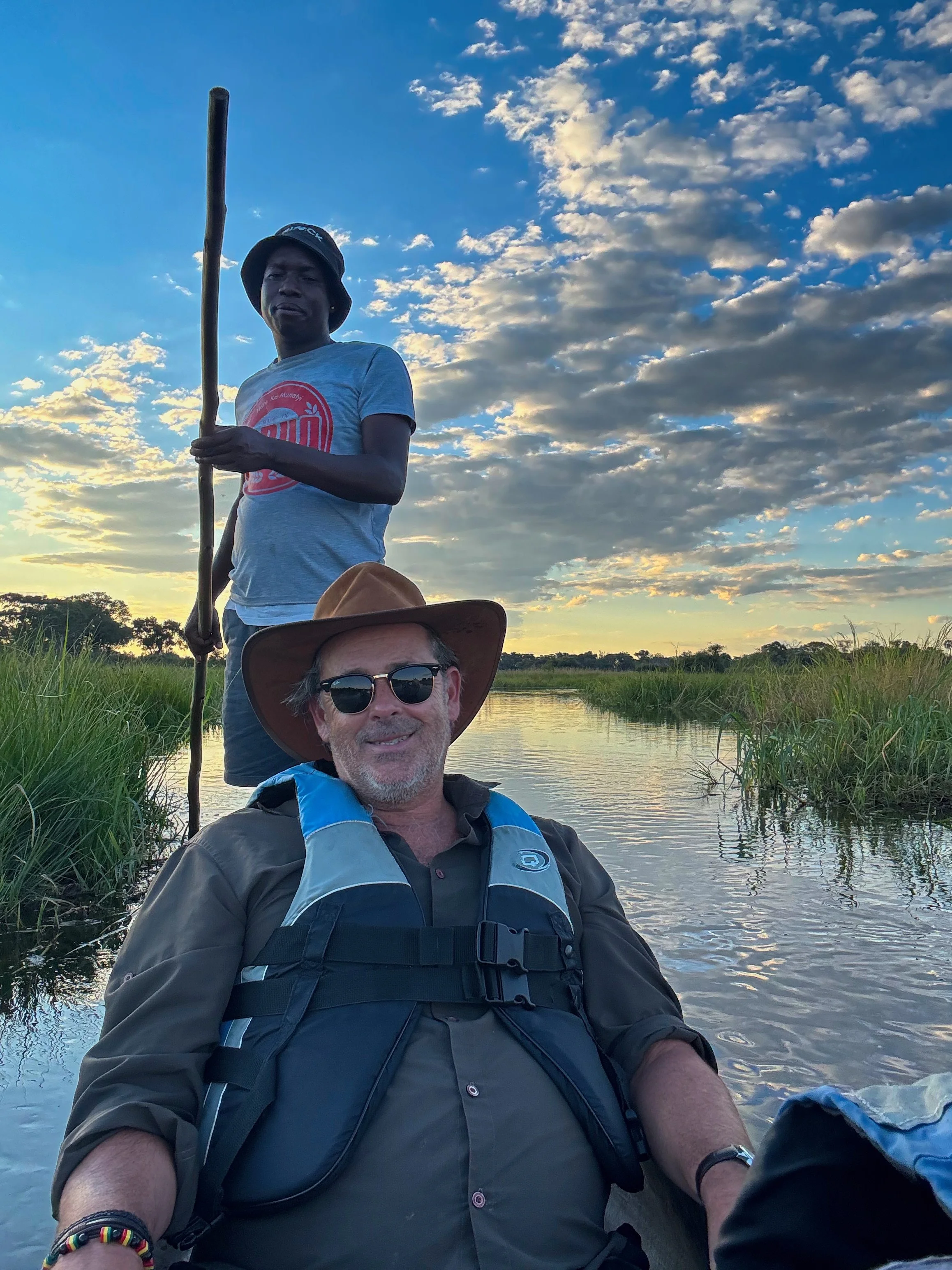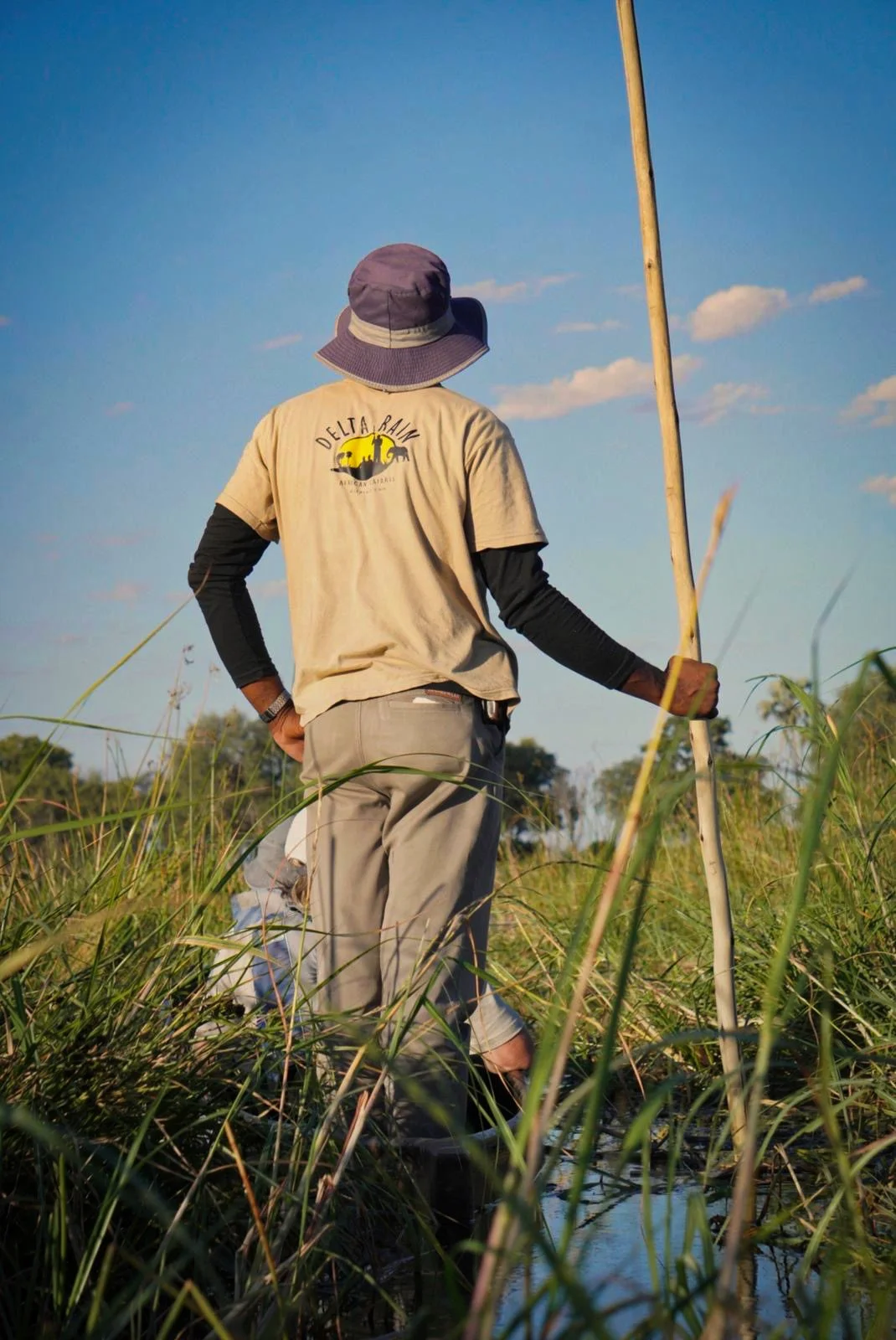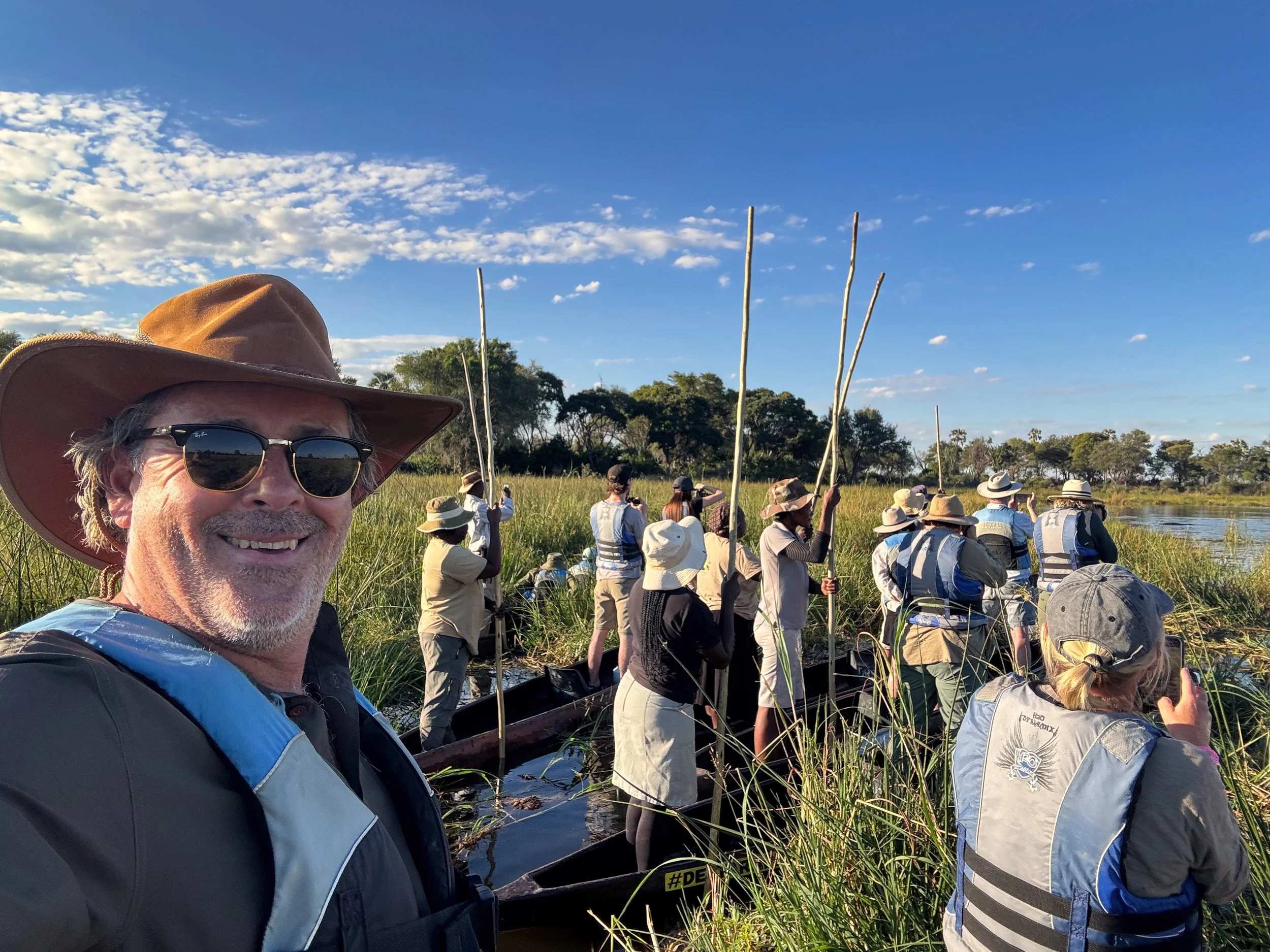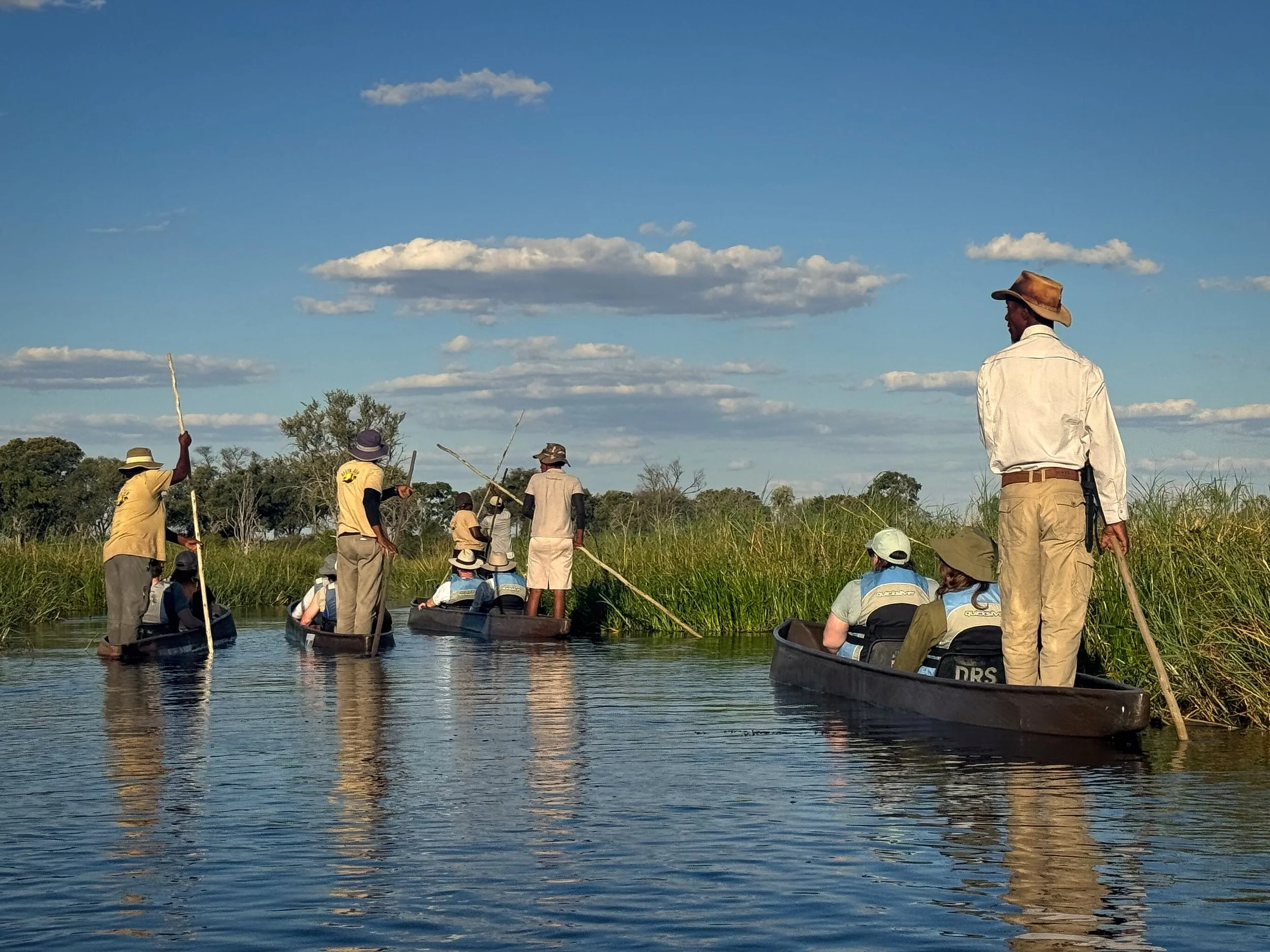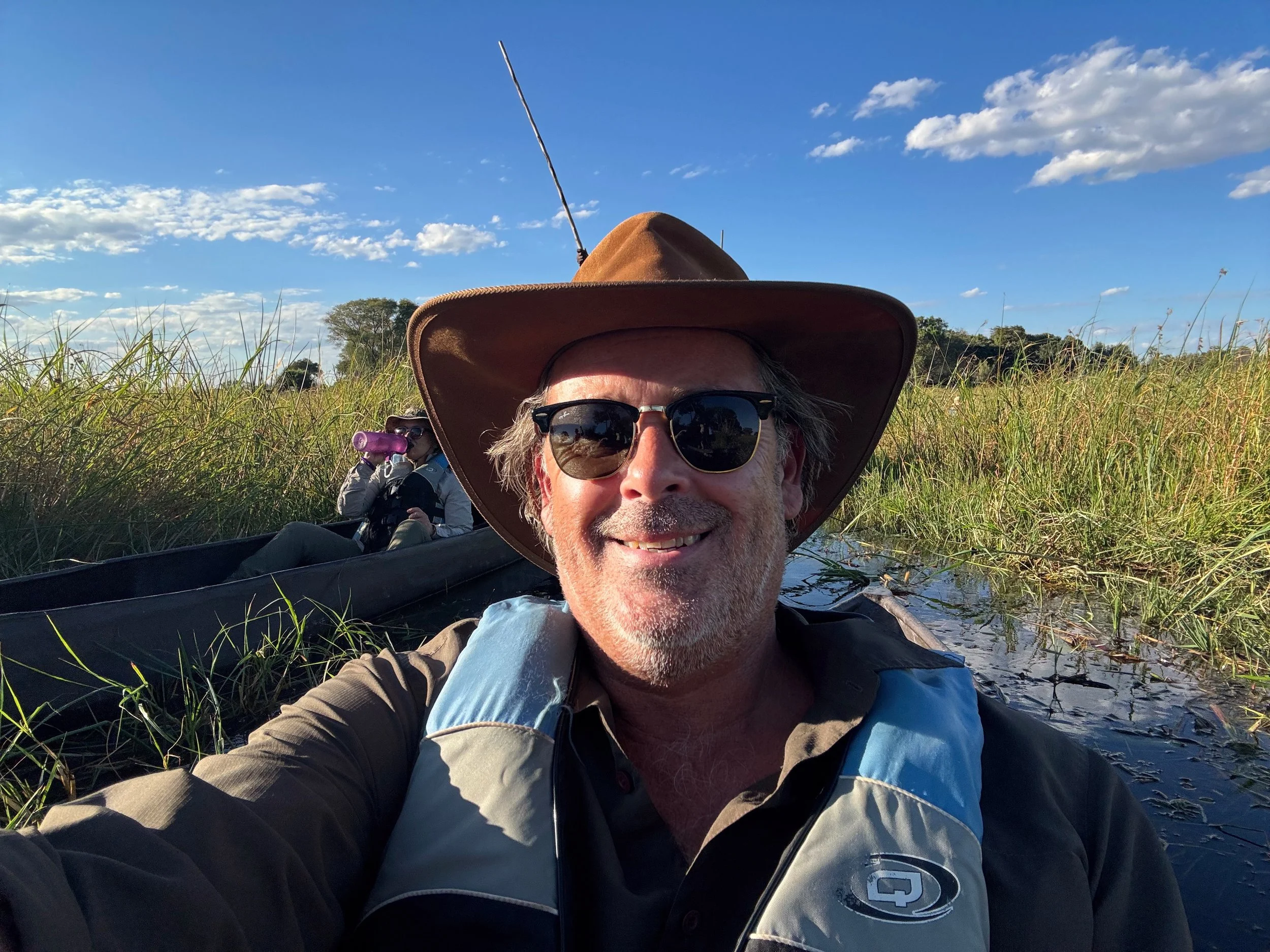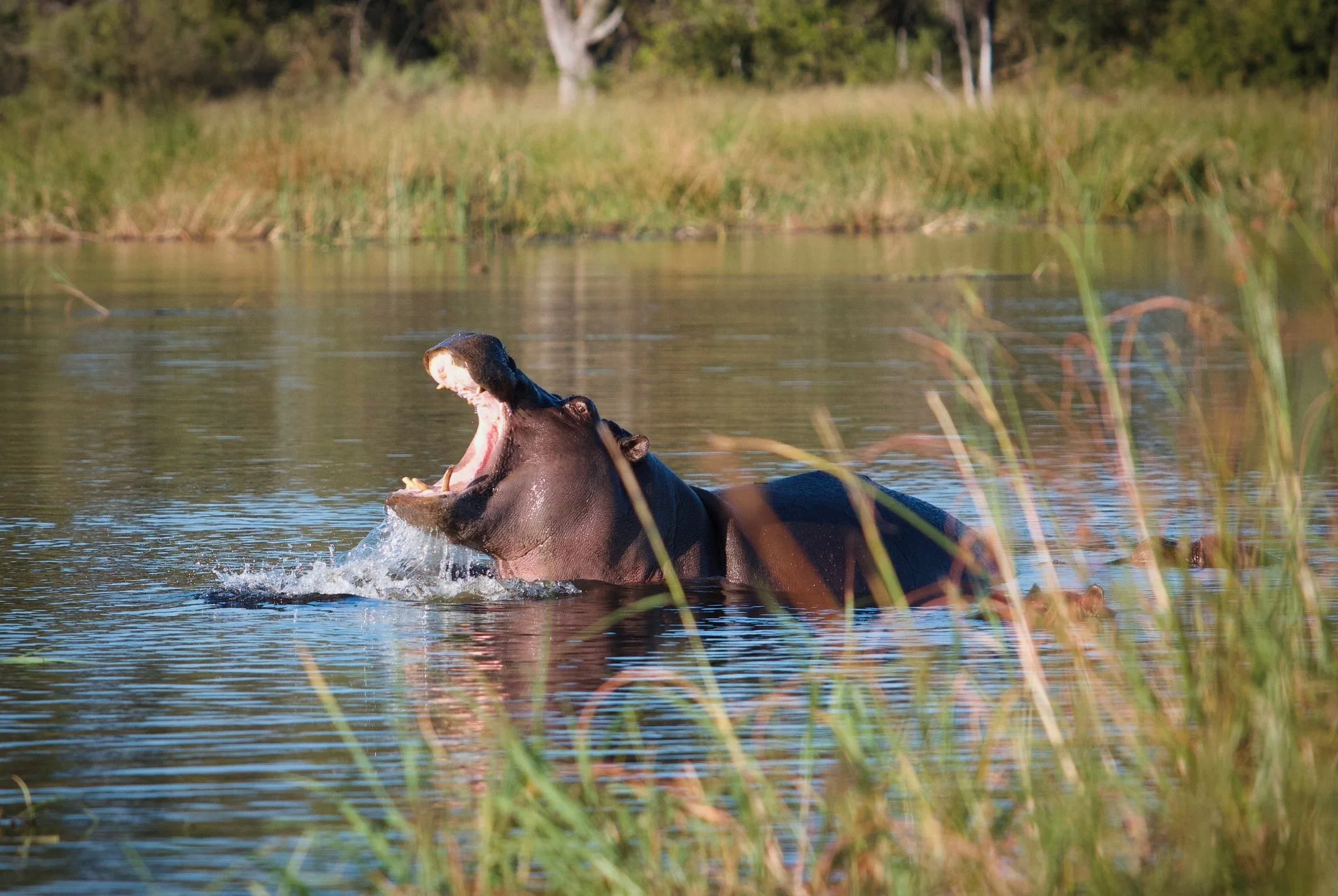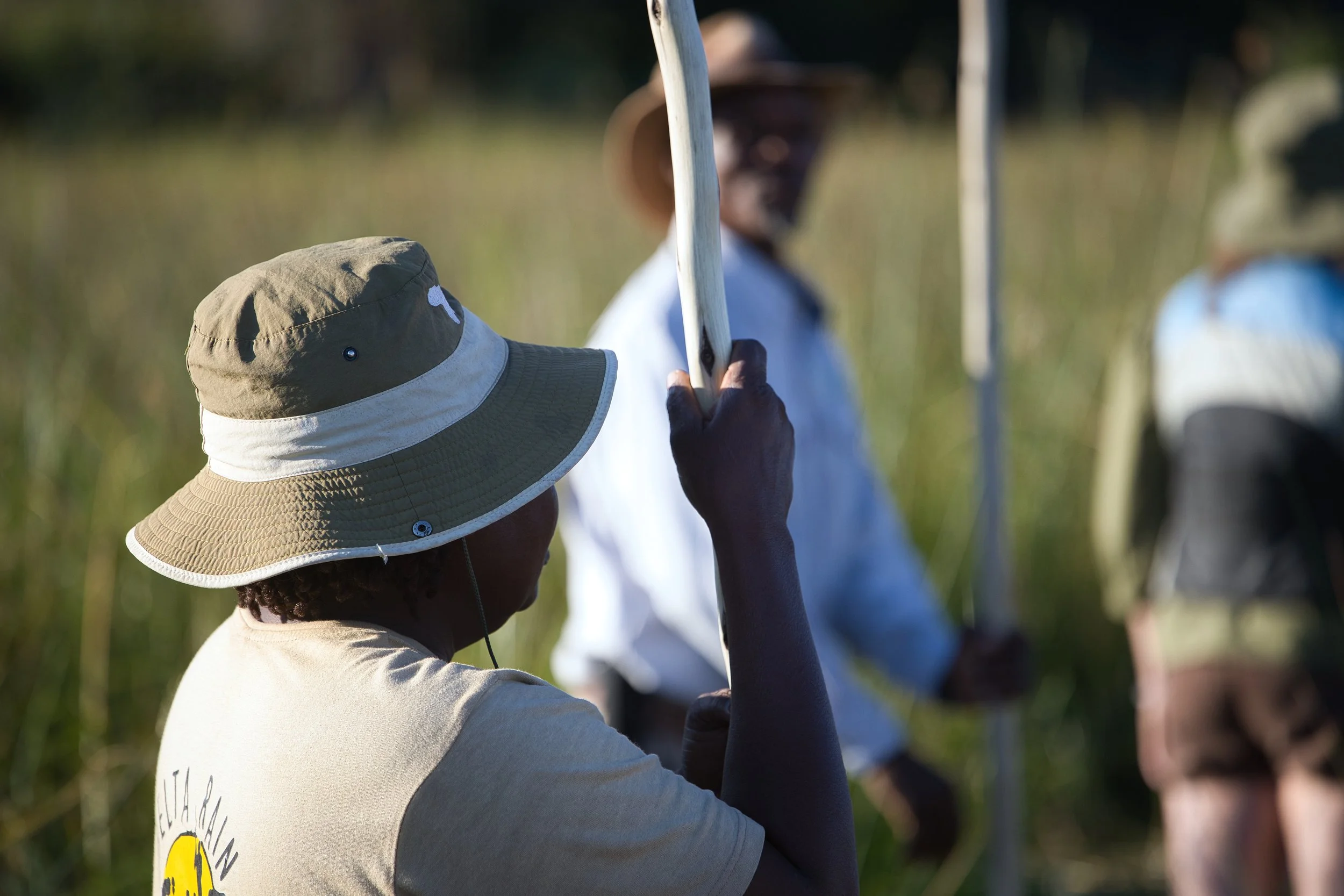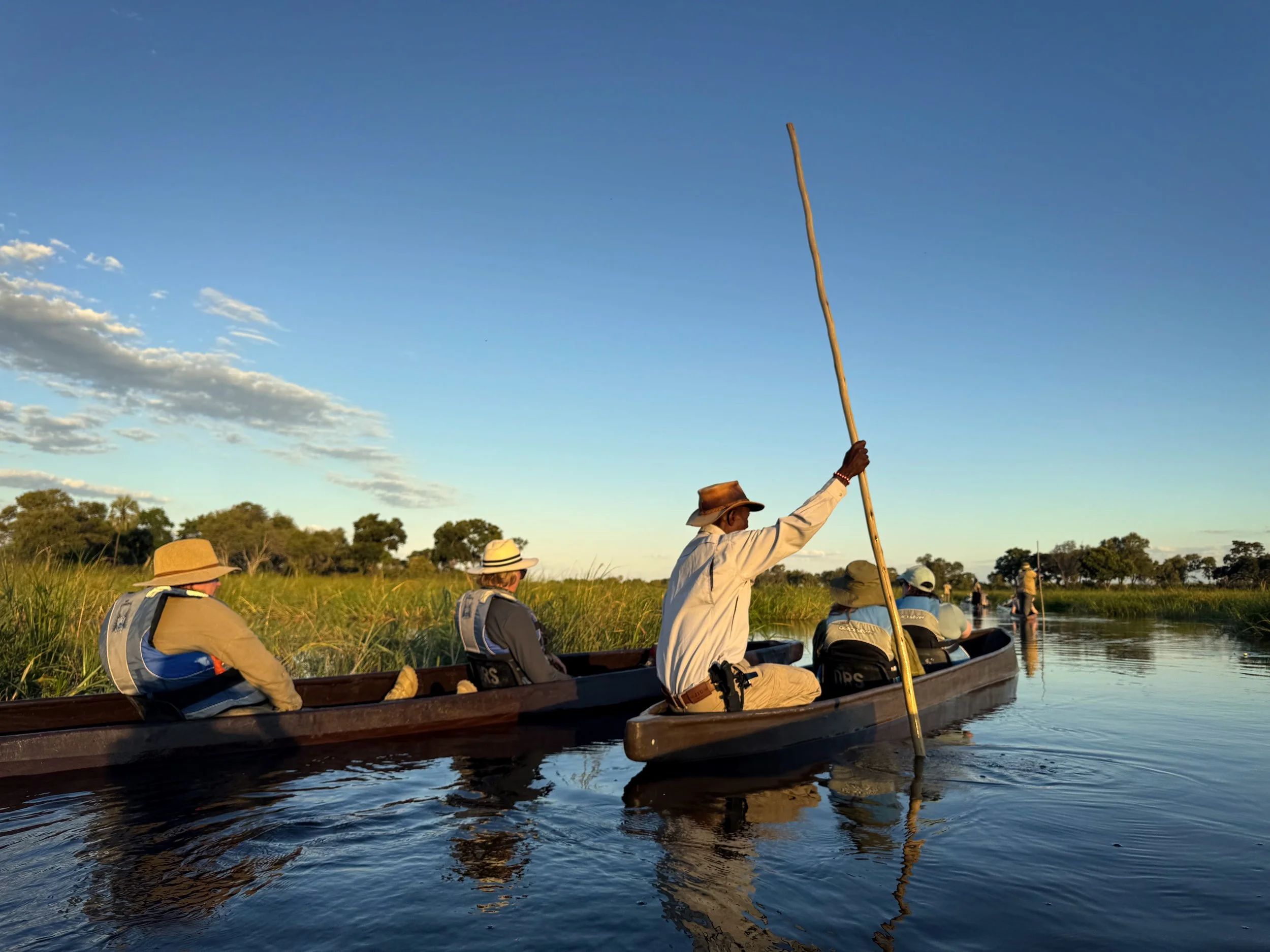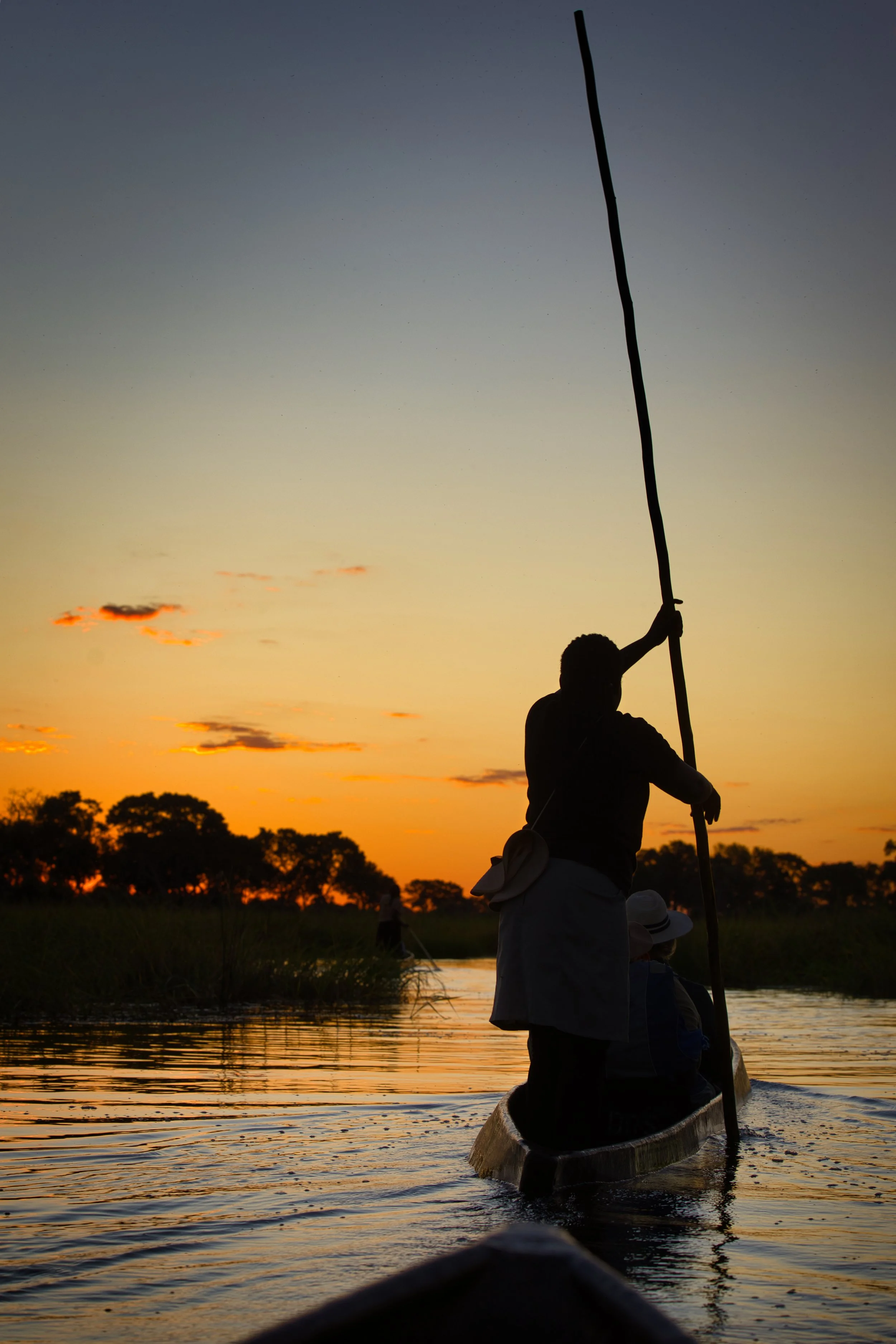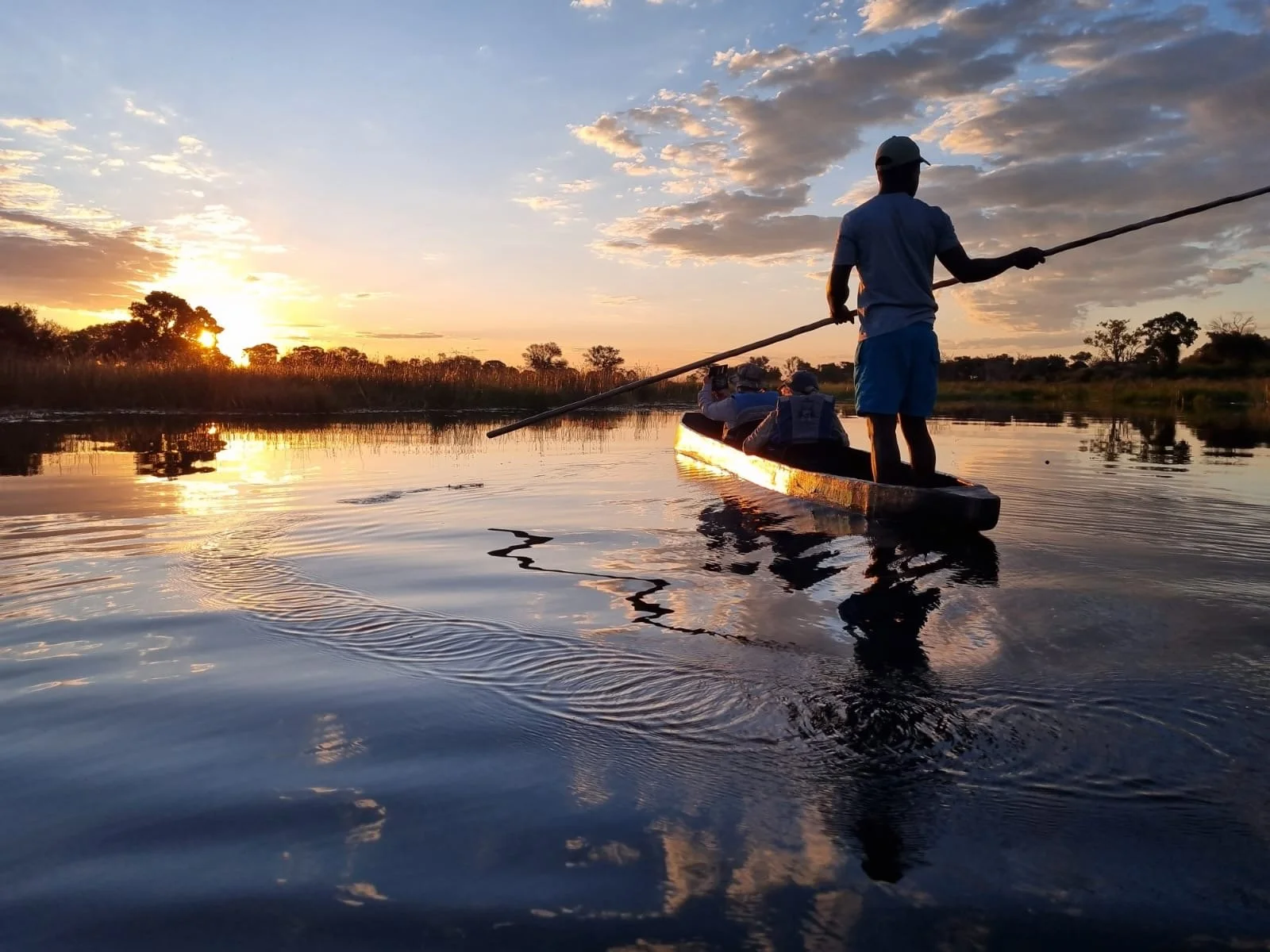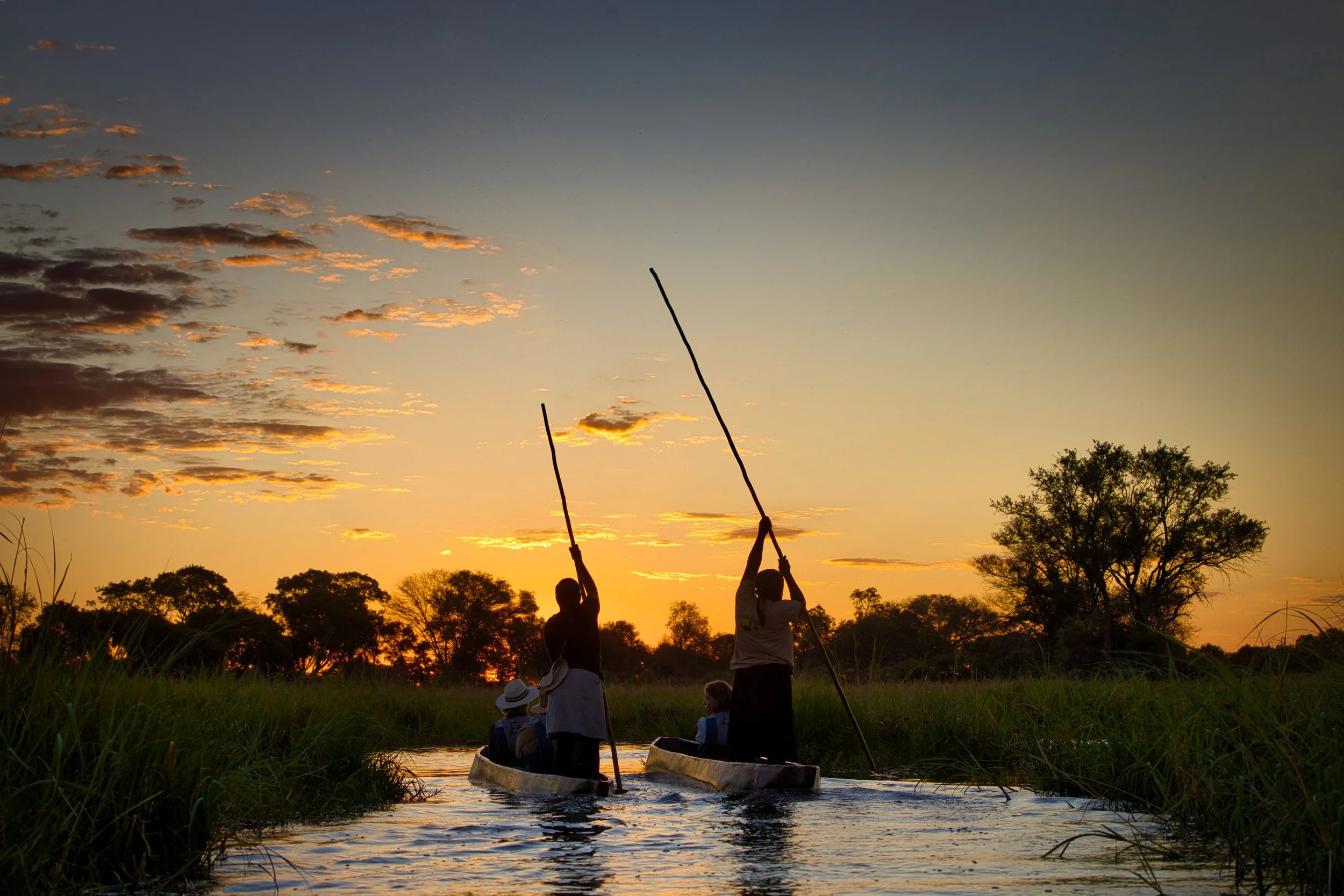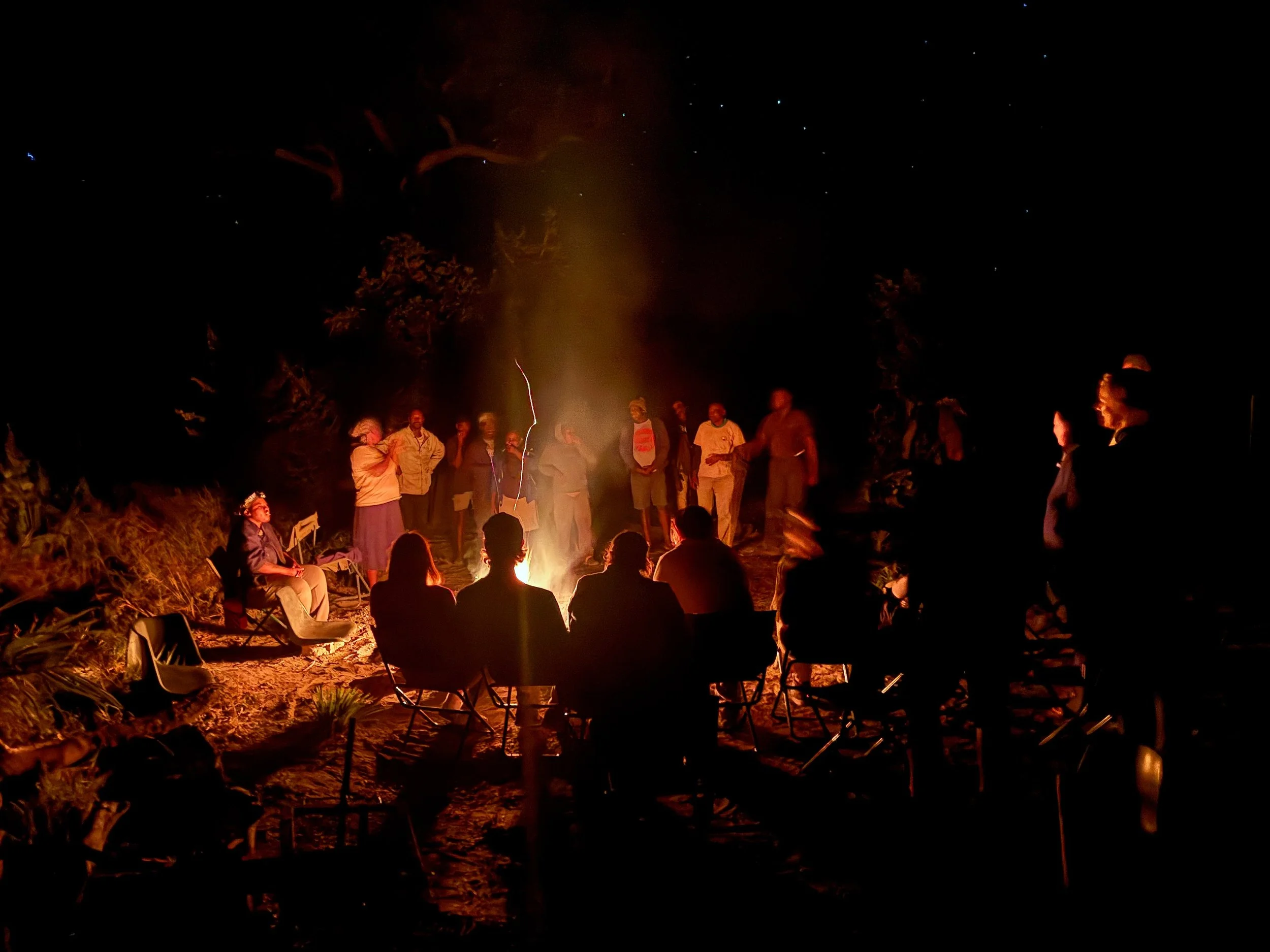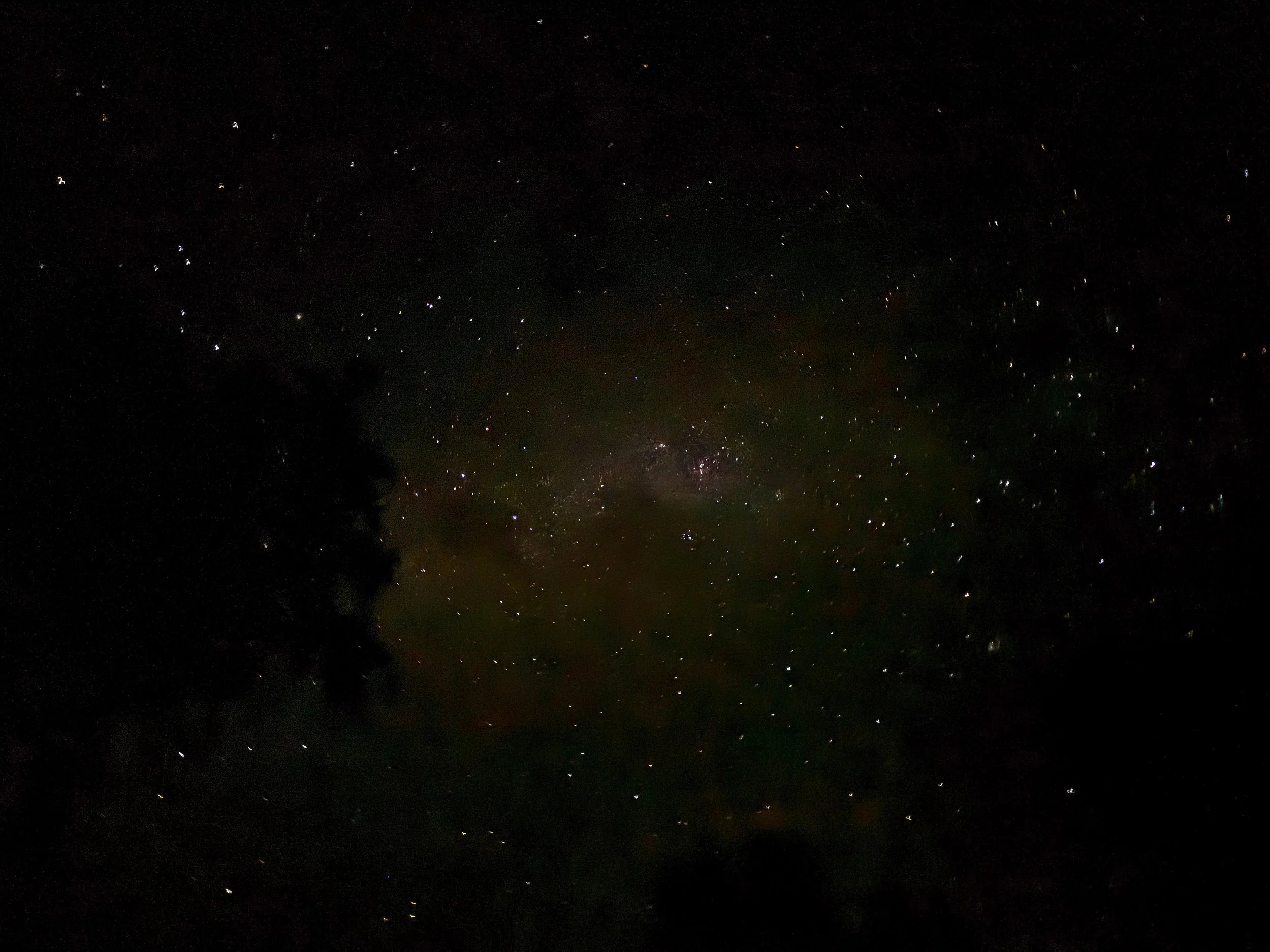Sunset VI - Okavango Delta
We rose this morning to quite possibly the best sunrise Africa could deliver and easily one of the best Fatpap has ever seen or photographed - and he has witnessed quite a few. Perhaps a few hours too late though, the group were advised not to leave shoes or food outside the tent and ensure all zippers are fully closed to minimise nocturnal roaming by inquisitive animals. Really, they tell us that in the morning! Overnight the distinct sound of hippopotami crashing through the shoreline reeds could be heard with one bull in particular punctuating his footsteps with his unique mating call. He was responding to what he thought was a female hippo on heat but as Lyndall will later attest, it was just Fatpap’s infamous snoring which clearly knows no continental bounds.
Someone had already turned on the elephant channel and again during breakfast we watched a herd of over 28 proboscides eat their way through the shallow waters oblivious to their nosey neighbours across the ways.
As yesterday finished so today would start but with the first leg via mokoro. With the vivid colours of sunrise faded what remained was a brilliant blue sky matted by altocumulus cloud formations tinged by a golden brush at their upper reaches. North of camp we poled for only a short while before disembarking to start our foot safari. Westward a bank of heavy clouds defied other sectors of sky fighting with the rising sun to produce the most stunning palate of golden light framed against a grey tempest backdrop.
The walk would prove spectacular covering maybe 6km in total and after leaving the river we followed a veterinary fence designed to control the spread of diseases like foot-and-mouth between wildlife and cattle. While intended to protect livestock and facilitate Botswana's beef export industry, they have been criticised for disrupting wildlife migrations and causing harm to various animal species. We found a suitable gap to cross over and immediately came upon a giraffe skeleton. Death is of course natural in the African wild but there was something forlorn about these oversized bones felled in a manner distinguishing the very animal they belonged to.
Vegetation was primarily a combination of shrubs and grasses but the Okavango Delta is home to a diverse range of tree species including iconic baobabs, figs, and palms which have adapted to the unique wetland environment. These trees play a vital ecological role providing food and shelter for wildlife and hold cultural significance for local communities. Throughout the walk the guides pointed out the unmistakable patterns of animal behaviour, particularly when feeding, together with fresh lion prints they astutely steered us away from. Termite mounds peppered the landscape containing yet another bio-society within the complex African terrain while freshly produced elephant dung brought on any number of childish jokes.
We stopped halfway for a snack by the river bank with most of us swept away by our surrounds. There was less wildlife visible today but as nature often does, it provided in other ways. A mass of elephant bones were also discovered, their owner long left this mortal coil, and as with the giraffe’s they made for a fascinating sight.
We returned to camp mid morning to the welcomed advice that today would be a freebie with no immediate plans and we could do whatever we pleased. Some napped, others watched elephants and a few played cards or caught up on their books. Fatpap cooled himself down by the river and spied our resident elephant, Stampy, starting to make his move. The herd mostly stayed on the far bank of the river with one bull always standing point a little closer regardless of numbers. Omnipresent, we named him Stampy, and today he was on our side of the river just behind the tents. Fatpap followed as he meandered through the camp quickly grabbing his camera - and a guide - for a closer look. For 20 minutes within a distance less than 5 meters, this majestic creature ate his way around Fatpap raising his enormous eyes only on the odd occasion. It truly was a magical moment for the slimmest bloke in the room for once.
After lunch all but a few opted for an Okavango dip and braved the hippos and water temperature for a chance to see Duncan’s Canadian Camouflage in all its glory. The water while coolish was refreshingly clean and after 2 days without showering the ideal remedy for the dust and bugs. Away from the entanglement of reeds found at the banks, the river floor was soft sand and pleasing under foot while a noticeable current drifted beneath that if unanchored could easily sweep one down river. The most iconic part of this experience though was the need to have 2 polers and their mokoros stationed 10 metres up and down stream on hippo watch. Hippo watch! Africa just never stopped amazing.
The day finished the way it started, on a canoe chasing both hippos and the sun over the tranquil surface of the Okavango River. Late afternoon we set sail again in the hope of catching some hippopotami doing some hippopotami things and hit pay dirt almost immediately. Finding several animals in a large pool near the opposite bank, they were frolicking and splashing in the water and playfully interacting with each other. As we were in the last mokoro of the fleet we couldn’t get in close enough to see this first hand, but those that did said it was both amazing and a little frightening. But if frightening was on anyones hippo-bingo card it was Pete & Champay winning the chicken. Poling further down river the canoes began to spread out a little with the lead boat in search of any hippos. From our vantage point all we saw was the poler move a hell of a lot quicker than usual to turn the craft around and get out of the channel. The cries coming from his passengers told us what happened even though we couldn’t see it. Over the coming days that tale grew some gilded legs with Pete constantly closing the distance between man and hippo on each retelling. The beast would become known as Bonecrusher, and Peter, well he became Hippopotamus Pete.
We drifted home in the most breathtaking sunset and after another spectacular dinner gathered around the campfire for a special thanks, and goodbye from our hosts. The Intrepid and Delta Rain leaders joined the local tribe in a series of traditional Botswanan and African songs. Sung a cappella, the harmonies were religious with baritones and tenors forming vocal base lines and the sopranos of the women rounding it off complete with the African “shrill” at the end. Ladysmith Black Mambazo couldn’t have done a better job. There was dancing of course and the exchange of some heartfelt words before everyone joined in learning the rhythm and lyrics very quickly. Under a canopy of stars the campfire flickered erratic light and the dulcet tones of voices not before heard brought with them emotion entirely unexpected. Fatpap hid for a while in the back stalls suppressing his tears but he wasn’t alone. Over another wine everyone spoke of a similar experience but that’s what Africa does. It stabs you in the heart and refuses to heal as your constant reminder to its wonder.
It was the near prefect way to cap off our delta tour which sadly would be ending tomorrow. But as you will learn the delta wasn’t finished with us yet and held one last surprise for us all.
